

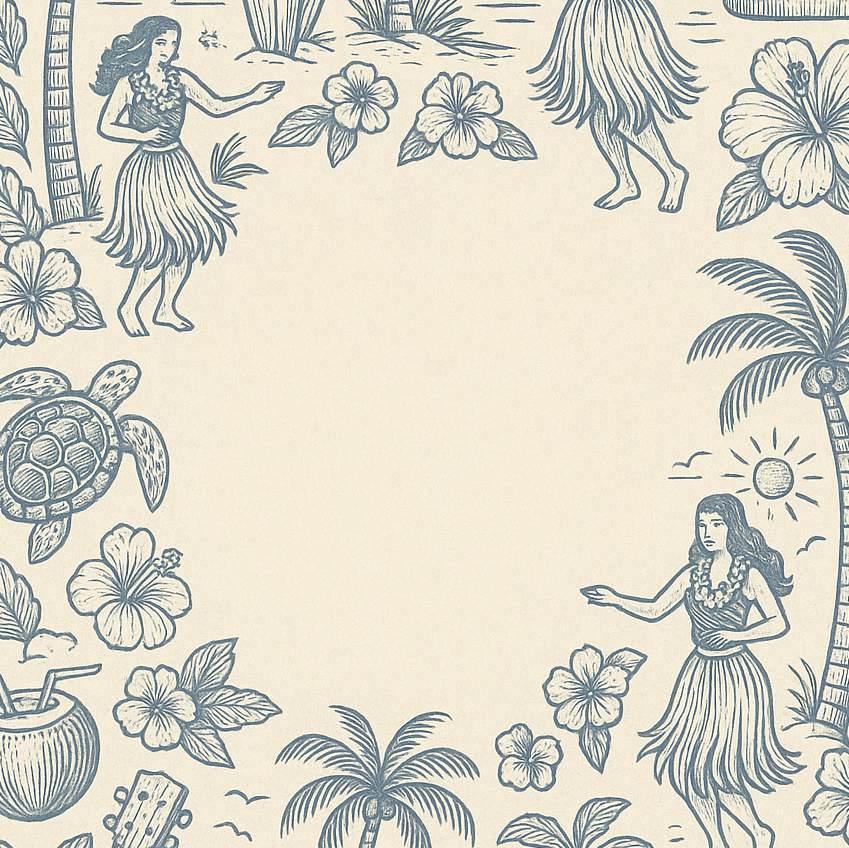

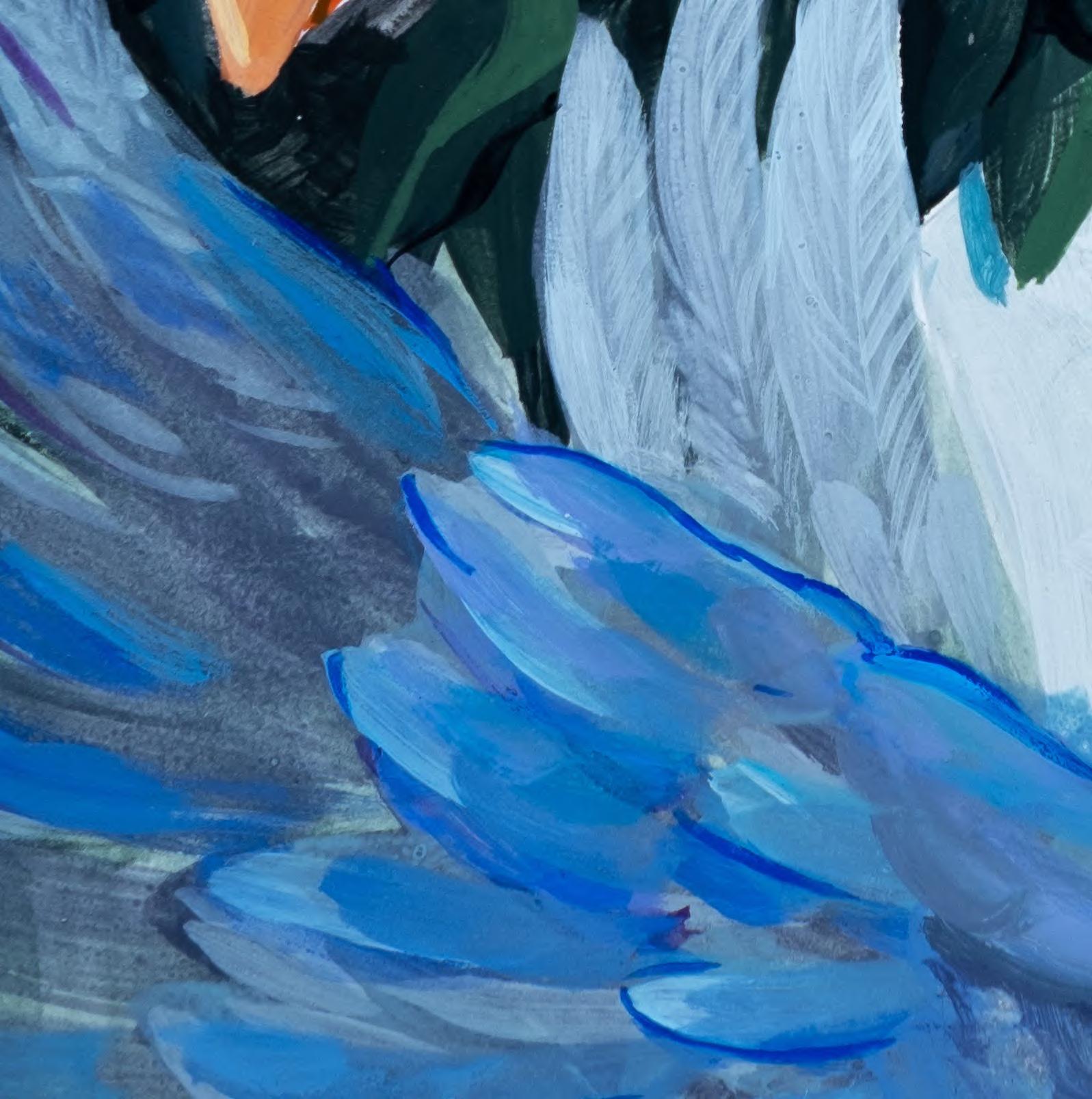
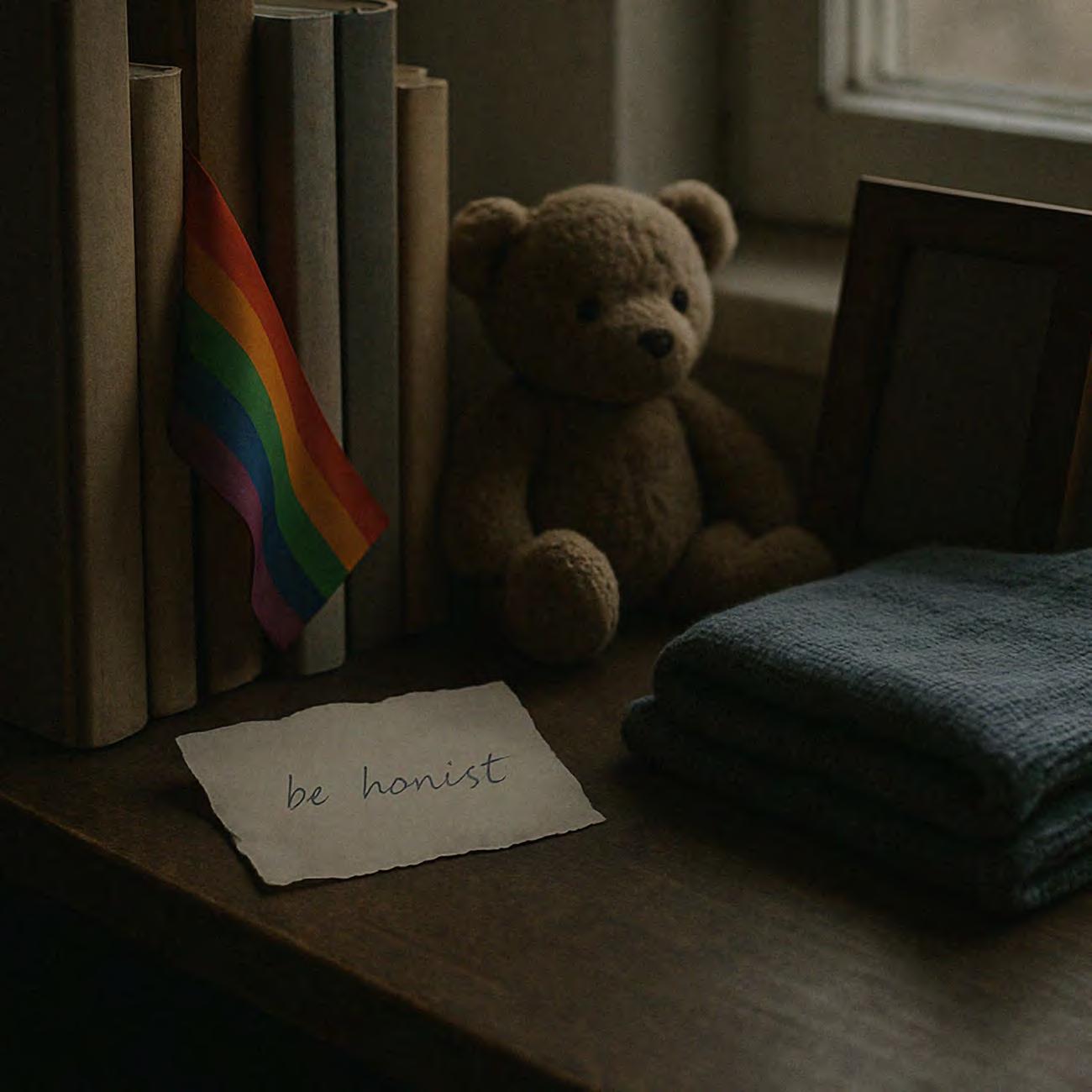

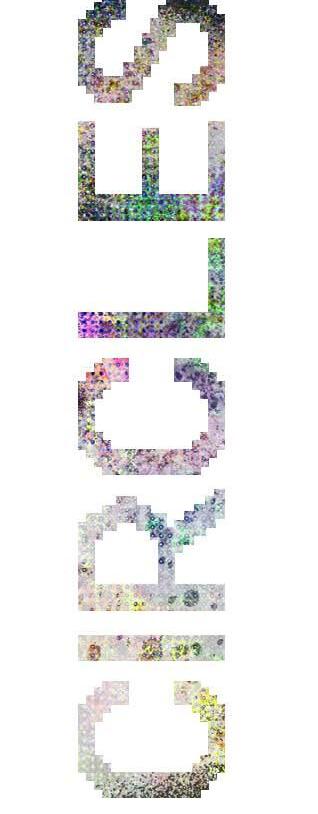

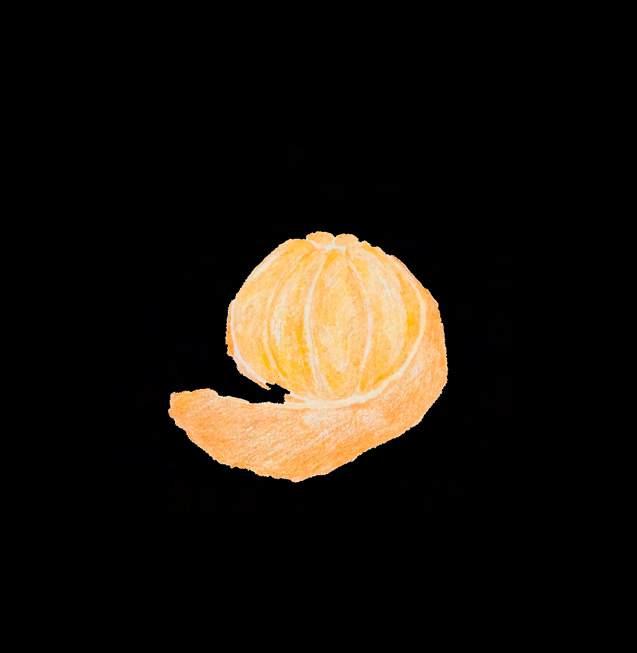











The motif of family is one held universally sacred. It has complex meaning in every culture throughout generations, holds power in ways that are both overt and subversive.
Family is tied to our history, our foundations…a controversial and centralized, much sought after ideology/theory/theology in our current era…and is an ever shifting tide and ongoing legacy of our future.
Family is complicated… sometimes a feared, activating source of pain and trauma… it can be healing, a sanctuary…it is both nuclear and sometimes, more significantly, chosen and covenantal.
Extended and ongoing, exclusive and protected.
A closet of secrets, a mirror maze, a circus.
A well of warmth, honored and treasured, nostalgic, desired, and yearned for. It’s formative in its presence, especially in its absence. It’s a comedy, a mess, a tragedy, a drama, and ultimately, a most beautiful pillar and cornerstone of humanity.
Just in case anyone was wondering…
*motif: Sketchbook strives to be a safe and honest gathering of any/all authentic creative expression — from the seeds of ideas to the fully blossomed. It does not represent the views of Evergreen Baptist Church of LA.
January Lim | Editor | Photographer | Writer | Artist | Video Editor
Mide Kolawole | Co-Editor | Writer
Eric Lui | Project Manager | Writer
Daniel Lee | Project Manager
Arthur Au | Writer
Kennah Brydon | Writer
Randi Brydon | Writer
Lovelyn Chang | Writer
Abby Chen | Guest Artist
Ellory Chien | Writer | Artist
Bruce Chow | Writer | Photographer
Melanie Mar Chow | Writer
Kevin Doi | Featured Writer
Kobi Doi | Zine Artist
Alex Eng | Artist
Wendy Lew Go | Writer | Artist
Julia Hendrickson | Artist
Abby Kim | Writer
Julie Kim | Writer
Brianna Kinsman | Writer
Jang Lee | Artist | Writer
Layout Design by Isabel Bortagaray | isabortagaray
Soo Ho Lee | Writer
Eric Lige | Featured Artist
Lauren Meares | Voice Actor | Music Composer
Jon Moy | Writer
Janette Ok | Featured Writer
Maya Olson | Photo Editor
Julie Ono | Writer
Nicola Patton | Writer
Quincy Sakai | Artist
Alex Shippee | Writer
Marian Sunabe | Writer | Artist
Eric Tai | Artist
The Open Door | Featured Art
Mitch Valine | Writer
Mika Walton | Guest Contributor
Joel Yoshonis | Voice Actor | Audio Engineer
Liz Yoshonis | Voice Actor


| Alex Eng
The Cat | Quincy Sakai
Tangerines | Eric Tai
The Magpie and the Tiger II | Jang Lee
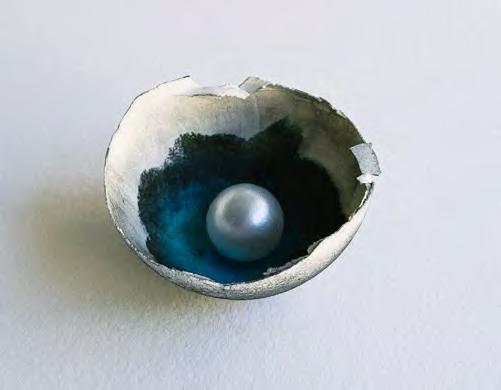
Sowing. Heritage | Brianna Kinsman
Surfaceline | Brianna Kinsman | Artwork by Eric Tai
Circles | Abby Kim | Artwork by Eric Tai
Family | Ellery Chien
Chosen | Wendy Lew Go
Wish Fish Family | Wendy Lew Go
Eaton Tabiji Eggshells | Released Me | Wendy Lew Go My Grandpa isn't Dead | Jang Lee
Gillian & Bernard Garcia | Written by Eric Lui & January Lim
A Conversation with Eric Lige | An Interview with January Lim
Telling Time | Julie Kim
Filling in the Blanks | Julie Kim
Regrets| Soo Ho Lee | Artwork by Abby Chen
Peace Runs Deep | Art by January Lim
Snapshots of My Life | Kennah Brydon
Dear Grandma | Randi Brydon
Chosen Family | Arthur Au
Journal Entries | Mide Kolawole
Of Sons and Farmers | Alex Shippee
Coming Home Again | Marian Sunabe | Artwork by Kenji Ono
The Convenantal Family| Nicola Patton | Artwork by Jang Lee

An Asian American Interpretation of Luke 14:25-33 | Janette H. Ok
Redeeming out cloud of Witnesses | Kevin Doi
| Artwork by Marian Sunabe

Altadena Strong| January Lim
Poppies & Peas: Milka's Orchard | Mika Walton
Photos by January Lim
Kings and Chronicles| Jon Moy
Conversations with a Child | Lovelyn Chang
Artwork by Quincy Sakai
“Ohana means family, nobody gets left behind or forgotten.”
Melanie Mar Chow | Artwork by January Lim
Siblings | Julie Ono
Ebí | Mide Kolawole
We'll Talk Soon | Kobi Doi
Saying Goodbye to Dad | Bruce Chow
Wild Geese | Mitch Valine | Artwork by Quincy Sakai


By Abby Chen
This piece was inspired by an Instagram reel I saw a while back—I tried finding it again but couldn’t. It made me think about how most Chinese parents show love in indirect ways, and how that shaped how I express love too. Recently I’ve been struggling with mental health in college, and my parents flew from LA to the East Coast multiple times just to check on me. Only now do I really see how much they care. This work is about that realization—about their quiet love and the time I didn’t fully appreciate until it was all I needed.

I wanted to visually represent how family should look like. I had a couple ideas, but I settled on representing how a parent would protect their child. When I was little, any time I felt scared I'd usually just go to my mom or dad. I felt safe around them because it felt like there was a sort of assurance that they'd be able to protect me. In this piece, the dove is protecting her children from some sort of evil, represented by the black bird in the back.
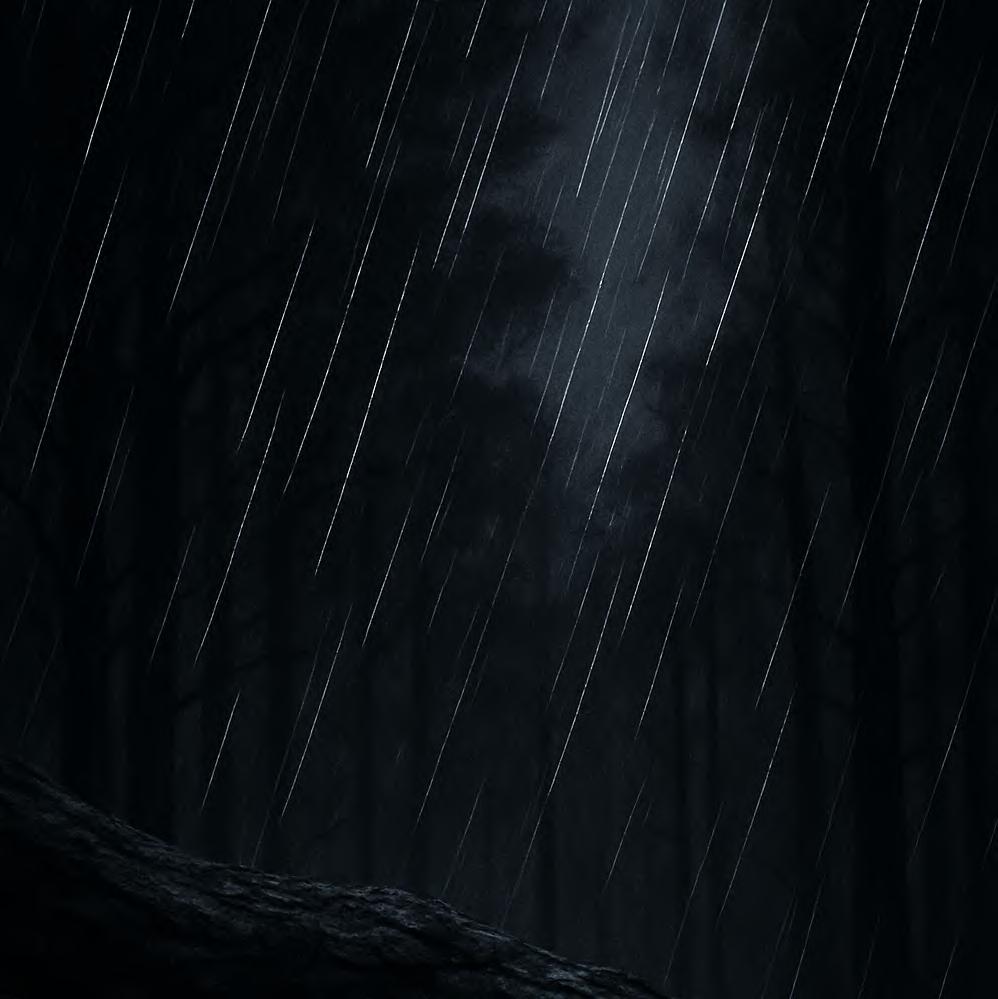
By Alex Eng


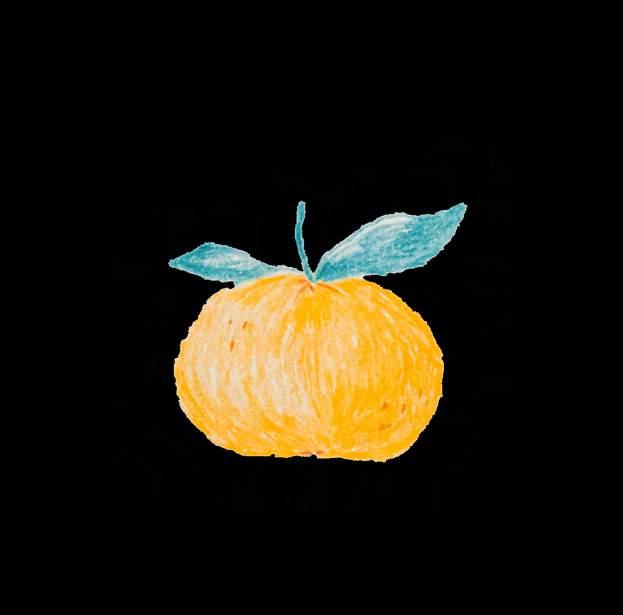
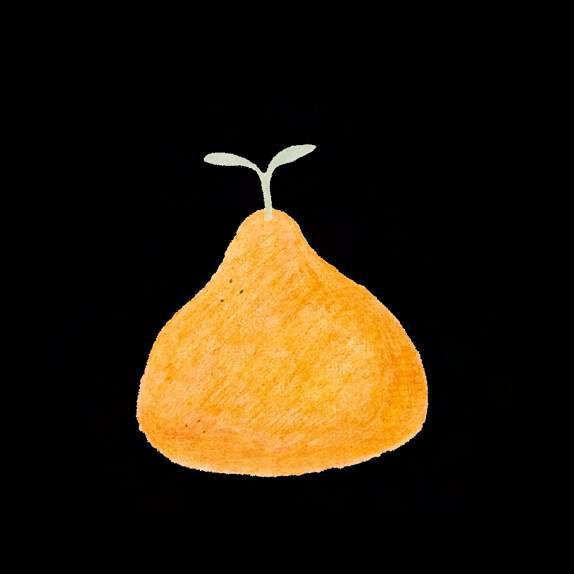
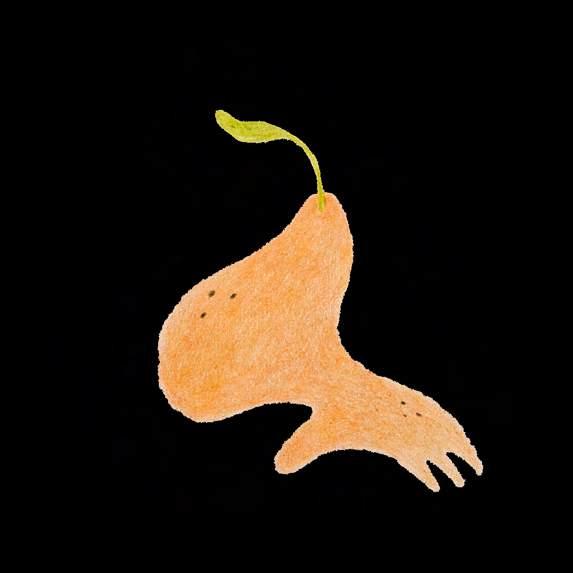

By Eric Tai

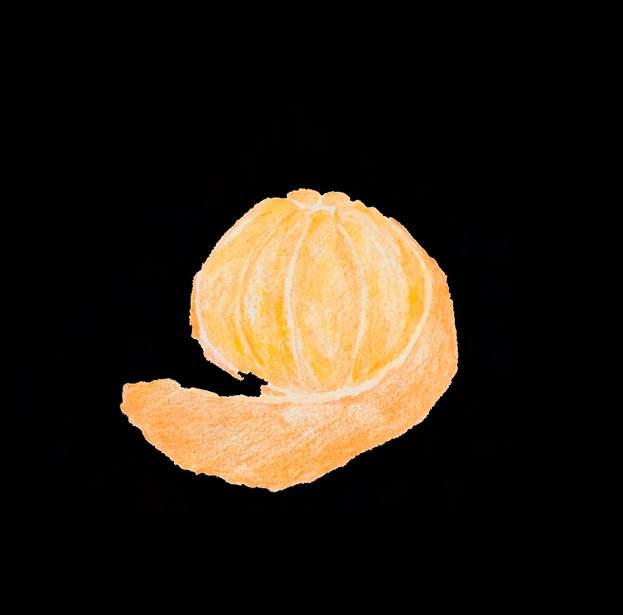
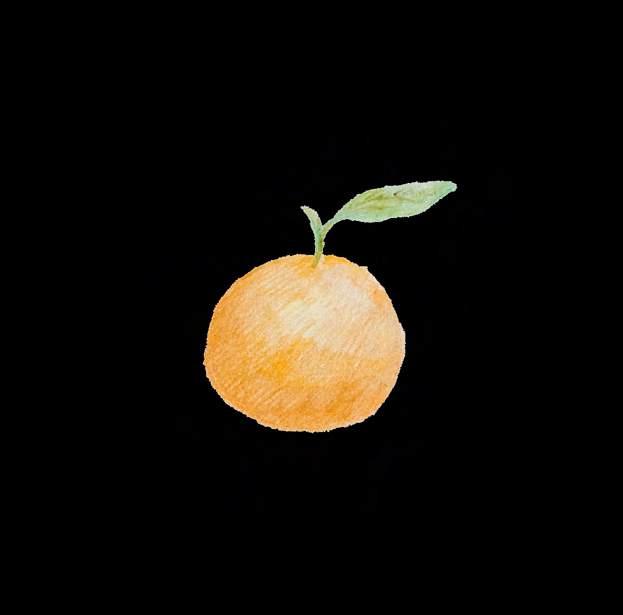



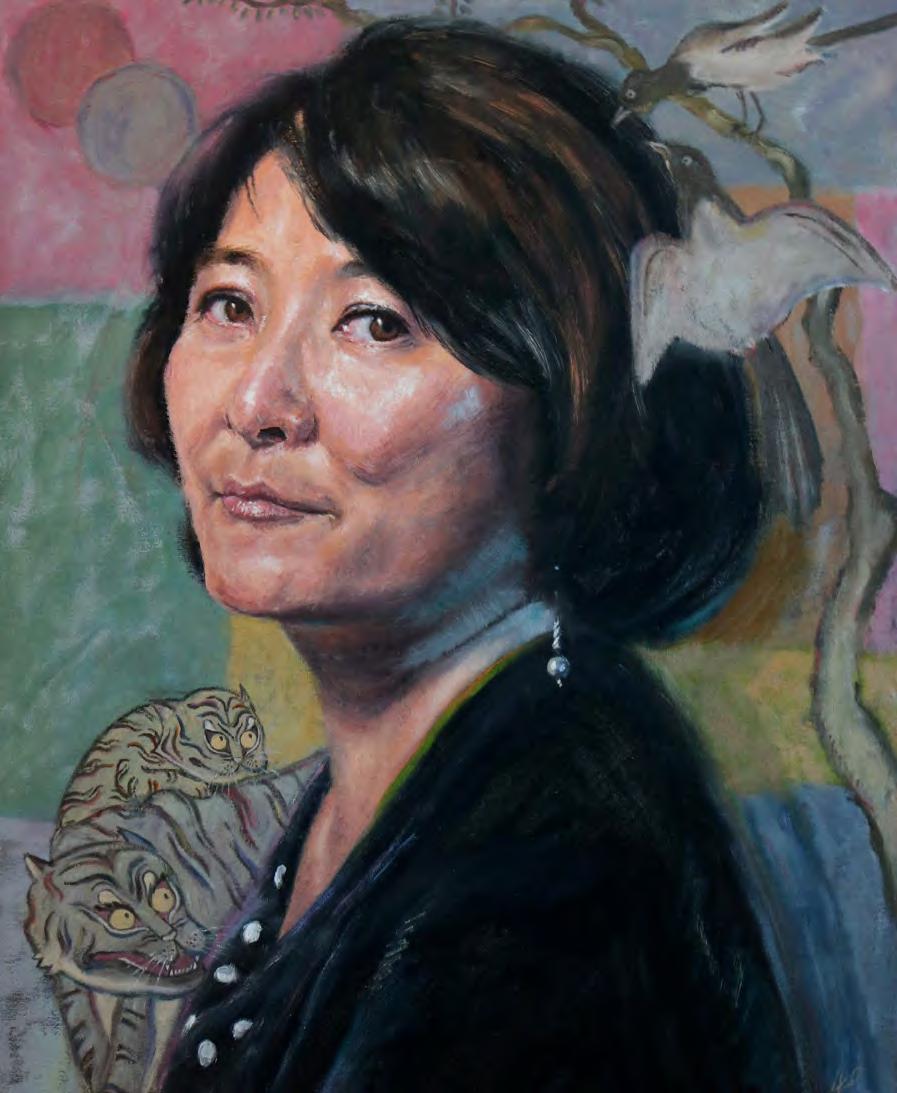

By Jang Lee

The Magpie and the Tiger II is part of a series which draws inspiration from Hojak-do a traditional genre of Korean painting which features a magpie and tiger. In Korean folk tale, the magpie outwits the stronger tiger, contrasting the outward appearance of power with underlying cunningness.
Inspired by the "doubleness" of the magpie, each element in this piece implicitly challenges and compliments the other—a testament to the dichotomies and contradictions that shape my own histories.

By Brianna Kinsman

In some future history, I am the woman with hair the color of the moon spilling over the rim of her shoulders.
the woman barefoot in the carrot patch who is most at home digging her toes into humus carpets, as if she too were made of root and earth.
the woman teaching children the uses of mushrooms and nettle, letting them to teach her how to grow wildly again, as we all start out, like the coiling watermelon vines that love to climb anything they can reach.
but today, I am the granddaughter with hair the color of soil tied above her shoulders, learning from moon-haired women when to harvest mushrooms, and how nettle leaf can heal, and where to plot the carrot patch, and curling my fingers around things just out of reach.
I am — the daughter, and granddaughter, and great-grandaughter of folks who know the touch of the earth — inheritor of growing things.
By Brianna Kinsman Artwork by Eric Tai

the thin line of your half-smile reaches across the table challenging me to cross it
but I’m not the one being tested turn over your paper begin the exam: count our conversations — the ones we never had
add up the things that no one said and the silences that said everything
the past we cannot speak of multiplies into the present
what happened in those first days? do you remember the maple roots that were footpaths? the quiet October rain? the Sundays drunk with cartons of chocolate milk?
you killed a snake once finding it tangled and tired in the garden netting I imagined you felt regret
you dug the hole where we buried Blaze you stayed beside me let me be sad and silent in the woods behind the house
you cried for the first time in my memory when you dropped me off at college you talk more now and so do I
recover your courage as you draw the rising waterline over your head as you sink into the new equation
then find me in the depths— fearfully move your fingers over my face trace my outline on purpose
balance the proof but erase some things too
I’ll let us forget so we can resurrect who we want to be



By Abby Kim Artwork by Eric Tai
Connected and continuous
Protected, bound by space and time
A pattern, a rhythm
That holds us together in sacred breath of life
Sometimes harmonious and whole
Sometimes bent and stretched
A circulation of codependence
A revolution of history
A cycle of trauma
A series of stories formed into legacies.
Sometimes our circles may be broken
Bruised and battered, hostile and hurt
Shunned and shattered
Unable to mend themselves into a whole again
But broken circles can be reformed,
Redeemed and reshaped into something new, alive
A shape of connection
Strong enough to stand against the test of time.
One circle may grow, while another shrinks
Our circles may overlap, finding links
Between our boundaries
Between our differences and commonalities
Between the vulnerabilities of our fragile humanity.
Our circles of connection
Show who we are
Whether they are given, found, treasured, pursued
Or rejected, lost, buried, disowned
Our circles of family bind us to our identity
Our circles tell our individual and collective story.
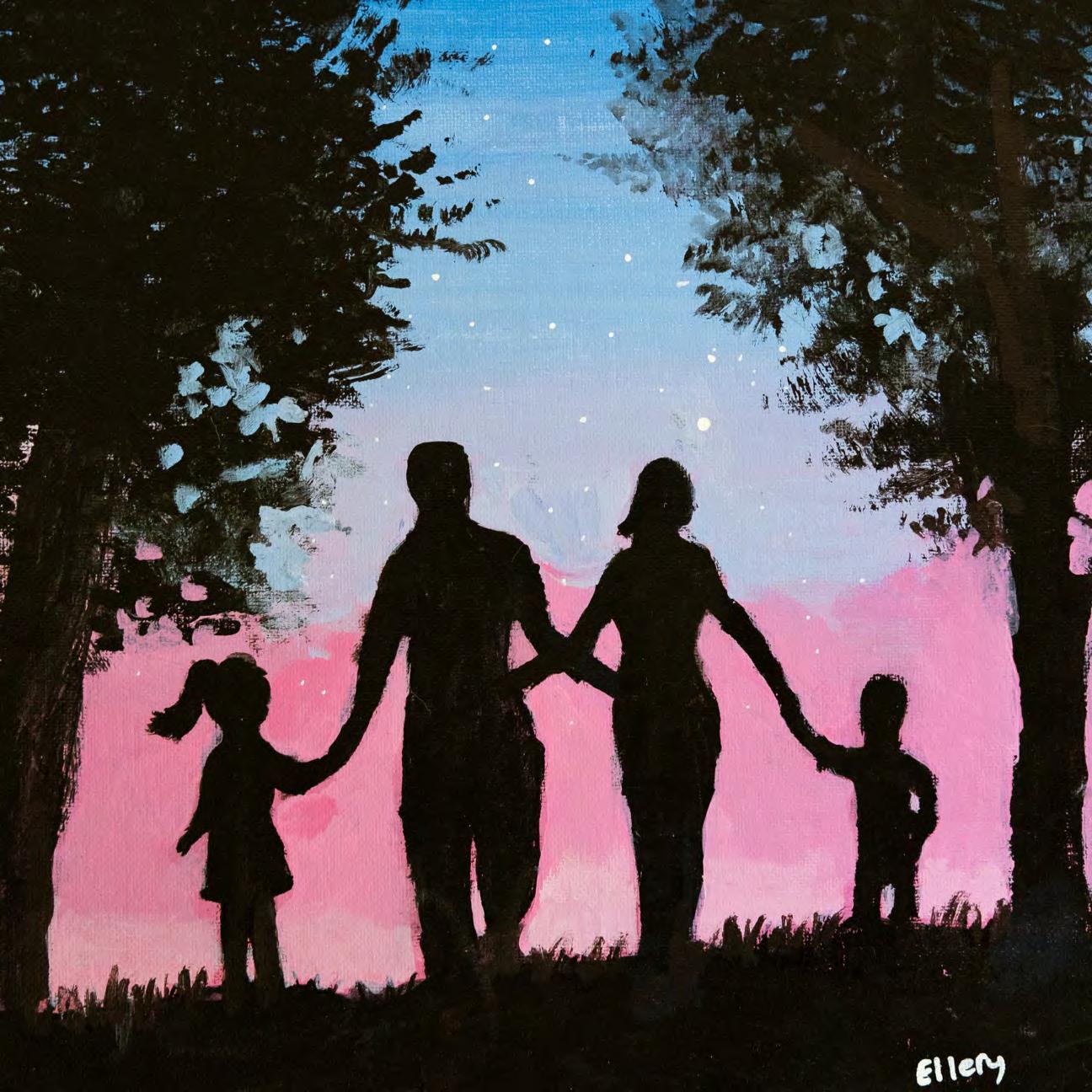
By Ellery Chien

Family is your roots the ones to give your name,life without them would never be the same. Family is a hug a hug that never fades Family is your treasure Care for them like jades when you need help or don't know what to do Family will help and stick with you like glue. Stories are shared connections are made love and laughter will never ever fade. family is the place where your story starts family is always close heart to heart Family grows and it shows from the love the care and the kindness that is family.

By Wendy Lew Go

beyond the blood box that did what it knew so caged by its own baggage trajectory doomed to seed damage throughout generations
absent all we longed for our lingering lament wanders smoldering lands of heartache memories sharp and cutting stitched into our being without consent we cannot tear them out
where do we belong?
surely there are someones gathering somewhere bearing bright threads of connection creating a warmth of family beautifully sewn with ripped and raw edges
honest stories speak unafraid mending together celebrating together woven by the One who chose us long before we chose each other we are family beyond the blood box we belong
beloved by One whose door opens wide to a house of welcome home for all.


This school of Wish Fish are reimagined from my many old paintings. What we may think is the end (a finished painting) is not necessarily so! It's simply raw material for what will be next. By releasing what no longer serves, and keeping what wants to be brought forward, we can reimagine, partnering with God in making all things new. This newness includes our families, whether by birth or by choice, differences and all. Wishing you the love and belonging found in the very best reimagining of family.
Media: Old art, scanned and digitally collaged.
©2025 Wendy Lew Toda W i S h F I s H F a m I l y
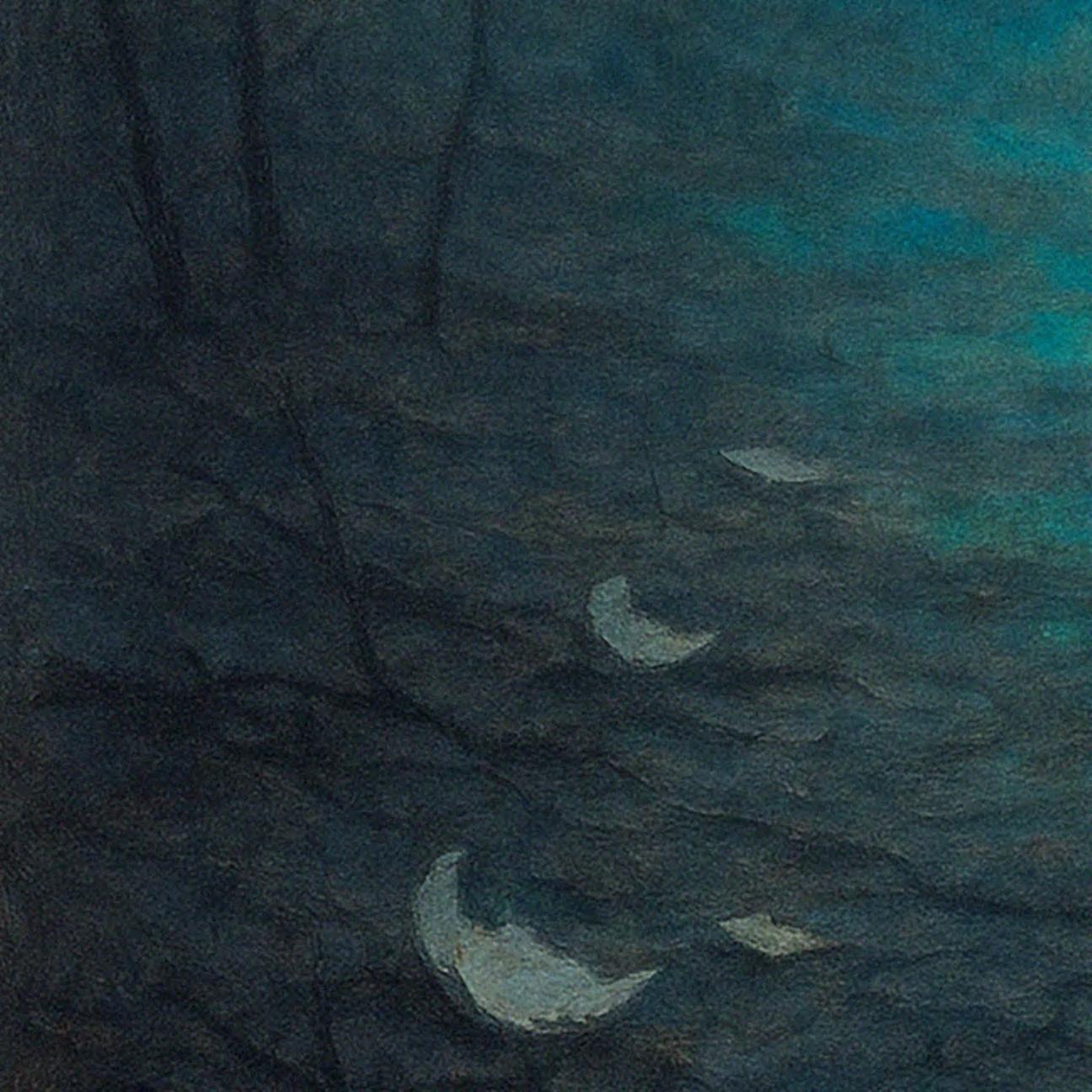

The Eaton Tabiji Eggshells were created in the aftermath of the Los Angeles fires, to express the devastation that seemed to be everywhere, much of which still remains. They are a prayer of stubborn hope, the blues and greens speaking of new life emerging right in the middle of all that has been reduced to ashes. When family relationships break and burn, we find ourselves in a similar devastation. Forgiveness can feel impossible, yet if we lean into that gift, layer by slow layer, over time something beautiful can grow, in the same way a pearl forms around a hurtful grain of sand.
Media: Eggshells, charcoal powder, acrylics, pearl, tears ©2025 Wendy Lew Toda
By Wendy Lew Go


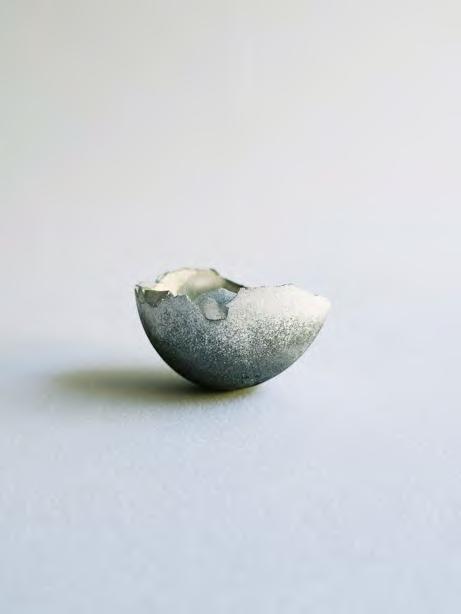
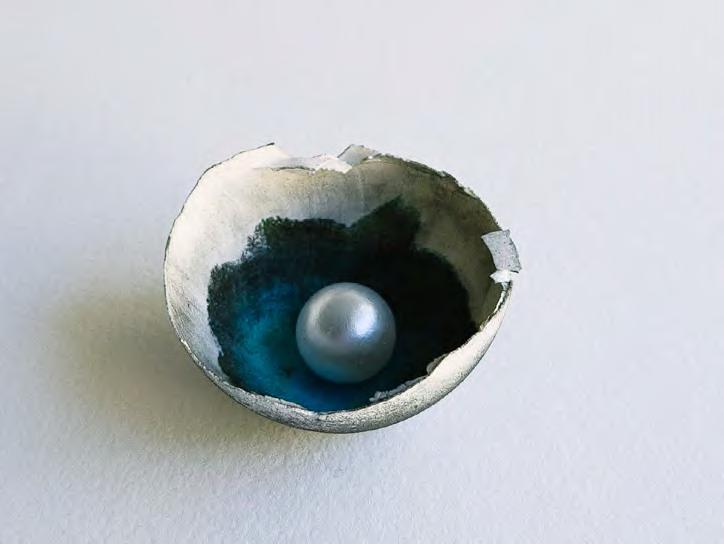

Frosty daughter was I till the challenge to forgive pinned me with unblinking kindness hot war in my head commenced the clock held its breath turning ever deeper shades of blue awaiting the outcome I surrendered
Forgiveness won opening decades of a slow turning softening into unfamiliar freedom to love you I would forgive you all over again sometimes I still do, like yesterday when you kept grabbing the wheel of my life you haven't changed but I have happy in my own lane free to release you to be you instead of the Dad I thought you should be no more wanting what cannot be given it was never given to you, so how could you know?
By Jang Lee

aching hips, stuttering hips
histories peering under damp shingles, moss: slick, glistening. It was always there.
Yesterday, I found last week's histories: in a cage, screaming. with aching hips, stuttering hips.
histories peeled off my body like tangerine skin (slick, glistening), & piled between liminal steps outside my home
By Jang Lee

when mother gave birth to i’m twelve again & this me she forgot to give birth time my screams to my mouth & it burrowed kill my screams drip like into the walls of her soft vermillion tipped fingers laced butter stomach (lightly salted, around vocal chords & organic, pasture-fed). it squeeze! this time my screamed greyscale screams mother gave birth to my & gastric acid screams but mouth exploded in ears she why didn’t you hear me? shrills wished had not been born. plow into her ears, voice tears open until cherries decrescendo until hungry wished they could be crimson no more but what’s beneath like me & inside is pretty the plastic of an antiseptic possibility, a carcass. voice?

Written by Eric Lui & January Lim
The partnership of Gillian and Bernard Garcia—from their first meeting in the Philippines, to their lives as married seminarian students in Pasadena, California—has been nothing short of an amazing collaboration. Together, the Garcias have sought to host others through empathy, gather the collective needs of their community, and minister to any and all who feel lost and alone.
Gillian Eliza Colcol-Garcia was born and raised in the Philippines where she spent her childhood in the capital of Manila. She fondly describes the Philippines as a “gateway to Asia. It’s a melting pot of cultures! Honestly, the capital is kinda like LA;
whatever you have here, they have it there, thanks to American media and neocolonialism. [Except] the traffic is ten times worse haha! One thing I loved about growing up in the Philippines was the sense of community. We’re all a [part of a] collective in the motherland, and you are taught about the value of hospitality and mutuality [from] a young age.”
“OnethingIlovedaboutgrowing upinthePhilippineswasthe senseofcommunity.”
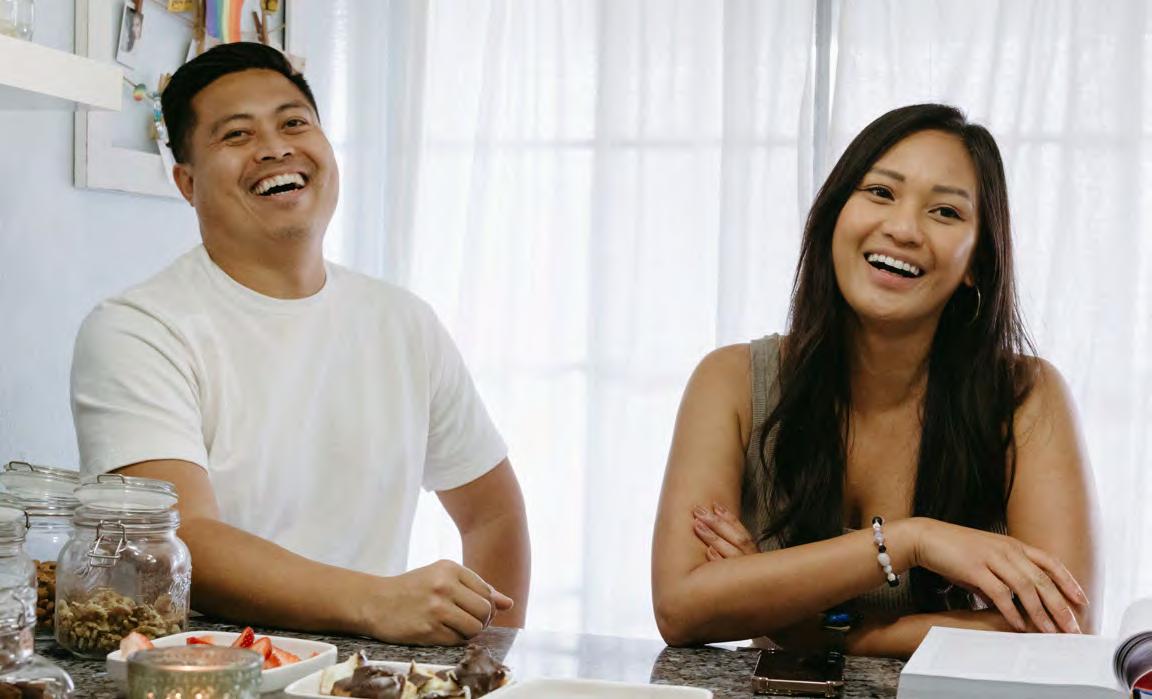
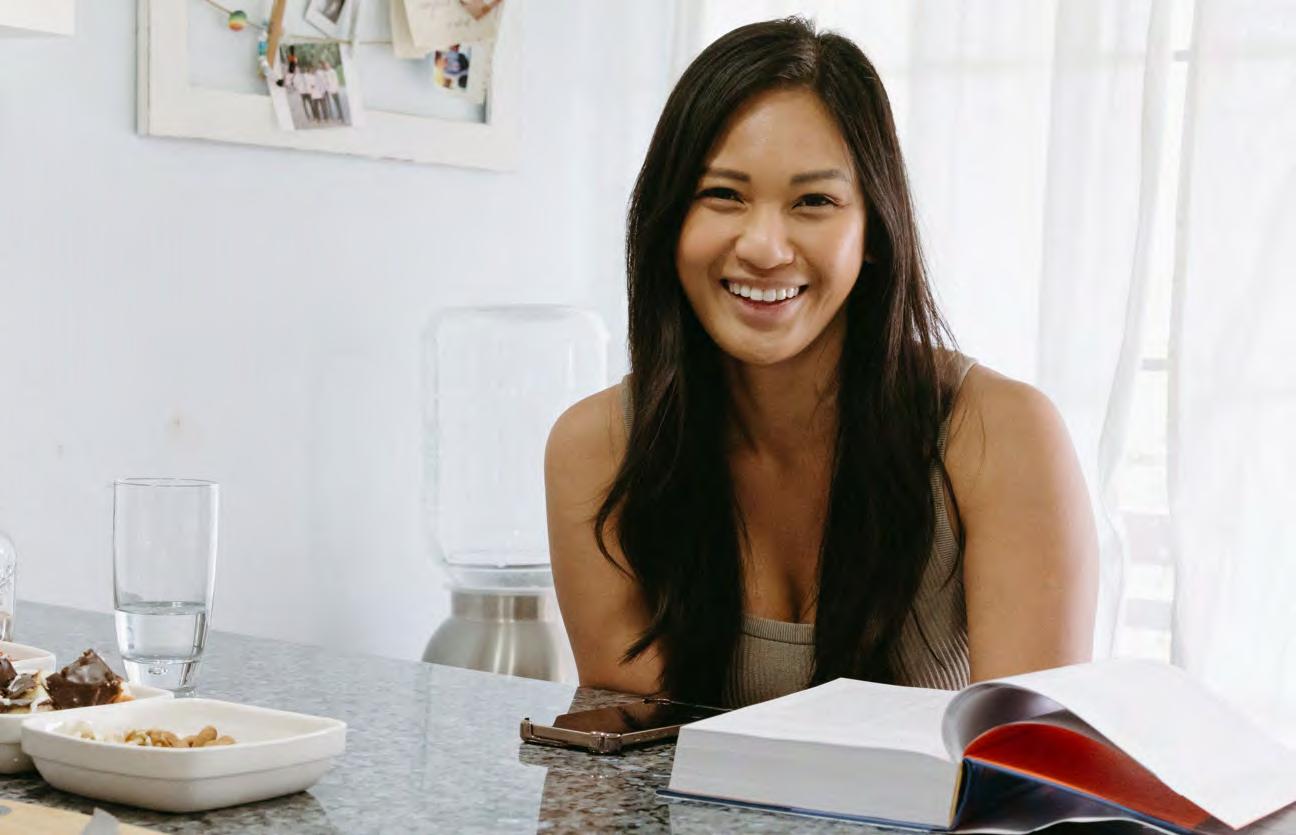
Gillian’s nuclear family is composed of her parents, older brother of ten years, and her younger sister. Her father has worked as a professor and dean at a university in the Philippines and her mother has extensive work experience in community development. Gillian remembers her parents as always supportive of her and her siblings. When asked about a family member who has majorly influenced her life, Gillian mentions her grandfather, Daniel Colcol, who was one of the 250,000 Filipino men recruited by the USA to join its army during WWII with a promise of US citizenship. He later spent decades fighting to claim the benefits that the US government had promised him and his fellow Filipino soldiers.
“My lolo thought that he was some sort of a shaman…when I was born, he did this little ritual and prophesied over me.” Her parents do not remember exactly what he said but they did mention that he saw “stars on [her] head.” Her grandfather’s vision has always provided Gillian with comfort and confidence. “My lolo inspires me to be resilient; I hope I am making him proud [through] my endeavors.”
Gillian is a graduating Masters of Divinity student at Fuller Theological Seminary where she also works as the Program Coordinator of Fuller’s Asian American Center. Since 2024, Gillian has also been serving as a pastoral intern at Evergreen
“Myloloinspiresmetobe resilient;IhopeIammaking himproud[through]my endeavors.”
Baptist Church of Los Angeles—the church’s first intern since before the COVID pandemic. Working with the Youth and Children’s Ministry, Gillian can be seen hanging out with teens or running around with (sometimes chasing after) the toddlers Sunday mornings.
Gillian’s husband, Raoul Bernard Garcia is a 1.5-generation Filipino American. Bernard was born in the Philippines but migrated to the US in 1991 where he was raised in the San Gabriel Valley, namely Azusa and Glendora.
Growing up as a Filipino American was not necessarily always pleasant.
“As part of a working-class immigrant family,” Bernard remembers, “I felt ‘other’-ized in both areas [of my ethnicity]. At the time, Azusa was under-resourced and over-policed, which contributed to the racial tension prevalent in the city. One incident I experienced involved being physically attacked by a local gang while I was playing basketball with friends. Being one of the few minoritized students at Glendora High— which included being called racial slurs on my first day at the school—my experiences further reinforced this sense of otherness.”
As Bernard and his three siblings were raised by his mother, Bernadette, he looks to her as a profoundly influential figure in his life. She migrated to the US from the Philippines, seeking a better life her four children. Bernard recalls that “prior to remarrying, she was a single mother who took on three jobs simply to survive and make ends meet. My mom worked simultaneously as a sales associate for a 99-cent store, a care-
taker for the elderly, and a receptionist at a garments firm. Her sacrifice and dedication have made a lasting impact on me.” Like Gillian, Bernard is also a student at Fuller Seminary, pursuing his MDiv degree. In addition to his academic pursuits, Bernard works as a data analyst for the International Justice Mission.
The Garcias have been happily married for 6 years and currently reside in Azusa. They first met in Manila when Bernard moved there to pursue an internship with an NGO. After over a year of living in Manila, a mutual friend introduced Bernard to Gillian.
“Upon our initial introduction,” Bernard explains, “the mutual friend said, ‘I’ve been wanting to introduce you two because I thought you would be so perfect for each other.’ Feeling embarrassed, I apologized to Gillian, expressing how awkward this was. Our friend tried to salvage the conversation by pivoting from a potential romantic interest to setting up a meeting for a possible organizational partnership.” Putting awkwardness aside, Gillian and Bernard grabbed coffee the following week during which he gave her a presentation of his work—and the rest is history. That must have been one hell of a presentation!
When asked about her side of the story, Gillian keeps it simple and sweet. “Bernard and I were set up by a mutual friend just a month before he was set to go back to LA. I guess I was such a gem that he decided to stay so he could date me.” She claims she is kidding, but we suspect this is closer to the truth than not.

“Wevaluemutualityin our marriage, we care about the same issues, and we consider our partnershipasministry.”
As a couple, Gillian and Bernard are passionate about getting involved in grassroots Filipino American community organizing groups. Their pursuits have included meeting with Rep. Judy Chu, lobbying to gain her support for the Philippine Human Rights Act volunteering in the recovery efforts for the California wildfires, and informing Filipino migrant communities of their rights as workers to avoid exploitation by their employers.
The couple’s love for the wellness of the collective is also a major driving force in their relationship to the Church. Church ministry has always been a focal point for the Garcias’ partnership. Gillian explains that “it was at my childhood church
[that] we were introduced to each other, and as newlyweds, we served as co-pastors at another church community. One of the things that I love about Bernard is that he is very supportive of me. He pushes me to be the best version of myself and comforts me when I’m down. And I do the same for him. We value mutuality in our marriage, we care about the same issues, and we consider our partnership as ministry.”
This collaborative dynamic of mutuality seems to infuse both Gillian and Bernard’s definition of family and church. “I would define family as not only the people we are related to by blood but also the people we have committed to do life with,” Bernard says as Gillians wholeheartedly agrees. “Sometimes, our egos get the best of us, and we hurt each other,” Gillian candidly shares. “But being part of a church community allows us to experience what it means to belong to Christ—to practice grace, kindness, and self-sacrifice. I am grateful for every church community I have been a part of, even if I have experienced hurt…like the Southern Baptist church that raised me [during] my Sunday school days to my most recent church before coming to Evergreen LA that provided me with community when I had just moved to LA.”
And what about her current church space? When reflecting on her relatively short time being a part of Evergreen LA, Gillian notes that the church has been healing for her both as a worshipper and as well as a pastoral intern. “Working with children and youth allows me to see how our kids are doing these days, and it’s such a privilege for me to show up as their big sis (or their auntie!). I also enjoy getting to know our Primetimers and hearing their stories of wisdom. This community is such a unique space; it gives me hope about the future of the intergenerational church.”
Bernard shares honestly about dealing with the challenges of the church as a place of inclusion.“In my former congregational context, class and race dynamics posed significant challenges to experiencing full inclusion into the church family. While some leaders were intentional in fostering a truly inclusive community, many members of the dominant culture were resistant to change and to embracing new younger and ethnically diverse attendees in the fullness of our identities.”
As real and widespread as this sort of face value inclusivity is, Bernard also reiterates that not all churches are like this. He adds that “Evergreen LA has provided a hospitable and inclusive environment where the intentionality of community building and embracing people in the fullness of their identity—especially in their Asian Americanness—has helped in fostering a sense of belonging to the church family.” He adds that part of the hospitality he feels from Evergreen has been how the church staff and family have welcomed him and Gillian. “The intentional efforts of our pastors have played a significant role in creating this atmosphere. For instance, Pastor January expressed an intention to incorporate celebrating Filipino culture into our services, especially during Filipino American History Month; Pastor Jason took Gillian and me out for dinner at a local Filipino restaurant; and Pastor Jonathan treated us to breakfast at a restaurant closer to our place of residence in Azusa.”
The current social climate has definitely been a challenging time when it comes to community building and learning to live as an inclusive family. When asked what he thinks is a main challenge for him, Bernard mentions the difficulty of living through and managing layers of difference. “Although in community, differences will always arise and resolutions may never be achieved, differences can be managed in a way that preserves relationships. To combat this challenge, I intend to practice more compassionate listening—to learn the stories and pains that have shaped a person. I hold onto the words of James Baldwin as a principle: ‘We can disagree and still love each other, unless your disagreement is rooted in my oppression and denial of my humanity and right to exist.’”
“Differences can be managedinawaythat preservesrelationships.”
Gillian adds a different perspective on the difficulty of living as family. “I find it challenging to find the balance of taking care of myself while also looking out for my community. Bernard and I are both involved in the Filipino American community organizing space, and when we show up to an activity or protest, we also show up as representatives of the church. What I am learning lately is that I cannot give what I don’t have; sometimes I tell myself it’s okay to put myself first—to breathe, observe Sabbath, process my grief, and recuperate so I can show up and serve my community well. I think anything that allows us to be human is a good spiritual practice to build resiliency; for me, that’s getting enough sleep, regular exercise, and spending time with loved ones.”
Looking toward the future, Gillian hopes to continue pursuing her pastoral calling. “I hope to get ordained, serve my community as a pastor and advocate, and co-struggle with activists, migrants, and laborers here in LA.” While aligned with his partner on pursuing further ministry, Bernard adds, “I’ve also been considering pursuing a Ph.D. in theology with an emphasis in ethics, but this is likely further down the line.”
As a final word of blessing, Gillian encourages us, “For those who feel like they don’t fit the mold or are still searching for home, [allow me to] borrow the words of Father Richard Rohr, ‘You already belong!’”
We are looking forward to Gillian and Bernard’s next steps in life as they continue to build a world of familial belonging for all those in need.

“IcannotgivewhatIdon’t have...anythingthatallowsus tobehumanisagoodspiritual practicetobuildresiliency.”
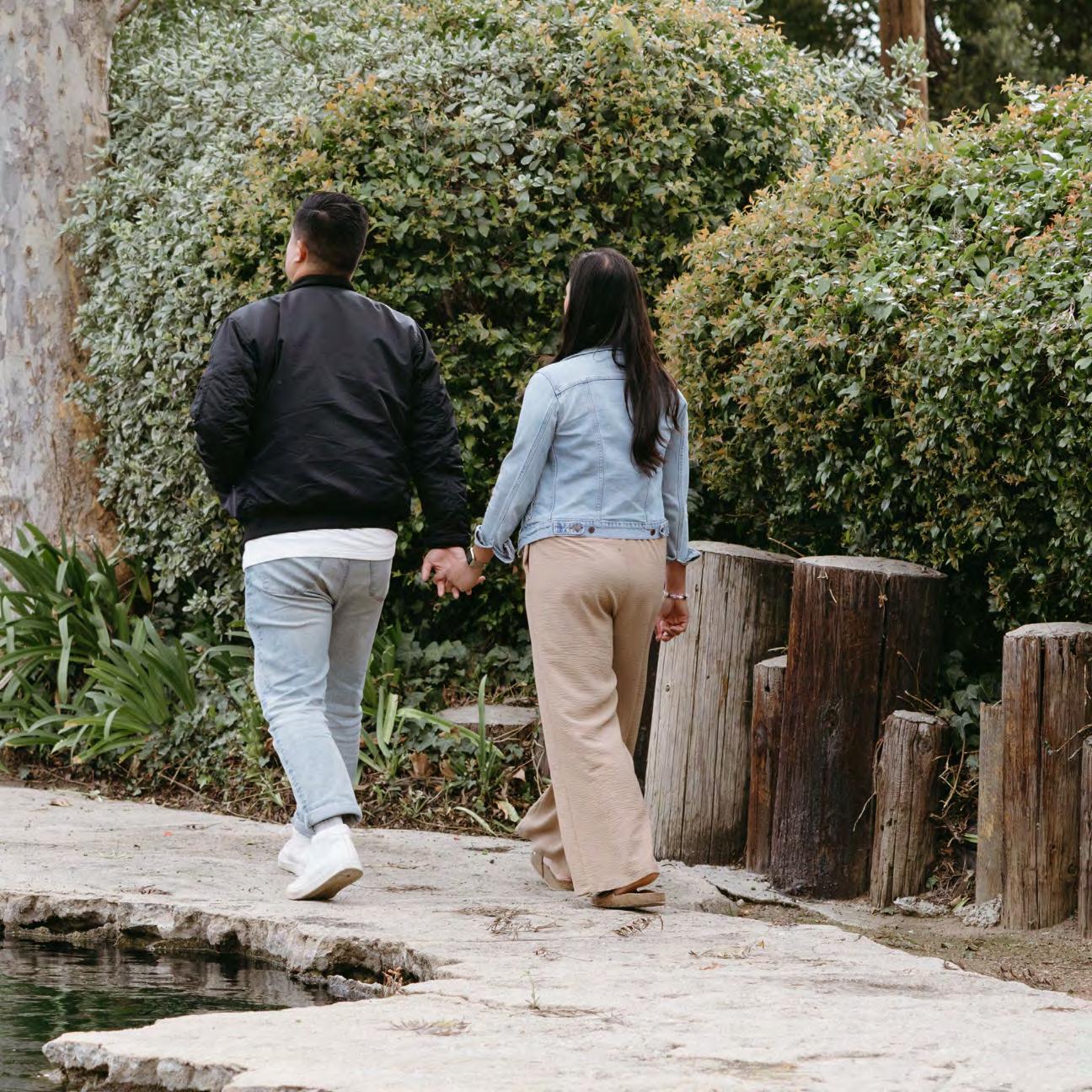
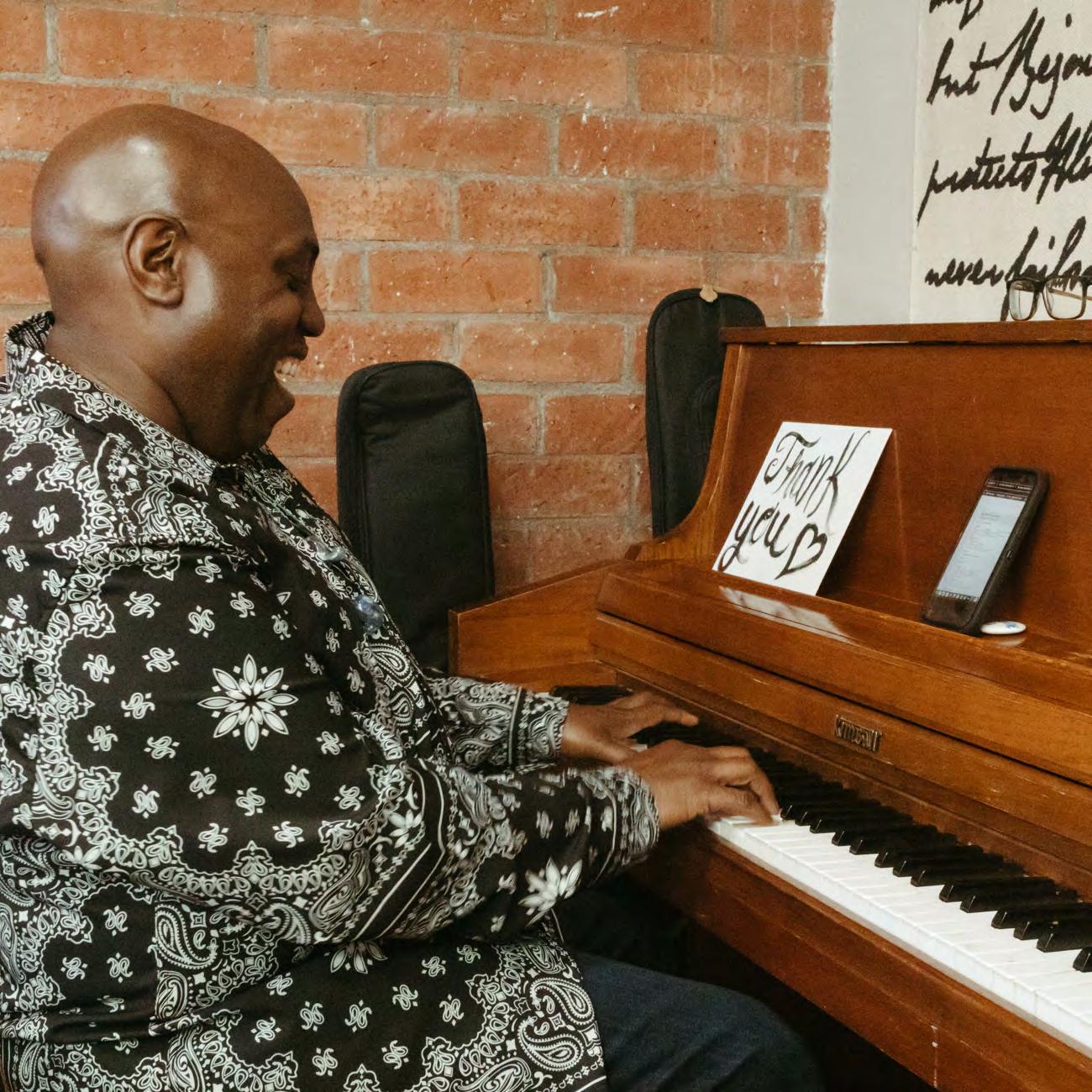

January Lim
January: Hey Eric, thanks so much for agreeing to share your story with Motif! Could you introduce yourself to our readers?
Eric: Hello, I’m eric jamal lige (lowercase usage is intentional as inspired by bell hooks). I’m a gay Black man and identify as cisgender. My identity’s been both a journey and a gift, and it continues to shape how I move through the world.
I am an African American recording artist, songwriter and faith leader who lives at the intersection of Black joy, queer liberation, and sacred truth-telling. I use music, story, and
faith as vehicles to drive people toward hope, healing, and belonging. I currently serve as the Creative Experience Director at Newsong Church in Santa Ana, California. I’ve lived in San Diego for 25 years, but as one of my friends likes to joke, I move around Southern California like it’s my neighborhood.
January: Haha! I love that. And currently, how do you define your vocation and/or career?
Eric: I’m called to help people fully embrace who they are and find a sense of home and belonging. Through music, story,
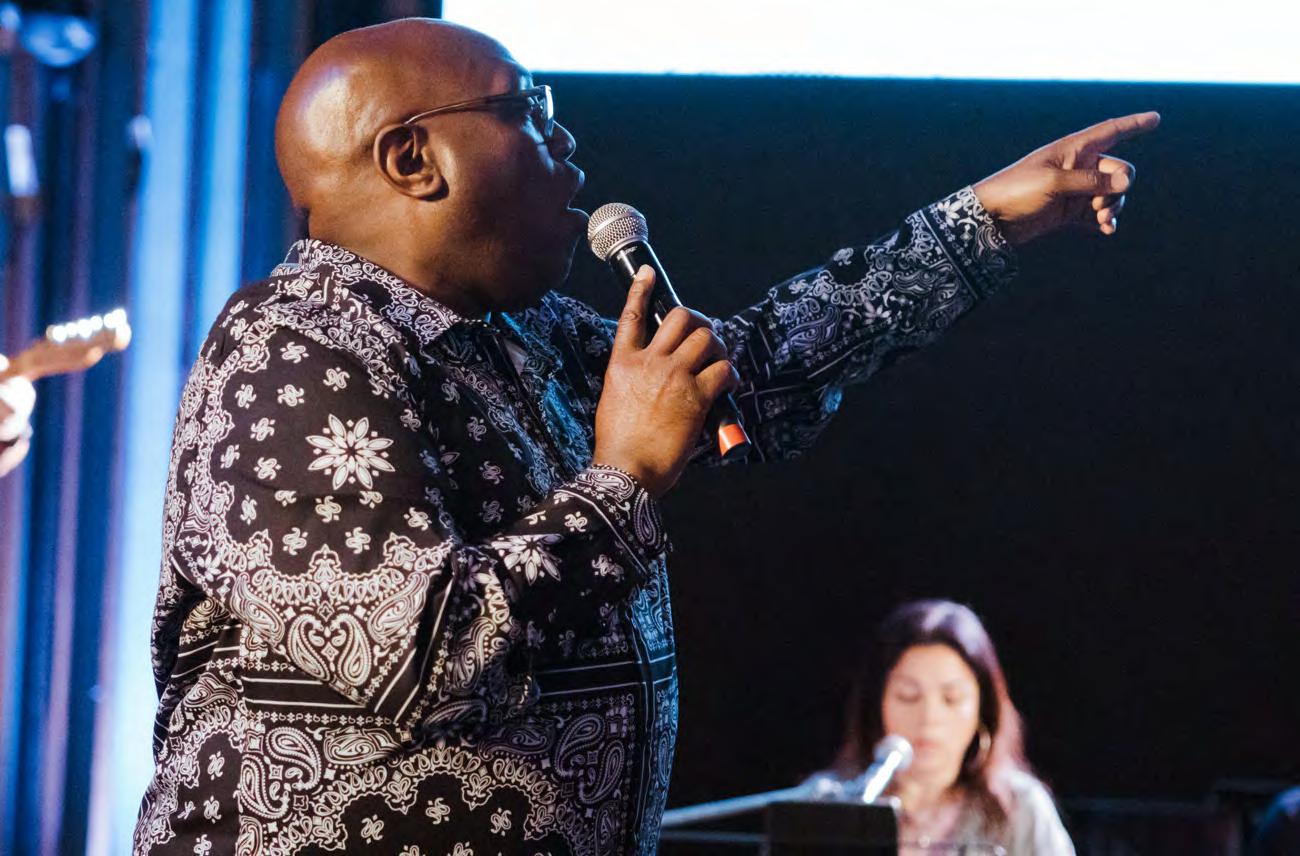


I create spaces where all people can heal, grow, and move toward the most whole version of themselves.
and connection, I create spaces where all people can heal, grow, and move toward the most whole version of themselves. I believe our individual freedom is tied to each other’s, and that true belonging makes room for mutual flourishing.
January: Beautiful. This issue’s theme is a complicated, layered, and beautifully complex one of “family.” What value has family held in your life? How has the idea of family shaped and formed you?
Eric: Family has always meant a lot to me, even when it’s been…a lot. I grew up in America’s Deep South—born in Birmingham, Alabama, and raised in Lake Charles, Louisiana, moving back and forth between the two states throughout my early years. Family wasn’t just the people inside our house or blood relatives. It was church folks, cousins, neighbors, and the aunties and uncles who weren’t technically related but were always around. These were the people who showed up when it mattered—whether we needed a ride to school, a sudden place to live as we fell upon hard times, or a good pep talk—and the ones who also knew exactly how to get on my nerves. That was part of the “family” deal.
My immediate household was mostly my mama, two older brothers, and my little sister. There were times when stepfathers were part of the picture, and seasons when one or both of my brothers lived with other relatives or friends. Whoever took them in, whether already related or not, became family. So when I talk about family, it’s layered. The people who raised me didn’t all share a last name or live under the same roof, but they shaped me just the same.
From that mix, I learned the power of what many African Americans call Black joy. Not just happiness, but that deep, rooted joy that knows how to rise in pressing times. Joy that
shows up in cracking jokes, storytelling, and sharing food together. There was always food. Sunday lunches after church, family & friend cookouts, folks dropping off plates just because. That rhythm of gathering and feeding each other is still in my bones. Even now here in Southern California, I host what I call my “lunch bunch” after church on Sundays. Everyone’s welcome. No one’s turned away if they can’t pay. That’s family to me. And we look out for each other. That’s the part that I still carry.
January: I love how you mention that family always meant food! And that joy is often tied to sharing time around a table. What were some difficult aspects of living into family for you?
Eric: Yeah, those early years weren't all easy. As I grew into myself, especially as a gay man, I realized there were parts of me that didn’t feel welcome—not at many of those tables, not in church, not even in the little in-between moments. Very early on I learned how to read a room. How to stay small to stay safe. I carried that for a long time. And I’m still on this healing journey towards wholeness.
One memory that’s stayed with me happened in Birmingham during a church-filled Sunday. Our house was crowded, and one of the seasoned women, someone I saw as an ‘auntie’, was chatting with some of the younger folks about dating. Then she turned to me and asked rather directly and loud enough for other people to hear, “Do you like boys or girls?” I froze. I had no words, no safety, no real way to respond. She had helped nurture me in many ways, especially as my mom was away working, but at that moment, I knew there were limits to what she could hold as it related to that part of my identity.
I think this is why my chosen family has become so important to me. Over the past year, a small group of friends from (or connected to) my faith community have become that for me. We show up for one another. We’ve built our own kinda table. It may not be literal, but the connection is real where we share meals, laughter, relatable memes via social media/ text and the kind of soul-deep conversations most of us never had growing up. There’s no shrinking here. No code-switching. Just space to be. It’s not perfect, but it’s real. It doesn’t

erase where I come from, but it’s shaping where I’m headed. And I’m challenged in the best kind of ways by my chosen for myself.
January: Are there any particular chosen or nuclear family members that have had a major impact on you? Either positive or negative?
Eric: My mom is one of the most faith-filled people I know. Even when I’ve struggled with my own matters related to faith, I return to moments of watching her live out her spiritual values—not always in prescribed ways, but in sincere ones that were most meaningful for her in whatever season of life she was in. There were times she stopped attending church—not out of total resistance, but out of self-preservation. Simply put, I see now she was protecting her spirit. Her love for Jesus and people never wavered. When my siblings and I would tease her about not going to church, she’d say (and still says), “Baby, I am the church!” She would reference a Bible passage which speaks of our bodies being the spiritual dwelling places of God’s Spirit. We may not have been gathered in a church building but we always had a house full of people. And where the “two or three” or more were gathered, we had food, laughter, and deep spiritual conversations . Seeing how my mama loved and cared for people shaped how I treat people when we’re all gathered together in community. That made me more mindful of who might be missing in our shared spaces and more intentional about being inclusive.
“The people who raised me didn’t all share a last name or live under the same roof, but they shaped me just the same.“
On the flip side, I had a stepfather who impacted me in a very different way. He taught me responsibility—not because he modeled it, but because he did not. His choices, especially
around alcohol, brought financial instability and chaos into our family in ways which could have been avoided. Those choices led to us having to move around way too much which landed my mom and siblings in situations where we’d have to turn to family or community for living support. I’ve made better decisions in my adult life because of those challenges and hardships brought upon us due to my former stepfather’s choices including alcoholism.
January: How would you describe "family" in this current season of your life? In what ways has it evolved for you?
Eric: Family looks different now than it has in any other season of my life. I live in one city, work in another, and I’m still finding my bearings after leaving a faith community I was part of for over a decade. It’s been a season of starting overrebuilding, reconnecting, figuring out where and with whom I can root myself again. Some days I feel a little displaced. Not just geographically, but emotionally and spiritually too.
Alex and Abi are two close, trusted friends who have been there with me through it all. They live in a different city, so it takes effort to stay close. And if I’m honest, I can be prone to isolation, especially in this kind of transition and in these strange and unusual times we are all living in at the moment. Community here in Southern California doesn’t move like it did back home in Louisiana or Alabama. Folks are busy. Spread out. It’s easy to feel forgotten if you’re not already in someone’s rhythm. But Abi, Alex and I communicate daily and make space for each other. They truly are family to me.
January: Can you share your background with music and how your career has grown throughout the years?
Music has been part of my life for as long as I’ve been alive and breathing. We heard it around my mama’s house, my grandmama’s home, church, school, on the streets, in the stores, and for me, in my imagination. Before I could name it, I would imagine myself on stage singing to crowds of people and inspiring them through song and story. I role played this in my mama’s home when everyone left the house. And I used broomsticks as if they were microphone stands.
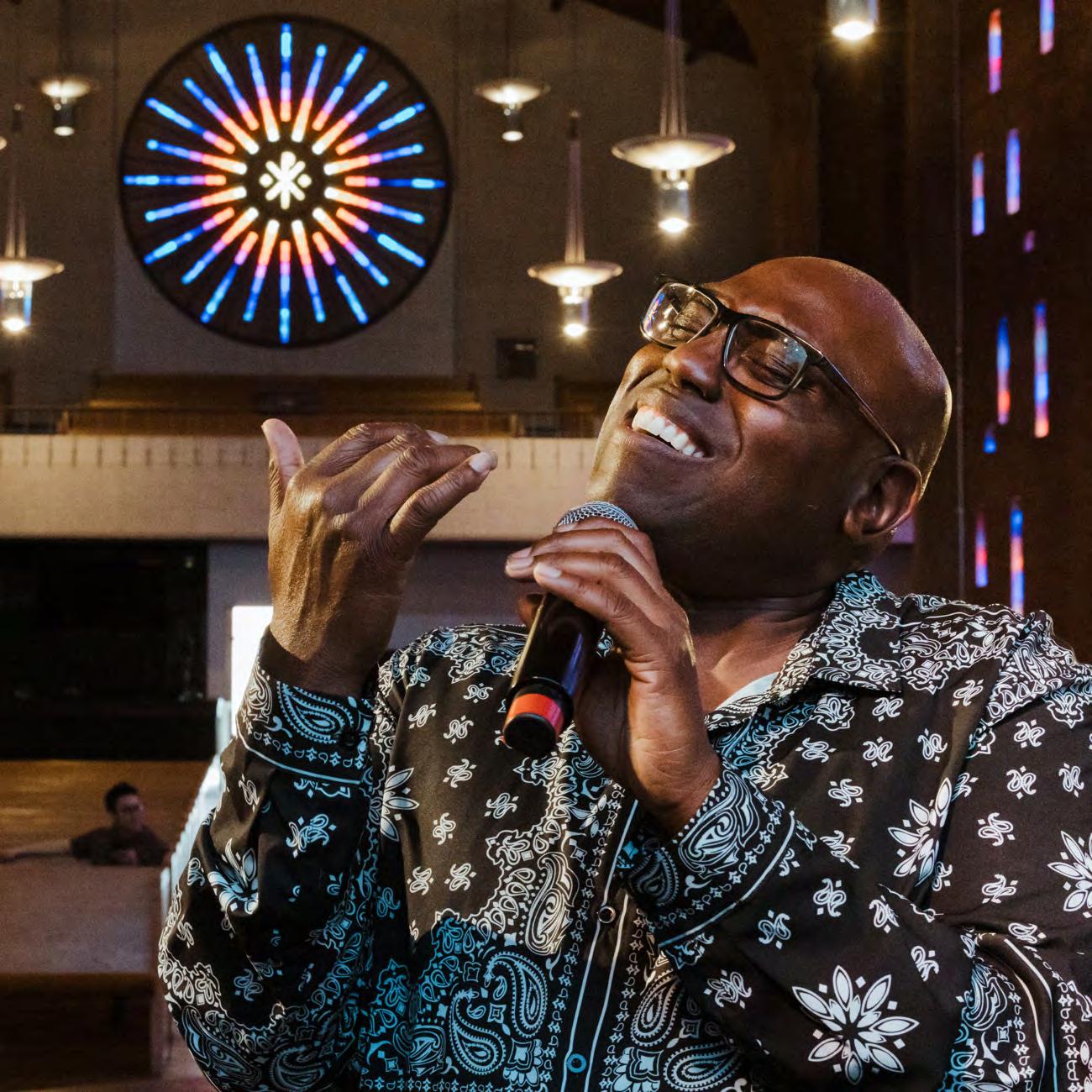

I listened religiously, endlessly to the music of Shirley Caesar, Luther Vandross, and Whitney Houston. They were three of my absolute favorites throughout my childhood. Then in ninth grade I was introduced to the music of inspirational singer-songwriter Babbie Mason. And her music took up space in ways that profoundly shaped my love and passion for singing and songwriting. Up until the age of 17, singing was a hidden talent for me and no one in the family knew I loved singing as much as I did. Then, at 17, a music leader at church approached me and said, “I heard you can sing! Is it true?” That conversation led to my first solo at a youth event in Birmingham—and yes, I sang a Babbie Mason song, “Show Me How To Love”. From there, things took off.
A couple years later, I joined a touring band based in Michigan and spent a year traveling the country. When I got back to Birmingham, I started singing regularly at church and picking up gigs. That eventually led me to a small Christian college in San Diego. I toured with one of the school’s vocal groups, recorded my first solo album Surrender in 2009, and a follow-up Sole Desire in 2012.
In 2014, I launched The Ethnos Project Collective—a global network of musicians making intercultural music through audio & video recordings and live performance rooted in faith, hope, and justice. We’ve recorded three studio projects and performed internationally. Between solo work, collaborations, and leadership roles, I’ve now released or produced 14 recording projects, including, as musical worship director, overseeing a live recording of the Urbana 18 LIVE worship album in front of over 10,000 university students.
These days, I’m more mindful about where and with whom I make music. I want to be in spaces that reflect what I believe—love, justice, and the kind of hope that holds space for everyone.
January: Thank you for sharing that with us. Your music is such a powerful gift that you so generously give to those around you! What is your relationship to it and how has it been “kin” to you?
Eric: When I think about my relationship with music, I’m reminded of my personal moments of grief, loneliness, transformation, questioning, reckoning, and all of the “things” of life - good, bad, and indifferent. In every moment someone has created a song that has held me and been with me every step of the way. Even in my dreaming, exploring, resting, and just ‘being’, music has stayed with me. And I’ve stayed with it. We’ve been faithful to each other. And I am just grateful for the folks who said yes to their call to create music that will continue to transform lives long after we humans have said our last goodbye.
One thing I wanna note is, because of where I am in my life journey now, I am mostly drawn to songs created by and for folks on the margins. I want to hear the heartbeat of the composer through the rhythm, story, and flow of their song. I love all forms of music but there are certain musical renderings I feel most at home with. Those are the songs that tend to stick around for a long time and those songs feel like “family” to me because they are so familiar to me.
The music I choose or write has to make space. Space for joy, for protest, for lament, for healing. Space for questions we’re still carrying. Space for people to show up as they are. And that’s what makes it feel like family. It holds me when I need holding. It tells the truth. It doesn’t shy away from the hard conversations. And it keeps evolving with me.
January: Describe a future Eric Lige—surrounded by family. What does that family look like?
Eric: The future version of me—the Eric Lige I’m still becoming—is me being at home with my person whoever that might be. (I’m in manifesting mode, so if you’re reading this... stop playing and come say hi!) I see myself with someone who is fully loved by me and embraced by both the family we’ve chosen for ourselves and the family that has chosen us unconditionally.
I can see me and us surrounded by a kind of family that feels like rest, laughter, and freedom when we’re all together in a shared space. A future version of eric lige ensures that there is a seat at the table for all who have found the strength, courage to show up. I see it as a table of belonging in a space built by love.
That wellspring in me has never run dry. And when I imagine that future, I come back to the heart of why I do what I do: I live to inspire, uplift, encourage, challenge, and call people toward love. Because God is Love.
And like one of the songs I sing says, “Love is calling out to everyone…” So the real question is—are we making room at our table for those still searching for their chosen family?
January: Thank you so much for sharing your story with us, friend.

“The music I choose or write has to make space. Space for joy, for protest, for lament, for healing. Space for questions we’re still carrying. Space for people to show up as they are. And that’s what makes it feel like family. It holds me when I need holding. It tells the truth. It doesn’t shy away from the hard conversations. And it keeps evolving with me.“

By Julie Kim
The sound of water running in the sink wakes me up. It’s the morning, and I’m not sure why I’m not getting dressed or quickly eating breakfast on the way to school. When I call out, umma walks into the room, lies down in bed, and pulls me close.
“You didn’t go to work?” I ask.
“I didn’t need to be in early,” she responds. She puts a cold palm to my forehead and flips it over. I have never been alone at home in the morning with my mom. When I realize this is the first time she has ever been only mine, I am in the mood to tell her about a hundred things: my classroom with the colorful stickers on the carpet, the girl with hair just like the fur on her big brown dog, the boy Tyler who likes to kiss many girls during recess.
I say nothing about being the last student to leave class since we started practicing with clocks. I don’t tell her that the back of my head gets prickly when the teacher tells the students next to me to help me with my work – how one day she yelled at me and sent me to sit in the corner and face the wall all afternoon when I asked these same students a question about the assignment. Umma looks over at the clock on the other side of the room. She gives me one more kiss on the forehead and says, “We’ll have breakfast and then you’ll go to work with me today.” I pull at her shirt but she doesn’t notice as she gets up.
Ever since the class learned how to read clocks, our teacher makes every effort to give us practice. Most days at the end of class she orders us to stand, put away our chairs, and wait by our desks. One by one she dismisses us but only after we correctly read the time that she manually set on the clock in her hands. For weeks this has been our exit quiz. I don’t know how my classmates answer so fast and so well. When it is my turn, I always fumble the first attempt.
“6:45?”
“Try again.”
“5:45?”
“Good. You are dismissed.” That was the first time I gave the right answer in just two tries.
The big hand clicks away and the small spell of our slow morning dissolves. I look back at the clock, but I don’t see what umma sees. I’m only six years old and still very bad at telling time. I know enough, though, to know that ever since we came to Ame rica, there has never been enough of it.
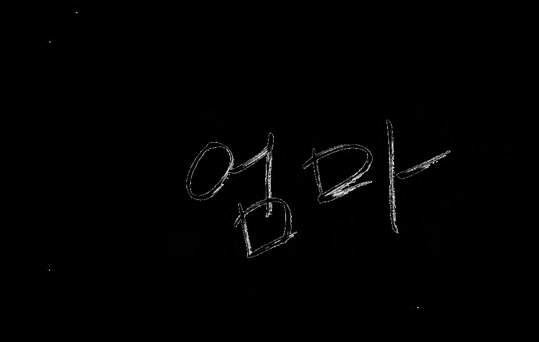
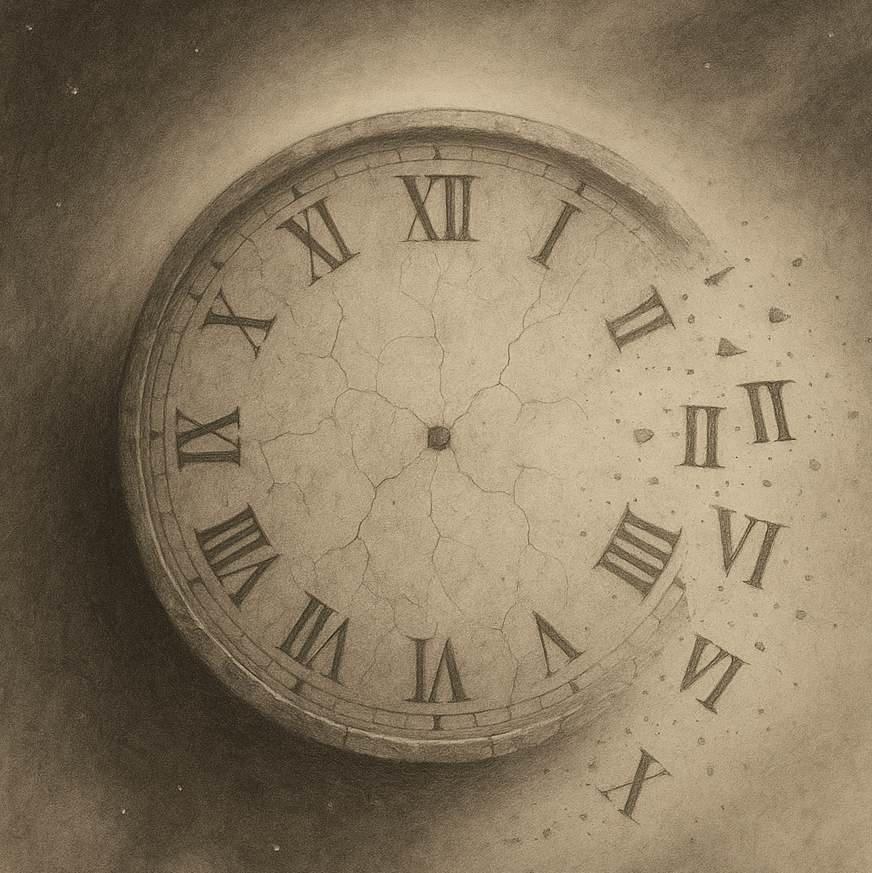
By Julie Kim

remebered
My mother talks a lot. I _______ seeing her in group settings with other adults and wondering how it could be that every time I walked past them, a cluster of anywhere between six to fifteen people, my mother was always the one talking and making the group break out in laughter. And maybe for this reason, until recent years my mother was uncomplicated to me.
Between all our big and small conversations, I came to believe that I already knew everything there was to know about her. I believed everything she said just the way she said it. I paid little attention to the difference between her words and her ways. In that sense, my mother was a mystery shrouded behind a curtain of words.
nothing out of the ordinary.” Some days she added that she hadn’t even been aware of his absence. “I don’t even remember how old I was when he left,” she added as proof.
“Did you ever wonder if he misses you? Your family?” I asked.
“What’s the point in wondering after that?”
I believed her each time. And so it was that I grew up thinking fatherlessness was no big deal, no worse than spring allergies.
Then one day, I told my mom about a new friend I had made at school. “What do her parents do?” she asked me.
“Maybe you get your knack for literature from your grandfather.”
Who? I never knew either of my grandfathers. I knew nothing about my mother’s father–not his name, not even his face.
“I think he had a degree in literature from… I can’t remember. Some university in Tokyo.”
After years of hearing that he wasn’t a part of her life and therefore mine, the news that I perhaps partially owed my aptitude for literature to this man was incomputable. What did this man mean to us? What did he leave behind other than absence?
I knew ______________________
she grew up without a father
I knew that she always spoke about it as something insignificant or even natural. Several times I asked her, “Did you ever miss your dad growing up?”
“No,” she responded. “So many families were missing fathers in those days. It was
“I don’t know,” I answered. “She doesn’t really know her dad.” As I shared more about my friend, my mother grew tearful and said, “Everyone has a story.”
A few years ago when I was just a couple weeks shy of graduating from college, my mom said something completely foreign:
And then I understood—as a literature major, I primarily study people. I examine their histories, contexts, and the manifestations of their pasts in their present. I forecast futures and weigh their interiority against their words and actions, or (more interestingly, personally) their silence and suppression. I look for lies. I’m trained to think about what it means when a character says “Yes” as they put a finger on
a scar, or what it means when they smile at the end of the paragraph. I contrast this smile to all other smiles that appear throughout the story looking at its contexts, motivations, and revelations. This kind of reading was especially important as modern stories introduced more and more unreliable narrators—that’s it. My mother is an unreliable narrator.
Suddenly the person before me seemed so very unfamiliar. She outgrew the outline of “mom,” of 엄마 , and became a somebody , a somebody with a self before motherhood and before marriage. A girl with a mother and a memory of a father. A human with questions, fears, and pain that she didn’t always know how to work through. I see her as a little girl. She had not chosen fatherlessness, but there she was: a little girl of maybe five, six, or seven whose father was there one day and gone the next.
I _____ had asked her about her father many times. Had she asked her mom about him, too? What were those conversations like? Did she–could she–ever walk away satisfied with the response? Was I hearing the deflections and matter-of-factness that she herself had heard? If I can’t even begin to understand her relationship with her parents, how much more was I missing about her?
where we start as 1 tiny cell and become trillions. Their voices shape our consciousness. She was the first thing, and once the only thing, that we know. She was everything and the first thing.
But we emerge much later in their lives, after their building blocks are set. Barring accidents and tragedies, generally we watch them pass on to death as we inevitably continue living. They are there for our beginnings, and we are there for their ending. And because I am forever shut out of her beginnings, I could never know her the way she knows me.
Korean

all around my mother’s many words. I see that maybe she hoped to fill the void left from her fractured family with one of her own, or that she struggles to get through some days, or that she’s carrying all sorts of emotions and experiences that predispose her to tearfulness. Filling in these blanks allows me to learn something new about the world that lives inside her.
Everyone has a story. My mothers is a brilliant one. And though essential, I am just one character in it. To love her is to read her with care. I take my time to fill in the blanks and step closer and closer to her. myself
For many _____ immigrant parents born in the years before, during, and shortly after the war, emotions are often lodged in murky places. This is only reinforced by the violence of migration. Deflections and matter-of-factness are standard tools of communication. And when we manage to get past the first lines of defense, when emotions do emerge, we often find that they have been tampered with. Instead of grief, we are given aggravation. Instead of remorse, spite. The issue of rage is sometimes that at all but fatigue. Loneliness. Injury with no safe, soft place to land.
The mother-daughter relationship has an inverse shape. My mothers are the womb
My mother told me that all her life she just wanted to be a mother and a wife. Sometimes she says she’s fine but can’t seem to get out of bed. She cries when I tell her about something I saw or learned that day. Suddenly I saw shadows and spaces


By Julie Kim
On the first day of American school, my teacher seated me next to a Korean-speaking student named Amy. Like me, Amy is five years old and she had the monumental task of being my translator. When the teacher made waa-ree-grr sounds, I looked to Amy who led me to the carpet for reading time. When the teacher passed out sheets of paper, Amy made sense out of the scribbles, pictures, and lines.
I spent most of my afternoons in the homes of a rotation of other Korean children whose mothers were home. It helped to live in a massive complex with hundreds of units. Word must have gotten around the Korean immigrant social networks because we were slowly making Korean the unofficial language of the playground as children and mothers congregated to play and share news and tips for breeding good, studious children. These mothers picked me up from school with their children. They made us lunch and sat us down for homework. When we were done, they allowed us to run over to the playground or the pool.
But Amy’s mom did things a little differently. She picked us up from school, fed us, supervised our homework, and then allowed me to play while she sat five-year-old Amy down for more studying. Amy was doing something like fourth grade math at the time, while I had barely enough interest to finish my double digit addition problems. I watched Amy cry on several occasions because her mother was so demanding. She studied with a pencil in one hand and a tissue in the other. Not only did she rarely permit Amy to play with me (which was a shame because when given the chance Amy was a fierce, fiery Pink Ranger), she also yelled and smacked Amy’s back when she wanted more focus, more effort, more application from her.
Like me, Amy had an older sister. Amy’s sister was three, four, or possibly five years older than us. She was tall and quiet. She smiled a lot and liked to play games with me when I was done with my homework. She was nothing like my sister, who was eleven at the time and always with friends talking trash, discussing boys and bands and boy bands, or chucking handballs into walls and unleashing pure animal rage in the court. Amy’s older sister didn’t have many friends. While Amy studied fractions and long division, her sister and I learned how to play boardgames all wrong. One day, we opened up Chutes and Ladders without bothering to read the instructions and instead added an element of rock, paper, scissor to move our pieces. Amy overheard us and shouted out a warning, only to have her mother hiss at her.
I knew something was different about Amy’s older sister, not because she played with me more than Amy or my sister did, but because she could
hardly talk and sounded strange when she did. I wish I could tap back into my young mind and recall how I made sense of her disability. All I remember is that I adored her, and her being strange didn’t really matter to me. Back then, different was just different, not any better or worse. Amy and I were different, too. She was so good, studious, and obedient. Similarly, Amy’s mom and my mom were, in terms of archetypes, on opposite ends of the spectrum. My mother wanted nothing more than to play, have fun, and give her daughters space to explore all sorts of experiences–laughing with friends, visiting new places, even falling in love. Her best intentions and philosophies for raising children were, unfortunately, perpetually interrupted by her long and frequent workdays. Most of what I remember about my mom while I was growing up was wanting more of her.
Amy had plenty of her mom—perhaps a little too much. But Amy was like two daughters to her mother: the precocious second-born who followed her mother to the land of fractions and the fill-in firstborn who would be smart and strong enough to survive in this world and make a way for both herself and her disabled sister.
Amy was also two students: one striving to learn and please her teacher with her work, and at the same time, another student leaning over to make sure her immigrant peer was not falling behind. She was a five-year-old leading another five-year-old through her first days in America. She was two different children: an American-born California sunbright child of promise who entered an anxious post-war Korea of vicious competition when she was in her parents’ home.
The Korean immigrant mothers around me often had an old-world disaster preparedness mindset. If I were to die today, your older sister would be your mother. (And don’t forget the cash hidden in the mattress.) I’ve often heard my mom say this to me to invoke a spirit of interdependence and the hierarchy that comes with birth order in Korean families. It bestowed responsibility and authority upon my older sister, and as the youngest, my duty was to follow. We all have our assigned roles in a family like mine. So naturally I wonder how often Amy’s mean mother thought about her own eventual absence. What would obligation and survival look like for Amy and her sister? When I think about that, Amy’s mom stops being so scary and mean in my mind.
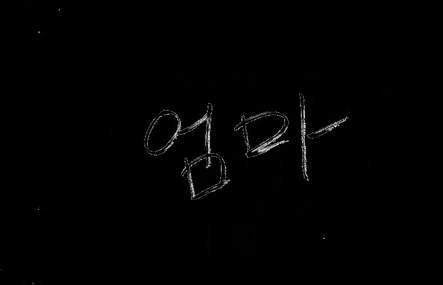

Written By Soo Ho Lee
Artwork by Abby Chen
“Let’s get started, shall we?”
She’s attractive. Definitely took the time to do the no makeup makeup look, which I know, after waiting for my wife, takes a good bit of time. She’s dressed professionally but not suggestive, impressive but not sexy. A fine but firm line. She must know men like her style.
“Start where? My childhood?”
“If you want. Whenever or wherever you want to begin from.” I wonder how comfortable she is with silence. Do therapists secretly wish for their patients to wait out the clock? Every second in silence is paid just as much as every second that’s filled with chatter. It’s more awkward but requires less effort. Of course, if the patient feels that these hours are a waste of time and money, then they wouldn’t continue such costly ventures. Thus, cutting the therapist’s income stream.
Then again, I’m the one who feels uncomfortable with silence in front of strangers. And she’s a stranger.
“My father was pretty much absent ever since I can remember. And whenever he came around, he only talked about himself, business, money, and his wish that I follow in his footsteps. He felt like a stranger then and even now after his recent death from the freak drunk accident. My father, he liked to drink. I always thought an accident was bound to happen, given how much he drinks and drives. But this time—the one time that’s life-threatening—it wasn’t his fault. The other driver was drunk and went 50 through a red light. T-bone. Instant death, they told
me, right at the intersection. I didn’t say or even think thank god for a quick death or questioned why. I just thanked the doctor.
“I actually wanted him to suffer a bit. Maybe die on the way to the hospital. Not necessarily survive. Not so that I could have last moments with him. But that he would spend his last moments with regret. And I know he has regrets because I have regrets about him.”
She’s holding a pad but doesn’t write, as if to give the impression that I have her full attention. She’s also silent. Doesn’t ask any follow-up questions.
“They’re not regrets about wanting to spend more time. You know, to make up for lost time. Not regrets that I had a shithead of a father—which, I’ve learned to accept that he’s not the worst of them all. Just the normal amount of shittiness, which is okay, I guess. Not regrets that we could’ve cleared the air between us and fixed what we never really had. Just regrets. Regrets that he was my father and that I was his son. Of this particular hand we’ve both been dealt.”
“But not everything?”
“No, not everything. I am who I am because of my life—things that happened and things I chose to make or allowed to happen. And a part of my life was him, however rarely he came by.”
“Do you like who you are now?”
“I-...yes and no. I mean, mostly yes...”


We’re silent. This silence feels thicker. Did I not want to answer this? Was I caught off guard? I’ve answered this to my friends and family before: “I like me. I feel like I’m not a terrible guy, given how shitty life can be.” And I mostly believe it. But something is stuck in my throat with her in front of me. Do I…want to impress her? But with what? My articulate trauma-dump? My refined ‘woe is me’ speech? My cool, collected disconnect to my own story?
“I do like who I am. I don’t necessarily like how I got here, sometimes. But I also don’t think it’s worth thinking otherwise. Everything that happened happened. I can’t change the past or even other people. I can barely change myself—only how I might react to one thing at a time.”
She holds our silence. Her eyes don’t show a hint of adoration, surprise, boredom, or disgust. Neither does she look empty, devoid of feelings. She’s just looking at me. She sees me.
“How’s therapy?”
“It was okay. Just first session stuff. Childhood and dad, mostly.” My wife approaches and strokes my arm gently. She places a light but tender kiss on my cheek.
I smile softly and lock eyes with her for a few meaningful seconds before I return a kiss on her lips.
I first saw her stifling her laughter. Her face gleamed as her friend shared recent blind date fiascos. All the way from across the room with the speakers blaring, I could hear my future wife’s cackles and snorts in my head. They were so adorable. She was so adorable. I grinned like an idiot. And that just so happened to be the exact moment when she saw me in-between her laughs. Of. Course.
But she held that eye contact longer than when two strangers accidentally lock eyes and awkwardly break. Like when you pull up next to a car at a red light and both of you turn and see each other. She held it just a second longer than normal. That extra second gave me the boldness to drink 2-3 more shots that would generate the courage I needed to approach her. Only fools rush in without some alcohol courage. Or is it that only
fools rush in with only alcohol confidence? Either way, I knew I’d rather look like a fool than miss my chance.
I fumbled for words, and she’d guess to fill in blanks and gaps in my inebriated speech. I’d chuckle nervously and she’d smile coyly. She later told me that at first, she barely understood what I was saying.
“So, why’d you stay with me?”
“Mm, because I wanted to? I mean it was a funny situation, and you were still funny. Plus, the longer we were together, the better I got at filling in the blanks. “
It’s true. True then and true now. She’s good at filling in my blanks. And our silences—not only with words.
She welcomes me warmly. She picks up her notepad, and I notice there’s writing on it this time. Does she write after our meetings? Her memory must be good. She takes a quick glance down and looks up.
“You didn’t mention your mother last time. Could we start there?”
“Yeah, sure. My mom was great. We weren’t close-close, like talking about life and such, but she was there. We never had any major fights or disagreements. Or at least not significant enough for me to remember. She generally supported what I did, and I rarely did things she frowned upon. She died of cancer a few years ago. Cervical. She went peacefully.”
“Did you have regrets then?”
“Just the usual stuff. Wish she didn’t have cancer. Wish she had more time so she could see my kids—if my wife and I ever decide to have them. At least she met my wife, and didn’t hate her. Didn’t seem to love her either, though. They were cordial.”
I’m reminded of dad.
“I don’t have the same kind of regrets as I do with my father. I don’t know. For some reason, I have a harder time accepting his death than my mom’s, even though I loved my mom more. It’s as if I’m more at peace with her passing than my father’s death.”
I rub my hands together.
“My father was torn when he heard of mom’s death. They were separated but not divorced then. Only time I saw him wailing like a maniac was at the funeral. People approached him and pitied him—the majority of them didn’t know my parents were separated. That pissed me off. Why do people who don’t deserve pity always seem to get it?”
“Honey, do you remember mom’s funeral?”
“Yeah, why?”
“Did I cry?”
She looks at me amused.
“You don’t remember? You were wailing. People came up to me and your dad to offer condolences because they felt they shouldn’t bother you.”
Memory is a tricky thing. To remember is to let the present be obsessed with the past. In recreating the past in our minds, however, we’re prone to mistakes. Mistakes that can be colored by anger, bitterness, regret. And a vicious cycle can emerge: a maddening event, a seed of regret, a tainted memory, an unexpected trigger, a tarnished remembering, a deepening regret, an infuriating reminder, a guttural regret, and so on. Regret and memory can feed on each other and sometimes go so far as to mis-remember what actually happened.
I remember now. People did approach my father at my mom’s funeral, not because they pitied him more but because I was inaccessible. I don’t know when I started remembering it wrong. But I did.
I’m more quiet than usual. She doesn’t prod.
“I don’t know what to talk about.”
“That’s okay.”
“I know I have to—I mean, should—talk, but I don’t really have much to say.”
She nods silently in agreement. We spent the rest of the hour talking about work, marriage, friends, and any future vacations planned. Pretty surface-level stuff. She didn’t push anything dee-
per or steer in a certain direction.
Yet, in the back of my mind, I’m thinking about dad. His constant absence casts this distant, egotistical figure in my mind. Like a shadow on the wall, it looms large, but it isn’t really him. It’s more menacing than my memories of my mom. It’s thickening. Suffocating. Why does absence haunt people’s imagination and memories so much more? Why does your absence fill our silences with regret that I have a hard time defining?
God, I mean, why couldn’t you be better? How were you okay with whatever little or shit we had between us? Why didn’t you fucking try, like mom did?
“Mom. Do you regret your life? Marrying dad? Moving to America? Having me? Staying with dad for as long as you did?”
These are the most direct and intimate questions I’ve ever asked her. I sat with her in silence when she had chemotherapy. Sometimes, I’d read a book and she’d doze off. Other times, I downloaded the latest Korean drama for her to catch up on. But this felt like this might be one of our last cogent, private conversations we could have.
She’s silent. She twitches her mouth as if she’s chewing every word.
“I don’t regret having you.”
She doesn’t say any more. She looks with her tired but beatific eyes and sees me. She squeezes my hand, and in that squeeze she says plenty.
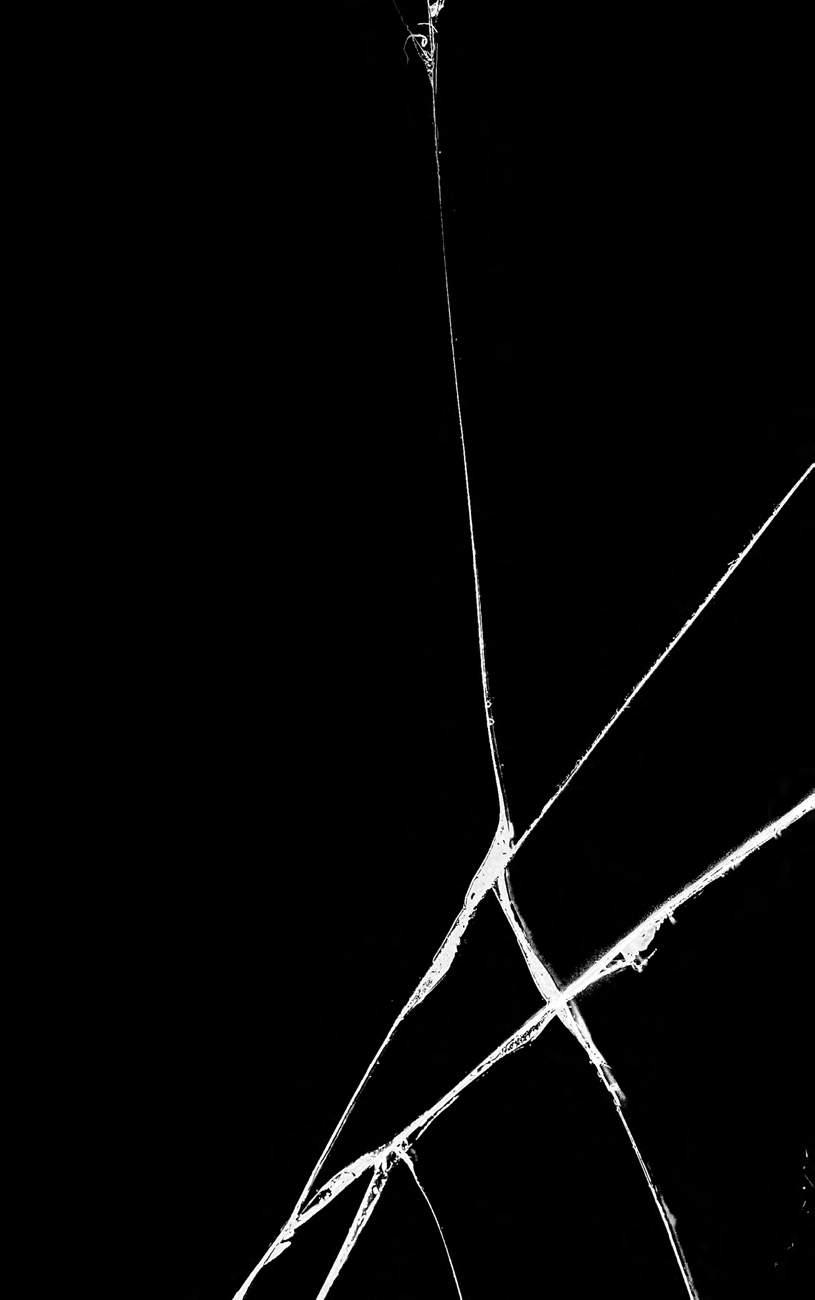
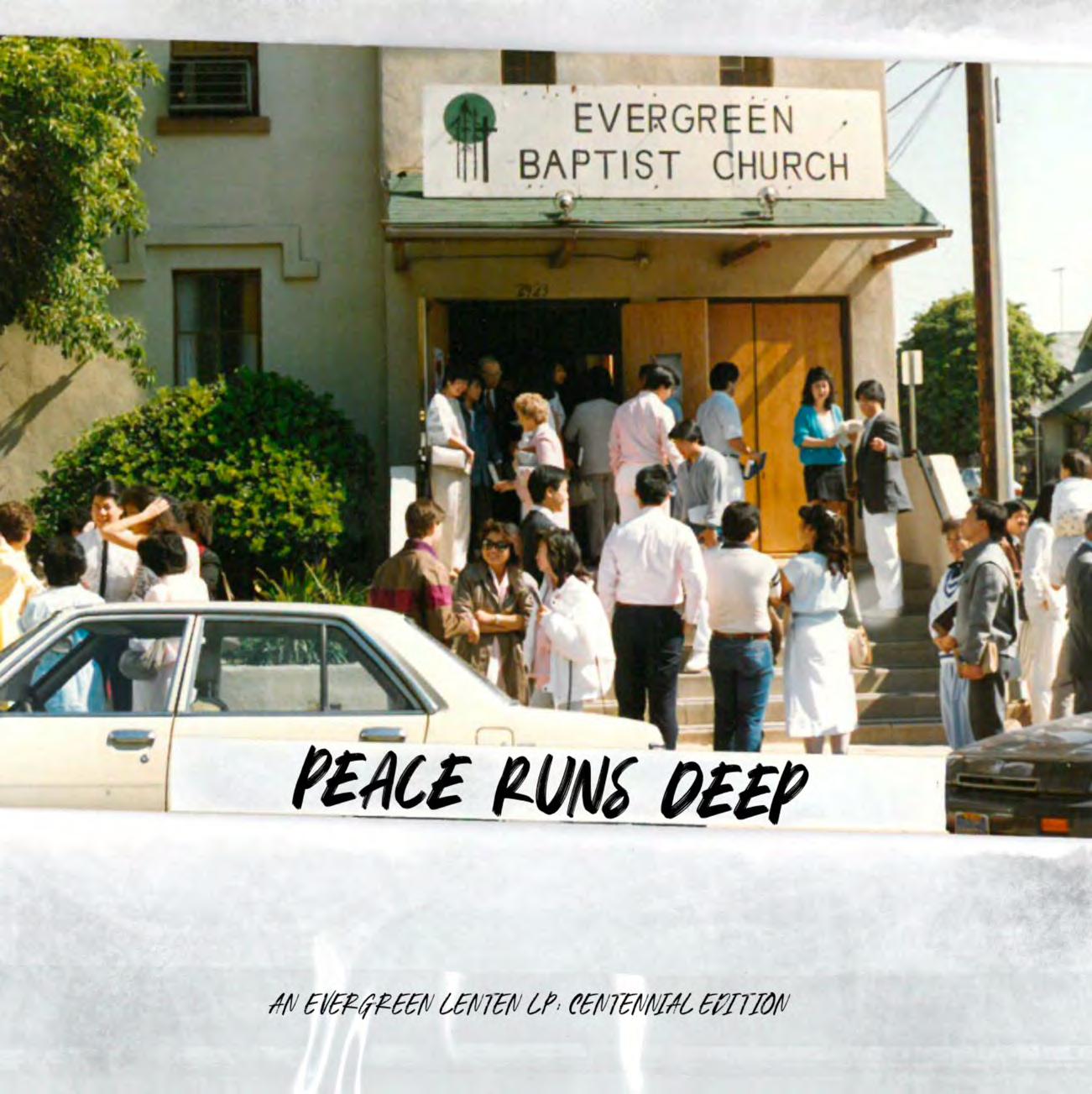
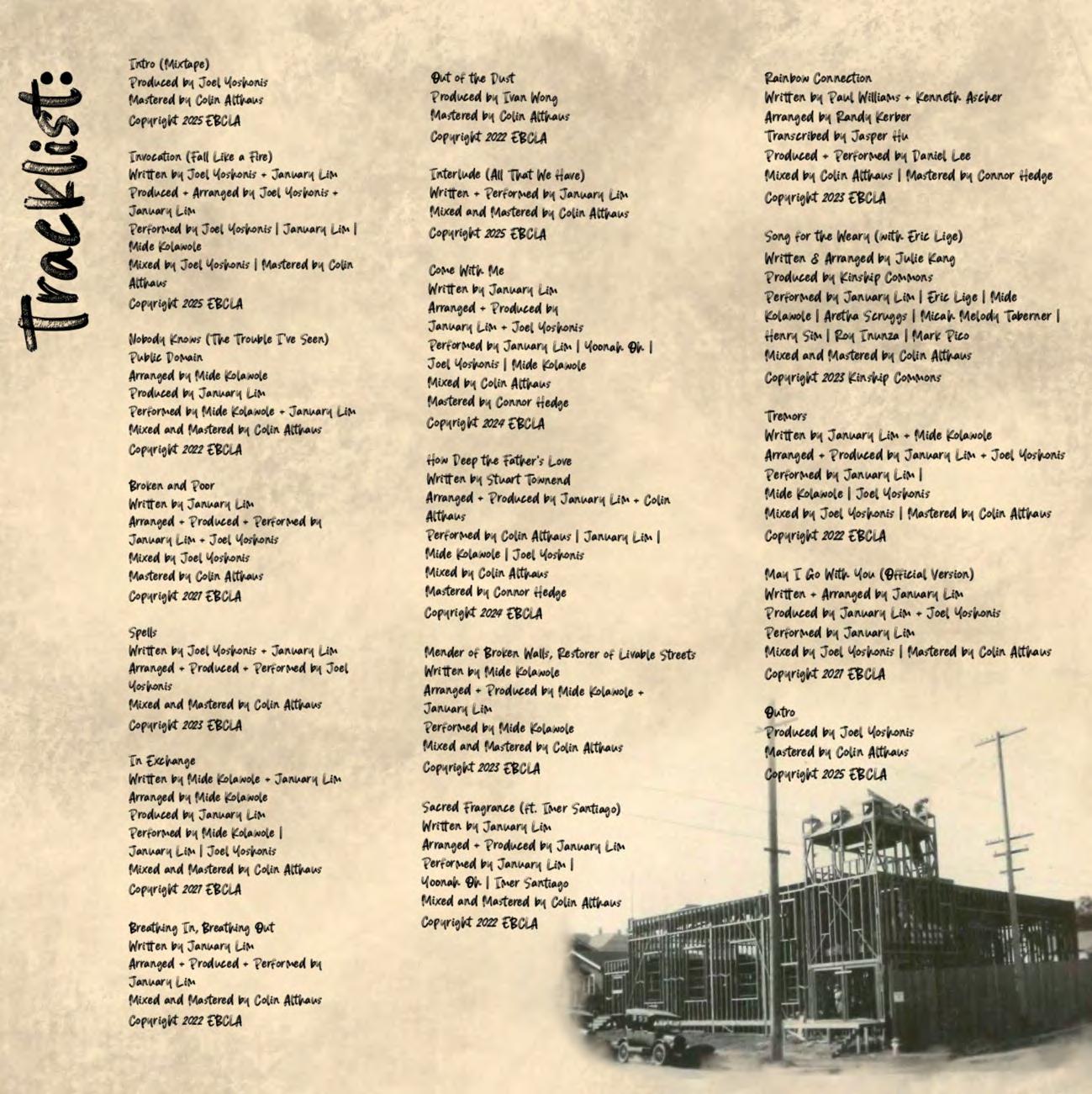
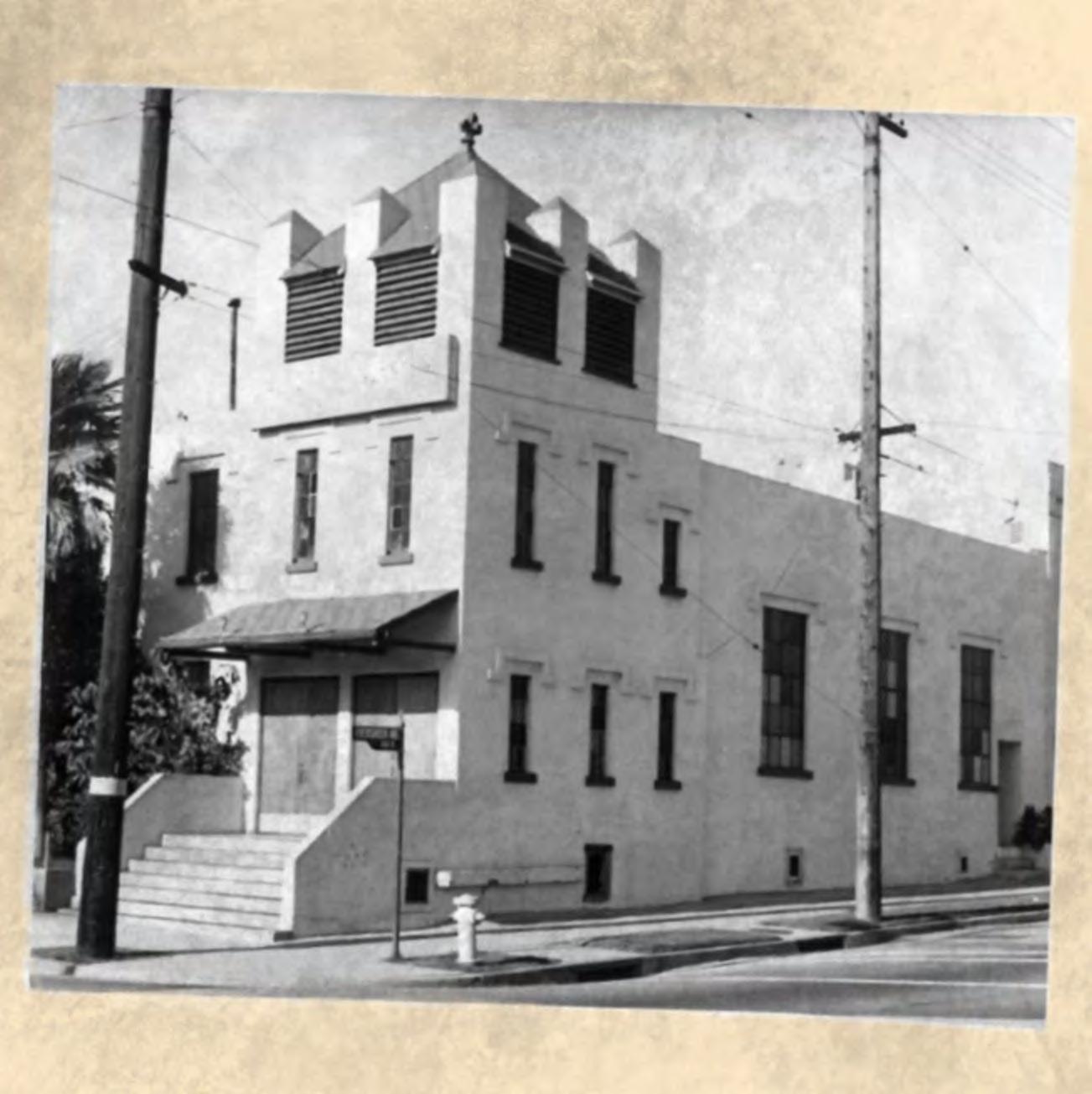


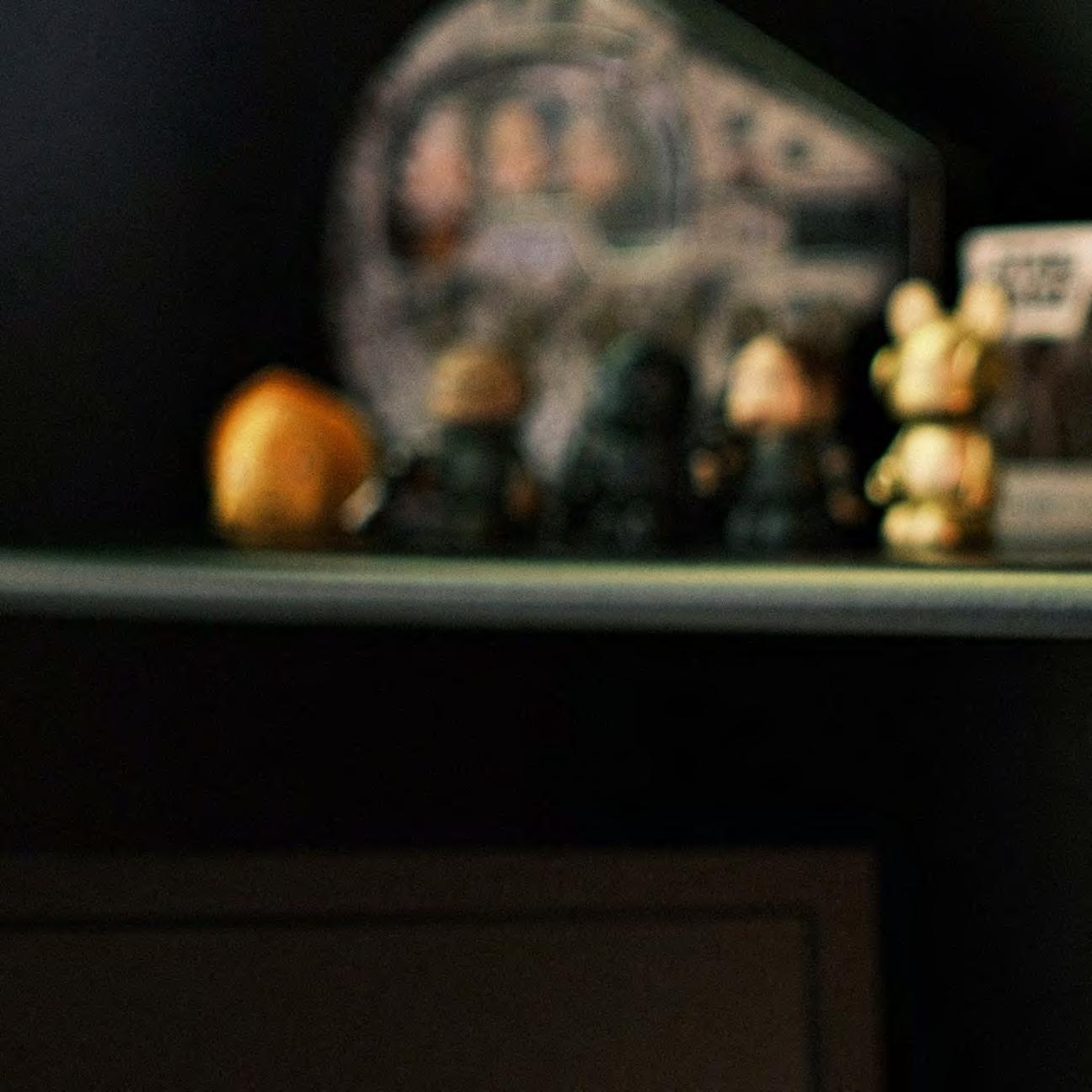
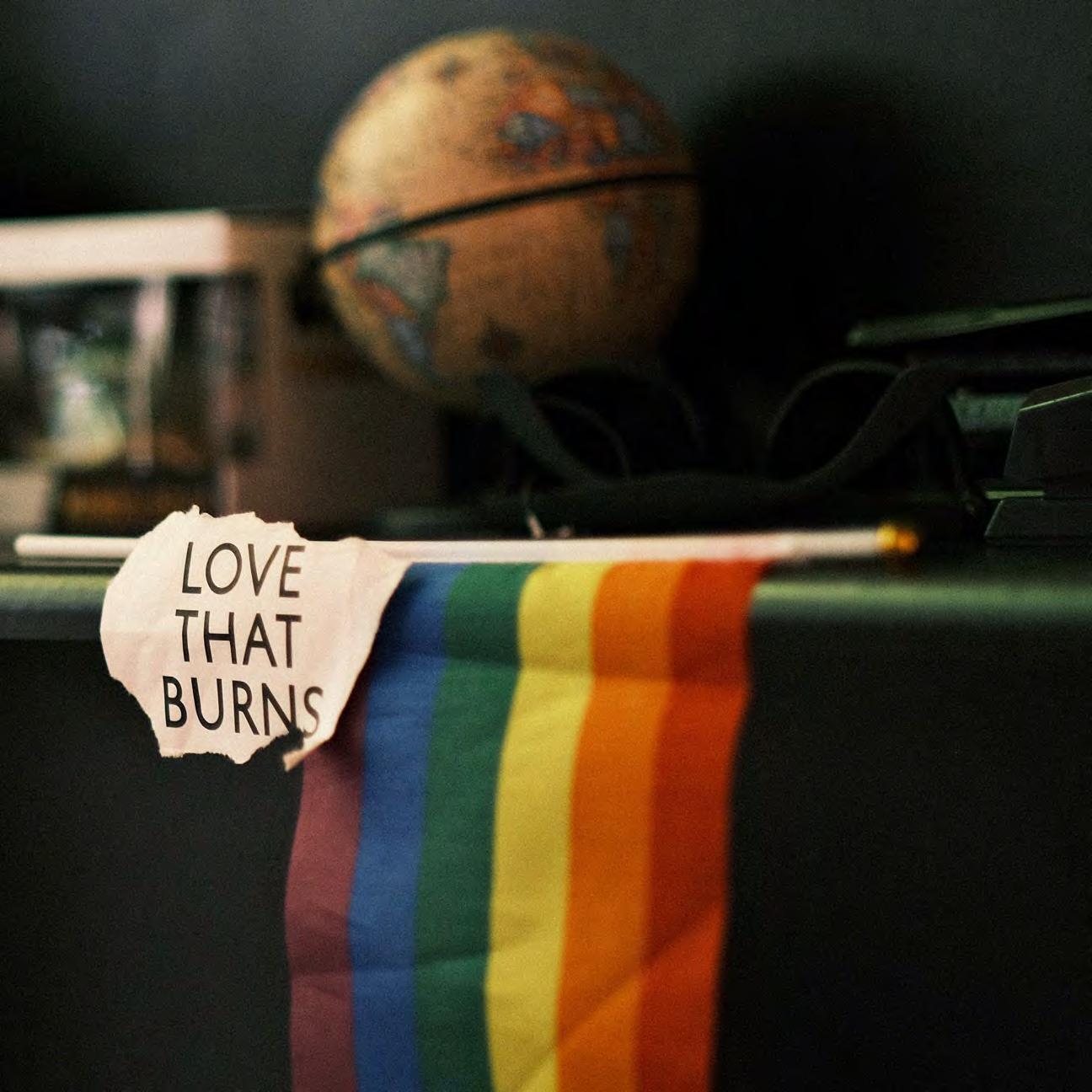











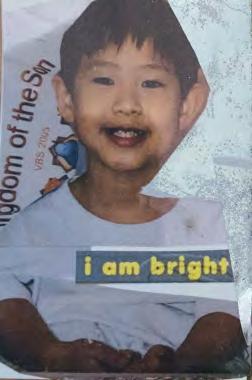

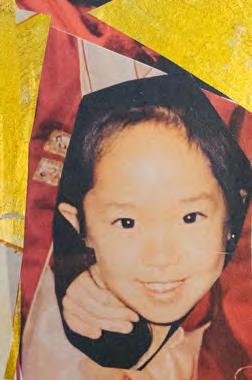

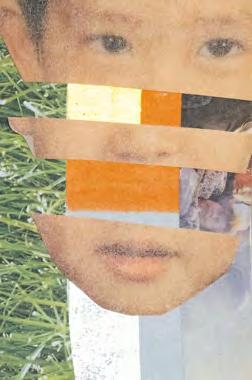




"posed, poised" grae fee












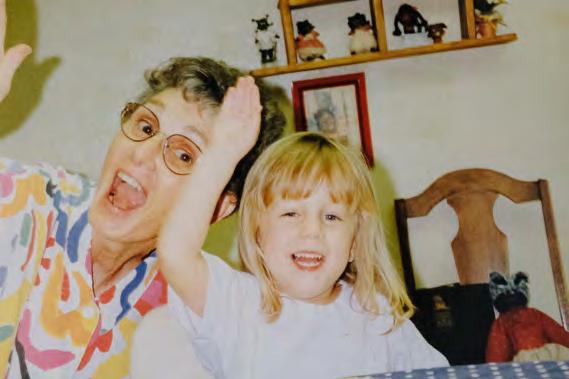

Dearest Grandmother,
It has been over a decade since I’ve seen you. As I sit to write, I can’t even think of what I would say if I saw you now. It feels weird to think about catching up with someone who knew me all my life, but never fully got to experience and know me as an adult.
I’d like to think you would be proud of who I have become. I have all the things I should have at this point—a career, a spouse, a house! You wouldn’t believe what they cost these days. I have you to thank for much of my success. There are many ways in which you prepared me for life, through the way you lived and the lessons you taught me. You worked hard, lived humbly, and loved well. You instilled in me values that I hold close—responsibility, kindness, honesty, financial responsibility, selflessness. Of course, I’m a work in progress, but the foundation was set and modeled in our family.
I thought for so long that our family was near perfect. I only have good memories from my childhood—of eating ice cream sandwiches, playing darts, pool, and pinball, doing some light gambling on the penny slot machine, learning to drive out in the desert before I was tall enough to reach the pedals. I’m thankful for the environment that was maintained to protect us kids. As an adult, I can see why some things are kept secret even within family and how hard it must have been to put aside issues for the sake of keeping the peace.
I’ll admit, at times it felt like anything less than perfect in our family was a disappointment, that actions that were not in line with expectations would bring shame to our family name, something that was especially fragile in a small town. Going away to college, I felt excited to explore what the world had to offer. One of my fondest memories of us is when you took me shopping for all of my dorm essentials. It felt like a shopping spree, even if we were just at Walmart.
During college I came home less and leaned into new relationships. I started out strong attending church and small groups, finding some friends, but inevitably ended up gravitating to the new freedom of being away from home. Soon, making it to church at 10:30 was out of the question, since waking up by 10 was a challenge. I made it to my second semester before I started drinking.
In my sophomore year, I had a crush on one of my friends. We got closer as the year went on and by the summer we were in a secret relationship. Throughout this time, I struggled with what I learned growing up in church. This was a sin, but all I felt was love for a person. Our secret began eroding the other friendships around us. I would often fight with Alicia because she knew I was hiding something.
This all coincided with your cancer progressing; each time I went home and saw you, I could only think about how I was living a life you wouldn’t approve of. My avoidance wasn’t just the pain of seeing you die, but also the pain of having to confront my decisions. You were nearing the end and we all went to your house and shared what you meant to us. I broke down crying as I spoke, in the back of my head knowing I was a disappointment. A couple weeks later I called to tell you I love you and that I’ll see you soon, knowing that wouldn’t be here on earth. You passed just after I hung up the phone.
Everything felt broken around me and it felt like I caused it. I decided it was best that I step away for a while. I studied abroad in England for the second semester of my junior year. It was truly the best thing I did in college. I visited 13 countries and shared it with some of the best people. Still, I struggled with my secret. Does God really condemn gay people? How can it be wrong to love someone simply because we are the same gender? Living with this secret, I began to feel deep shame. I thought of you and how I had let you down. I let God down, after all he had blessed me with, how could I go against him? I returned home and left the relationship in the past, knowing there was no future for us.
Life went on and time began its healing process. I graduated college, got a job, mended friendships, and got back to church. I found community within church, a chosen family that I navigated the craziness of young adulthood with. And, in the most traditional way of finding a mate, I found my future spouse.
I met Kennah at Bethany Church in 2016. We talked one night after young adults group and quickly connected over our love for travel. We saw each other sporadically at church and occasionally served together when I was on the tech team and she was on the worship team. I found myself wanting to spend more time with her. I remember someone saying she was gay, and I was curious about that, because she was still at church. She was the first gay Christian I had ever met; I honestly didn’t know they existed. My feelings for her began to grow, but I still believed it would be wrong to pursue anything. I shared how I was feeling with trusted friends. I was afraid of where this could lead. Kennah challenged me to read about other theologies, pray about it, and see where God would lead me. This opened a whole new world for me. I never felt that gay people were an abomination. We were taught to love the sinner and hate the sin, but I never felt there was anything to hate. I watched videos of so many gay Christians living a life for God, as evident in the good fruit they bore. These stories resonated with me. I know you’re probably feeling a lot of emotions at this point, but I’m sharing this with you because I want you to know more of who I am today.
After accepting that I was gay, I shared with my close friends and eventually family. I am lucky that the people I love did not shut me out. While they may not agree with the theology, they chose to love and support me. It took many years, open, honest conversations, and commitment to each other as we navigated it all together.
After disclosing our relationship to our church leaders, Kennah and I were asked to step down from all areas of serving within the church, ultimately leading us to leave Bethany. In Summer 2017 we found Evergreen. It is a church where we felt at home from the first time we went, a place that felt familiar in its teaching of the bible and comforting in its acceptance of us as a couple. We began serving in different ministries, building relationships, and committing to our church family. In 2021 we became the first gay couple to be married by an Evergreen pastor, a dear friend of ours. Our parents and siblings were at the wedding and they continue to build relationships with both of us, which is a true testament to their love and commitment to us. Together we have built a robust chosen family of friends past and present, that consistently do life with us. Our nuclear families have also grown exponentially as our siblings and cousins have kids. It’s been one of our greatest joys to be part of these kids’ lives. Every night we go to bed feeling like the luckiest people in the world.
I don’t know what life would have been like if you were still here. I often think I wouldn’t have had the courage to fully be myself. But there have been snippets of hope that I cling to:
1. I’ve watched my mom truly love me and Kennah. She calls Kennah her daughter, visits us often, and does countless acts of service that show her love for us. Since you raised her, I can only imagine you would treat me similarly.
2. I’ve seen you love others you didn’t agree with, especially in our family. Despite differences in beliefs, you consistently showed up and supported those people.
3. You’ve visited in my dreams. In one dream I knew you had already passed, but we were at a gathering and I saw you there. Kennah was with me and I was so excited for you two to meet. You were excited to meet her too. You and I embraced and started dancing. It felt like God sent you to tell me you accept and celebrate us.
I definitely hit the jackpot with you as my grandma. I miss you, I love you, and I’ll see you soon.
Love,
Your favorite granddaughter, Randi



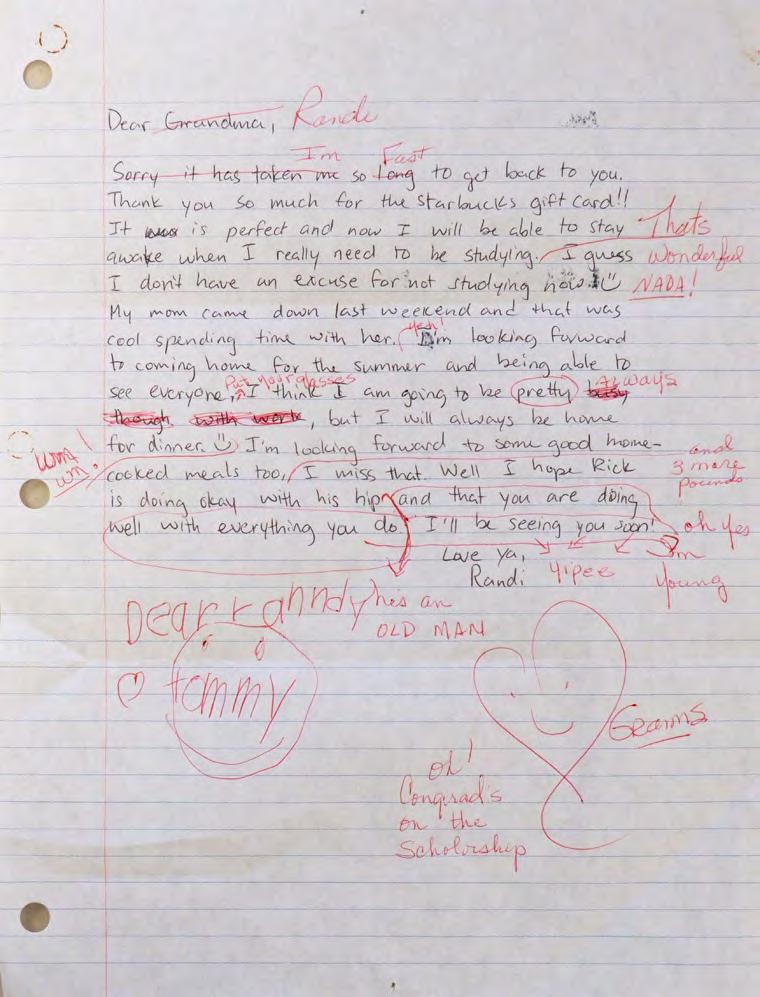

ARTHUR AU
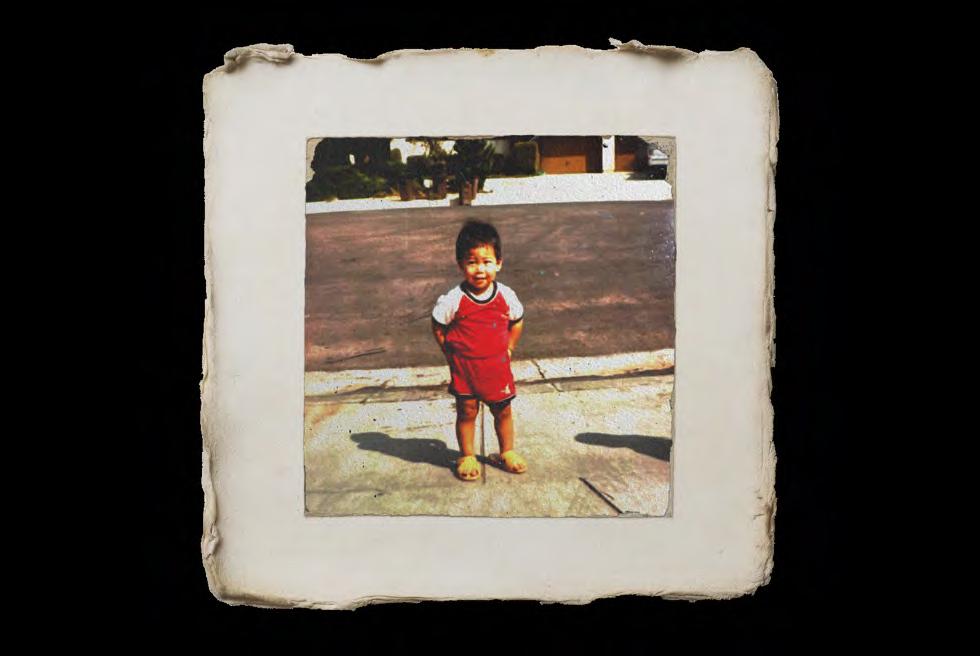
My name is Arthur Au. My given Chinese name is 欧安信 (Au Ān-sìn). I was born in 1985, the first son of Taiwanese immigrants.
My parents brought me up speaking Taiwanese at home so I could communicate with my grandmother. By 1987, my nuclear family consisted of my 阿媽 (paternal grandma),爸爸 (dad), 媽媽 (mom) and弟弟 (younger brother). I have fond memories growing up in my grandma’s house in Alhambra. I watched my grandma pay attention to details and aesthetic – sewing, mending and tailoring clothes. I saw my dad juggling responsibilities, working full-time while attending night school. I saw my mom cleaning, cooking, and taking care of us. When I was about to turn five, we moved out of my grandma’s house into my parent’s new home in Covina.
In Taiwanese, I was frequently called koai gín-á for being a good and obedient child. I was polite and well-behaved in public; gentle and kind to my younger brother. I felt special whenever people praised me for my good behavior. It deeply formed me, and I learned to keep following rules and not cause any trouble.
On Sundays, I went to church. My family attended Evangelical Formosan Church of Los Angeles (EFCLA), where many other 1st and 1.5 generation Taiwanese families gathered for faith and community. I attended Sunday school, children’s choir and learned all the stories in the Bible – who Jesus is, and that God loves me. My dad also volunteered in Children’s Ministry while I was in it. Values for faith and family have always played an important role in my life, and I’m grateful for my mom and dad.
I knew I was ‘gay’ from a very young age. I didn’t have the exact word to call it, but I knew I was different, or special. I kissed a boy on the cheek in my 2nd grade class. But as care-free and out-going as I started, I slowly pulled back when I experienced bullying. I was made fun of for my mannerisms, for running “like a girl” and the way I talked. I always felt safe and comfortable being with girls and didn’t share much of the same interests with other boys. When I heard kids make gay jokes, or say “that’s so gay”, etc. I thought something was wrong with me that needed to be fixed. I also thought to myself, “Hey, I’m a Christian; I’m not gay”. Finding belonging and connection with all the complex aspects of my identity was challenging. Throughout my teenage years, I was reserved, shy, and kept my thoughts and feelings to myself. No one must know. “I’m ok… no problem… I’m alright.” But I loved the piano. It was a sanctuary and a way for me to escape and relieve stress.

The summer after graduation, I moved back home and eventually found a full-time job as a R&D Lab technician. I actively served at my home church’s English ministry, Harvest LA and played piano for the worship team. It was a good season of my life where I felt connected and found joy in serving at the church. I was content and happy with my job and life. In 2010, I decided to go forward with a five-year medical school program in China. I was surprised at how my parents blessed me to go, and I had enough savings to cover the first few years there. Looking back, I sensed God leading me to go to China, but it wasn’t for the reason of becoming a doctor. This was my first time studying far away from home.
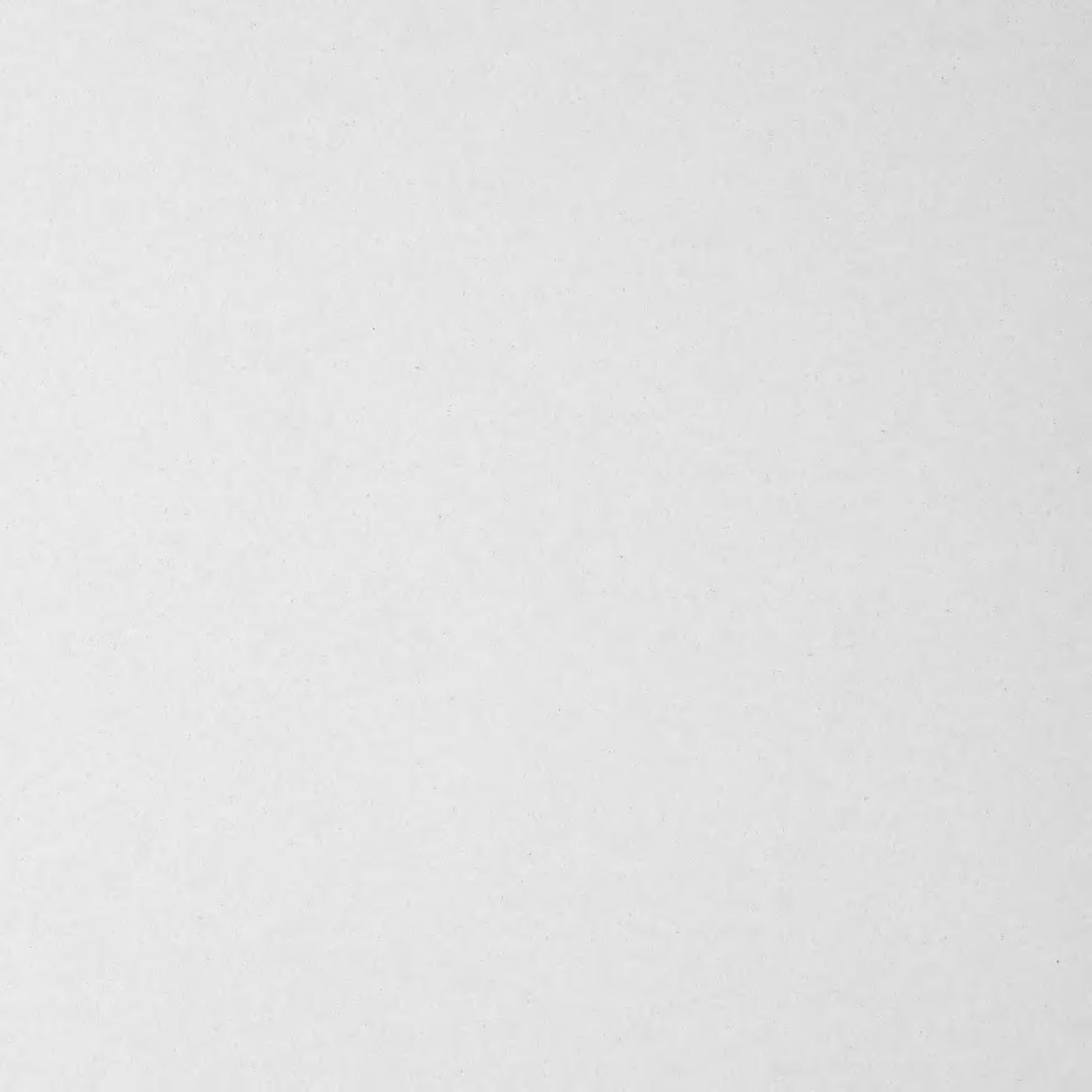
In 2003, I went to college at UC Riverside. In my 4th year, I discovered alcohol. “Fun drunk” Arthur could once again be that care-free person. I didn’t have to worry or stress out any more about what people thought of me. I got used to balancing so many things that it felt like I was living two lives – church Arthur and fun Arthur. I purposely kept them separate.
By the grace of God, in May 2007, I was given a wakeup call that changed my plans for my 5th year. The promotion as a student Assistant Resident Director that I was looking forward to was withdrawn because of an unfortunate situation involving drinking while on duty. But even through the loss and disappointment, I somehow knew everything was going to work out because God was watching out for me.
The experience expanded my worldview, and I got the privilege of meeting different people from across the world. After my four years in China, I finished my 5th year back in the US hospital system, where I did my clinical rotations in Phoenix, Arizona. It was a grueling and difficult year, but also a very special one for me to experience a level of vulnerability and intimacy that I had never experienced before through a small group with Harvest Bible Chapel. I knew I only had one year there, so three friends and I dove in, connecting deeply with purpose and intention. (Looking back, I could have also come out to this group, but I wasn’t ready.) God took me on a journey to prepare me for my coming out journey. The Lord needed to teach and show me that my identity wasn’t in my career, my test scores, or my reputation, but simply that I am a child of God. I carried the weight of expectations – from my family, my friends and even my church community. I wasn’t afraid of letting myself down, but I was terrified of letting others down.
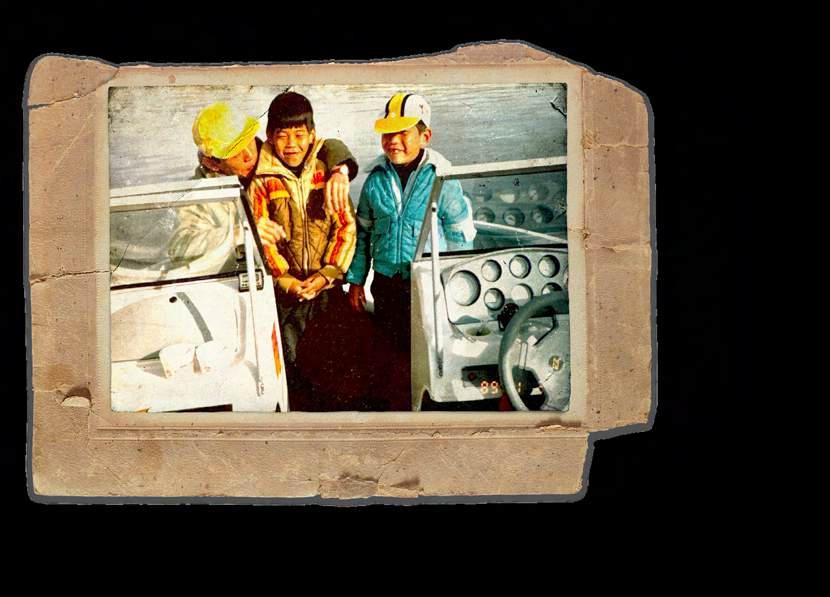
In 2018, my college friend called me up one day to share about his dating relationships and heartaches. He asked me, “Do you ever get lonely?” That was the question that finally started the conversation about sexuality. I came out to my mom and dad shortly after. During this time, my parents knew something was weighing on my heart. I knew on my end that my parents needed to hear from me that I was still a Christian who loves God. I heard from my parents what I needed from them: I was still their son, and they still loved me. My parents asked me to give them time to process, and out of honor and respect, I did. After three months, I felt the Holy Spirit prompting me to write a letter to the church. After I seeing my thoughts written down on paper, coming out felt much more real. I shared the letter with my church family in early 2019 while leading worship on a Sunday morning.
For my child-self: my nuclear and extended family who raised me and loved me. Who allowed me to enjoy being a kid, feel happy, carefree, safe and protected.
For my college-self: my biology major friends who I studied with, my mentor and staff that I trained with, ate with, and celebrated with, my small groups that I prayed and worshipped with.
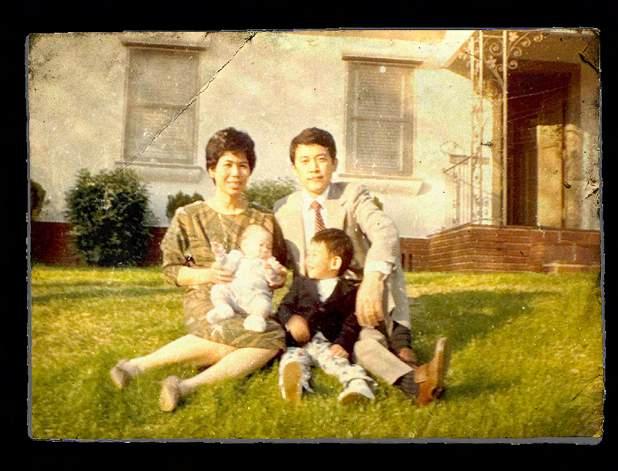
For my 25-year-old self in China: my friends that I found to be like family away from home, as we ate, studied, exercised, shopped, partied, and did ministry with.
For my 29-year-old self in Arizona: my roommate and small group that taught me what community is and how to live out having Jesus be the center. It has been the physicians that trained me and the medical students that encouraged and helped me succeed.
For my 30-year-old self: EFCLA and Harvest LA as I returned to ministry, leading worship, a small group, and being a deacon. My Friday night fellowship group who walked with me as I engaged in conversations about sexuality.
For my 34-year-old self: Evergreen Baptist Church of Los Angeles, (EBCLA), The Open Door, my home group, and the Worship Arts and Tech Ministry. All sacred spaces for me to find queer Christians and allies who support and encourage me to live authentically.
Alexander Shippee, for his love and commitment to build a life with me. I’m excited for what chosen family looks like in this next season.


Dear friends and family,
The Lord has more strongly placed in my heart something that I’ve been wanting to share with you this past year. But every time when I thought I found the courage to speak, that courage dissipates, and fear takes over and leads me to “carry on”. But Jesus is gently speaking to me to walk with Him, to take it step by step, and not worry about what’s to come. My hands are shaking and my body trembles while I put my thoughts into words. (I’m listening to “Just a Little Longer” by Bethel Music on repeat while writing this). I came out to my parents last November. I told them that ever since I was little, I knew I was different; that I’m attracted to guys and not girls. It’s been over 3 months now.
For the longest time, I’ve felt stuck. And I think the devil likes it that I’m stuckthat I’m not moving at all. But my faith continues to grow closer to Jesus, to know Him intimately as Lord, Savior, dear Friend. He knows my pain, my struggles, my heartaches and my tears and He never ceases to surprise me.
Going back 3 years ago, some of you heard this testimony, but I was in a car accident during my time in Arizona. I was one rotation away from completing my clinical training before going back to China to take my graduation exam, when I got in a car accident. I was driving under the influence one night and wrecked my car. I dosed off, went over an island, flattened a sign, ran over like 3 hedges, and woke up in time to swerve the car from hitting a palm tree. By the grace of God, I’m alive today and no one was hurt. I’ve struggle with alcohol before- but what I thought I had overcome, came back again that moment. Since then, one of my prayers that I pray is how can God use me.
Fast forward, I’m a worship leader, I’m a deacon, I’m serving and I’m investing in this community- this extension of family.
Two years ago, Harvest LA had a fall retreat where we shared and practiced prophesying words to each other. If you still remember, at the time I shared my decision to not pursue medicine anymore, and how hard that was but I knew was a right one, because there was peace in the decision. God was and is still reminding me every day that my identity is in Him alone. That I am a child of God. That my identity was not whether I became a doctor. And that my time in China and Arizona studying medicine was not a waste.
My community in Arizona was a very special one and dear to my heart. Thinking back, I could have shared this struggle- my battle with same sex attraction with them, but I was in a different place. Being a medical student was my priority, so it probably had no reason to come up. And God truly has a time for everything.
I’m now in my 30s and working full time, and what I thought was not a big thing, is and now has become a big deal. If you were there at Elder Sheila’s Suicide Prevention talk last year- this is my “perfectly packaged box with a nice bowtie” inside of me. My perfectly wrapped package that hides my secret is now being tossed around. It gets tossed around whenever someone asks me if I have girlfriend- even though I know they are asking out of love. A few weeks ago, our Adult Life Group followed up with Eddie’s part two on Song of Songs and to me, I
thought to myself- how can a simple and innocent question “when and who was your first crush” make me feel less of a man. To answer that question honestly and say that my first crush was in the 2nd grade, on a boy named Rudy with curly black hair, would reveal my dark and deepest secret- my sexual brokenness-my same sex attraction. But I feel the Spirit tugging me, gently whispering that it’s okay. And so, I’m slowly unraveling and unwrapping it.
When I told my parents back in November, there were tears, there was shock and confusion, there was a tear in hopes and dreams. A small part always feared that they will no longer love me or disown me as their son. But they expressed to me that they still loved me the same and that I am still their son. I was ready to tell everyone last year, but my parents asked me to give them some time. I agreed, after all, what took me about 25 years to process and reconcile, I couldn’t possibly ask them to process and reconcile within 25 minutes. (and I’m still processing to date)
My decision to share this real and deeply personal struggle doesn’t mean that I decided on anything- to find that special someone (whatever that special means) or to stay single. But it’s a decision to move rather than feel stuck. I’m simply taking it step by step with Jesus. Before I’ve shared with the 2018 EFC winter retreat worship team and my fellowship vaguely and generally; what God has been teaching me. How I believe God wants to show me how to embrace brokenness in context of community, how to honor my parents and church leaders, and how to trust in Him and take steps one at a time with courage and boldness. I know a big part of this journey I will have to walk alone. And I don’t know if this “thorn on my side” will be taken away, if this cup be passed from me, if this storm will pass, or how change looks like, but I know holiness is Christ in me, and right now, all He is asking of me is to take a walk with Him. How the future looks, I don’t know but I am battling fear with vulnerability and authenticity. And my heart goes out to the LGBTQ community. It’s amazing that whenever I come before God, all shame and fear falls away and I simply enjoy His presence.
The position of a worship leader is to lead God’s people in a place of worship, to facilitate a meeting place with Abba Father. Whenever I worship, I’ve either worshiped and shouted songs in victory or I’ve cried out songs as a lifeline. Is it ok that we start worshipping this morning in song?
Whether you sing these songs in a place of victory or sing these songs as a lifeline for whatever current situation you’re in. Let us give glory all to Jesus. Let’s pray.
Abba Father, thank You that you have a story for each of us, for everyone here, for every outside this church building. You don’t control us to worship You, but you establish a relationship with us. Yes, we love talking about You. We tell the world who You are, but we also relate with You. And You are pleased whenever we share how our stories are entwined with Yours- How You redeem us and how You pick us up. Amen.


" orange silce."

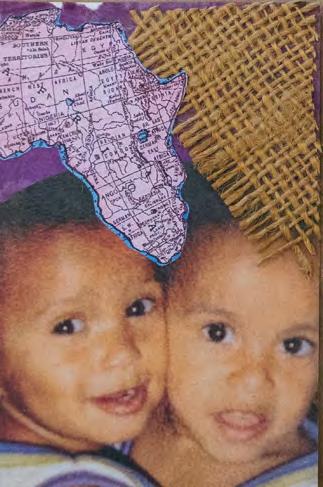
" music for a moment."




-Kyle




"Crying



"More than what I bargained for" Randi Brydon

"Know her"
Kennah Brydon




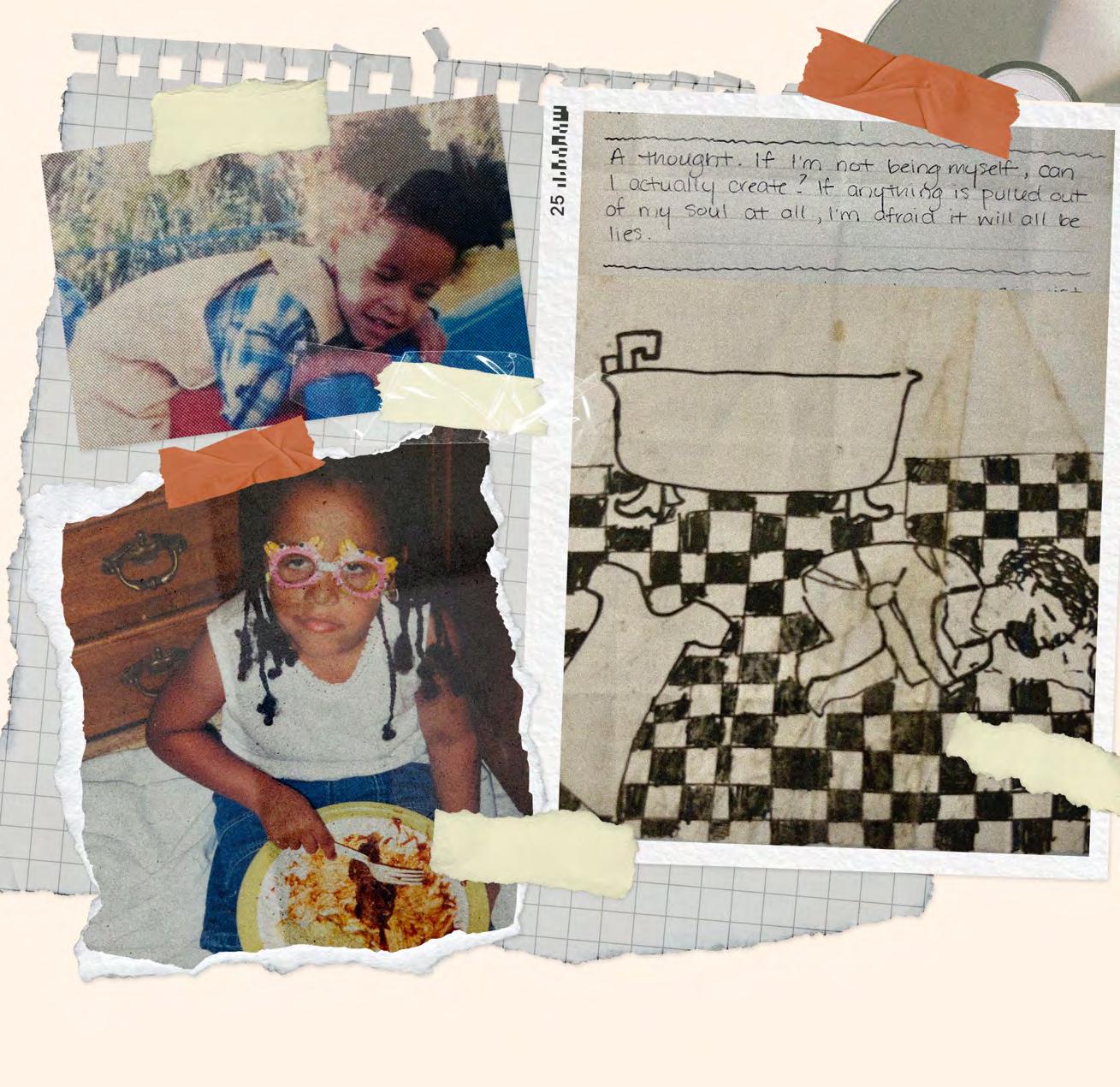
I’ve been weird and felt othered since forever. I think I’ve always liked it this way, though.

Senior year of high school, I finally found the language to describe what I had been feeling.

A inspireddrawing by a song by my favorite band. My emotionsdarkmade me feel alive.



Featured: my mom’s commentary/em- phasis after she read through all the journals I had kept over seven years.

I fell in love for the first time and started writing songs.




A song I wrote for a Fuller integration class after just moving to California. My secret was ready to spill out of me. I was miserable.
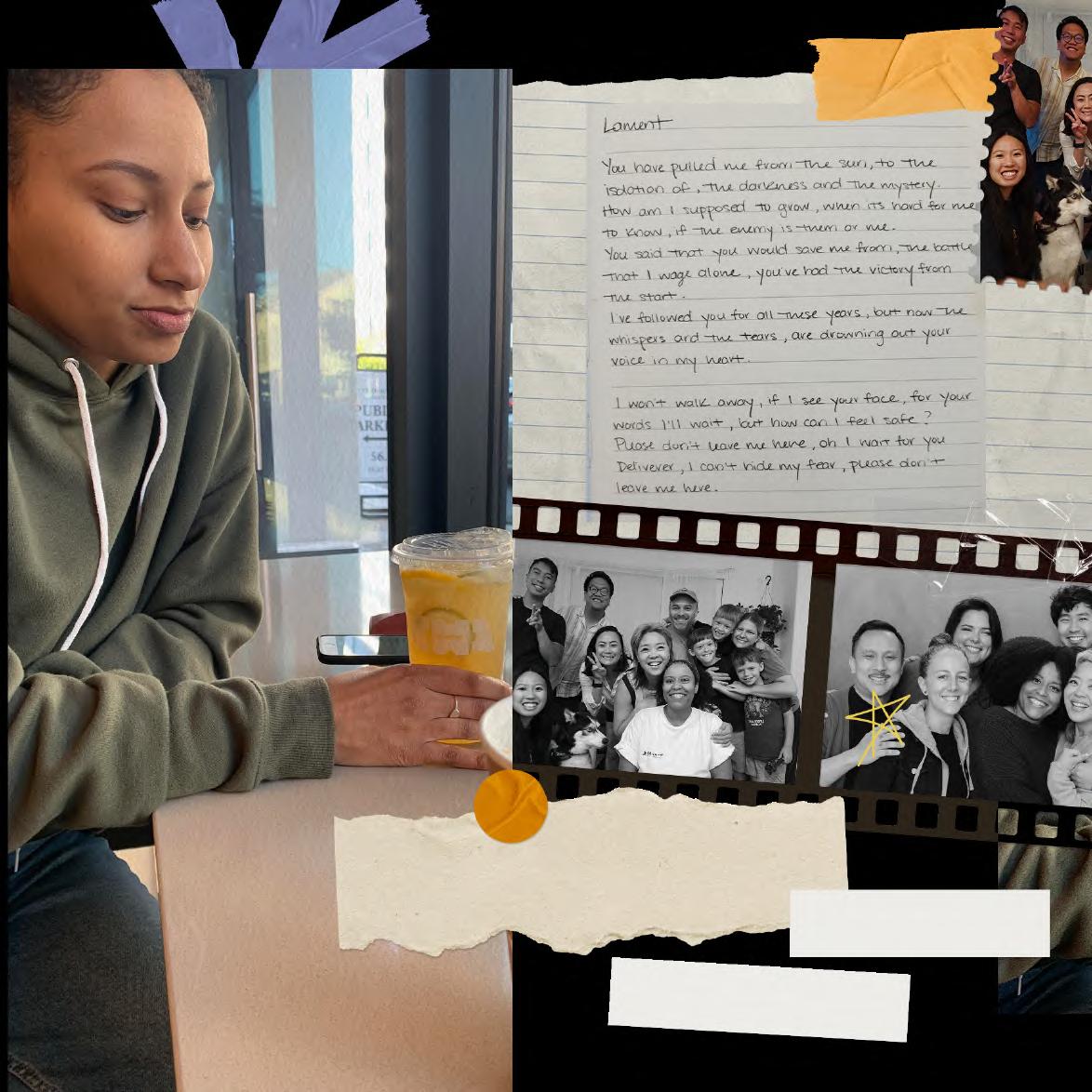
December 2019. My sister the day after I came out to her. I was full of dread and terrified of the uncertainty of what our relationship would like after this.
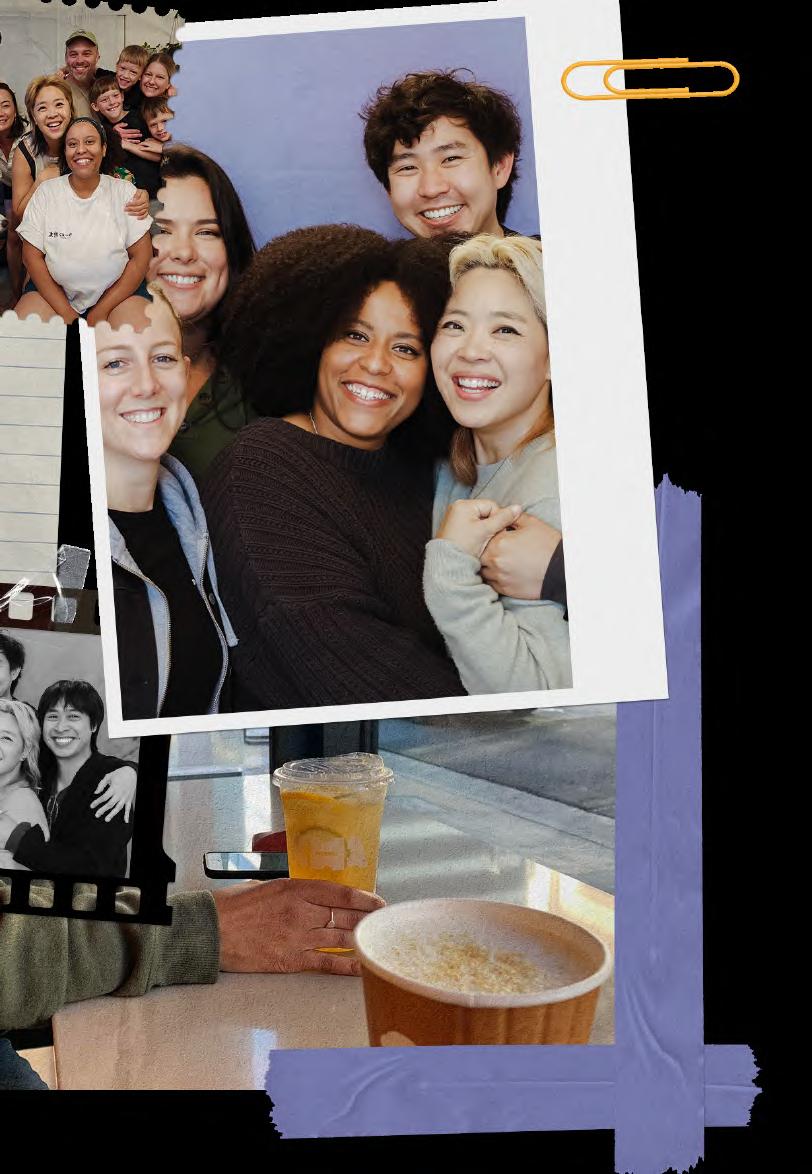
The family I’ve chosen. I didn’t have to choose faith over love, calling over identity, one future or the other.

Written by Alex Shippee

The inner courtyard is beautiful
The orange tree in one corner
The pomegranate in the other Papi always spends so much time here
In the mesadoras smiling
Or busy pruning and caring
All the rooms surround the courtyard.
The roof points inward to bring in the rain
Jandro is always out in the field.
He likes to talk with papi on the bridge
Between the house and the fields
But I think Dad likes to talk here
In his garden and not the fields
Today Papi is tending the oranges
They are beautiful. Bright and ripe
The juiciest of oranges.
They are unlike any other ones
Papi finally takes a break and sits on the ledge by the orange tree.
He pulls out his snack.
Bread and Jamaica
Hi Papi, I say.
Mijo, come sit. Here, take some pan
I haven’t eaten, but I’m not hungry. It’s the nerves. But I won’t turn down pan
Thanks, Papi.
Claro, Mijo.
Aren’t the oranges beautiful, Mijo?
They do look good, I say
You must be proud
Yes, well, they are just fruit trees, Mijo.
But I hope they taste as good as they look.
Papi, I say hesitatingly.
Si, Mijo.
I need to talk to you.
About what? He says.
Papi, I’m not a farmer. I let out Hanging my head low. Jandro
Has always been so good at harvests
He works so hard all the time.
It’s why he’s hardly ever at home.
But I’ve never had a good harvest
I’ve only grown a few vegetables,
But they are nothing like the wheat harvests
And I’ve tried, Papi. The classes, different fertilizers, new farming techniques
But I’m disappointed because it feels like Papi, you’ve wasted your investment.
I’m not a farmer. I’ve tried.
And I’ve heard of others
Those who struggle with farming
They shout and demand the money
They leave and come back humbled
But I don’t want your money, Papi
I’m just dissatisfied with home
Because it feels like I don’t fit
Farming is the family business
And I just can’t get it to work.
I pause. To let it sink in. And my thoughts take over.
People in town are starting to ask questions
Your father has such a beautiful farm.
When will you start your own field?
I just smile. Soon. I say.
But they don’t know how I’ve tried
To the point where bitter roots
Have grown up where I tried to grow
Reminders of my inadequacy, deficiency
But I’ve been talking with people
Reading some books
I’ve been doing some thinking
Rocking in the mesadoras
And I need to be honest
Honest that I think farming is great
That it blesses a lot of people
But I just suck at farming. And I need to ask what Papi wants to do with me
When he has a son who can’t farm.
Who doesn’t fit into the family plan
It’s been this way for generations
The weight of legacy is crushing
As effort fails.
I am back in the courtyard.
I’m really sorry Papi.
I know you just tolerate me
Jandro does so well.

He’s always out in the field.
But I can’t grow a tomato to save my life.
I’m sorry Papi that I’m not a good son
I lose it. I can’t look him in the face.
What a disgrace to have a son like me
Papi puts his arms around me
It has been so hard to reach this point
So hard to finally be honest with myself
So hard to admit that I’m not Jandro and all his perfection. There’s been many a tearful night
Learning to have enough compassion to tell myself that not being a farmer is hard.
This is painful.
But the pretending is what’s unbearable
But Papi still doesn’t say anything.
And I feel torn. Between wanting to make him proud and being honest.
To have disappointed him.
After all he’s given me.
Shh, Mijo I’m here.
I wouldn’t want any other son
It is so hard to believe his words
The narrative is so clear
Good sons are farmers
But he says it again.
“I wouldn’t want any other son.”
“I’m so sorry, Papi.
I really love you. And I’m grateful.
But Papi, I am just sad I couldn’t be who you wanted me to.
“Mijo, listen to me. I don’t want any other son.”
Thanks, Papi, I say finally lifting my face.
But I just don’t know what to do.
Farming is the family business.
But I’m dissatisfied with home.
I want to see what’s out there.
What’s out in the far country
But everyone has told me
There’s no place like home.
There is no place like home, Mijo. But the beautiful thing about children Is that you grow with them.
They are not servants you order and just push around They are people with wills and choices
And I would rather sit here and talk than Have you believe I wanted a servant
Yeah, Papi, I both want to leave
To see what’s out there, but I also don’t want to lose you.
But Mijo, you’re not losing me. I don’t want any other son.
And I’ve known for a long time That you’re not a farmer. This isn’t a surprise.
Do you remember the peach tree?
I laugh. How could I forget?
You put so much effort and care
You prepared the ground, put in the nutrients. gave it the post to steady it.
You were honest about how hard it was. And you had a few beautiful, tasty peaches
But it was for a season.
And I liked your peach tree.
But more, I’m so grateful for your honesty to try it out.
See, Mijo, if I was out for just the fruit and profits of harvests, I would always be out there with Jandro.
I would only grow wheat
That’s where the money is.

But I want you to look at the orange tree, Mijo, look at the beautiful fruit. we are not going to make money off this Sometimes there are beautiful things That aren’t about results. They are gifts.
He pulls off an orange and start to peel it. Here, take some, Mijo. This one is ready. Thanks, Papi.
We quietly enjoy the juicy orange. There are no oranges like the ones from home.
So what do we do, Papi?
I don’t want to shame you in the village He laughs, “Oh Mijo, how could honesty bring me shame. Shame is about hiding. And here you are being honest. That is bravery, not shame.
Maybe they won’t see that in the village. But I want an honest son.”
I am surprised. There is no chiding No disappointment. No shutting me down No telling me to get in line.
When I feel like I know Papi, Things shift, and I come to learn more
“Papi, is this right? To go?”
He takes a deep breath. “You know, mijo I don’t know.
Do I think it’s important? Yes.
Do I think you should go? I don’t think it’s a question of should or should not. Or can or cannot.
It is a question of how we relate around the question.

“Yeah, Papi, I need wisdom. This is all new. I need your help knowing where I fit.
“Oh Mijo, remember I am generous. We will figure this out together. And you must tell me what you find in the far country. Because through it we will find your role in the house. And know Mijo that I will meet you out there. I won’t leave you as an orphan. But also be sure to come home for the holidays. We must celebrate.” He says smiling
I embrace Papi. Out of a deep gratitude for who he is. That he is not harsh.
Jandro can be harsh. But it’s good Papi isn’t.
“Papi, I love you. And not because you say go, but because you actually care about me.
“Ay, mi corazon, my love for you has not changed. I’m grateful and proud that you are my son. That you want me to be a part of this process.
And don’t worry, we’ll find where you fit.”
He tussles my hair. “Oh, and necesitas las naranjas. Here. He starts to pick. Soon a backpack full is next to me. Mijo, be sure to giveto anyone who asks. Freely, you have received, freely give.
And eat them as a reminder of home.
“Thanks, Papi.” I bow my forehead to his hand. The traditional sign of respect.
He kisses the top of my head.
“Here Mijo, take the last piece of pan.”
My hunger comes back in full.
“Thanks Papi,” as I go to town on it.


"Adama & Eve"



"Peacing it together"
- Alex Shippee







"FOUND HAPPINESS" -Arthur



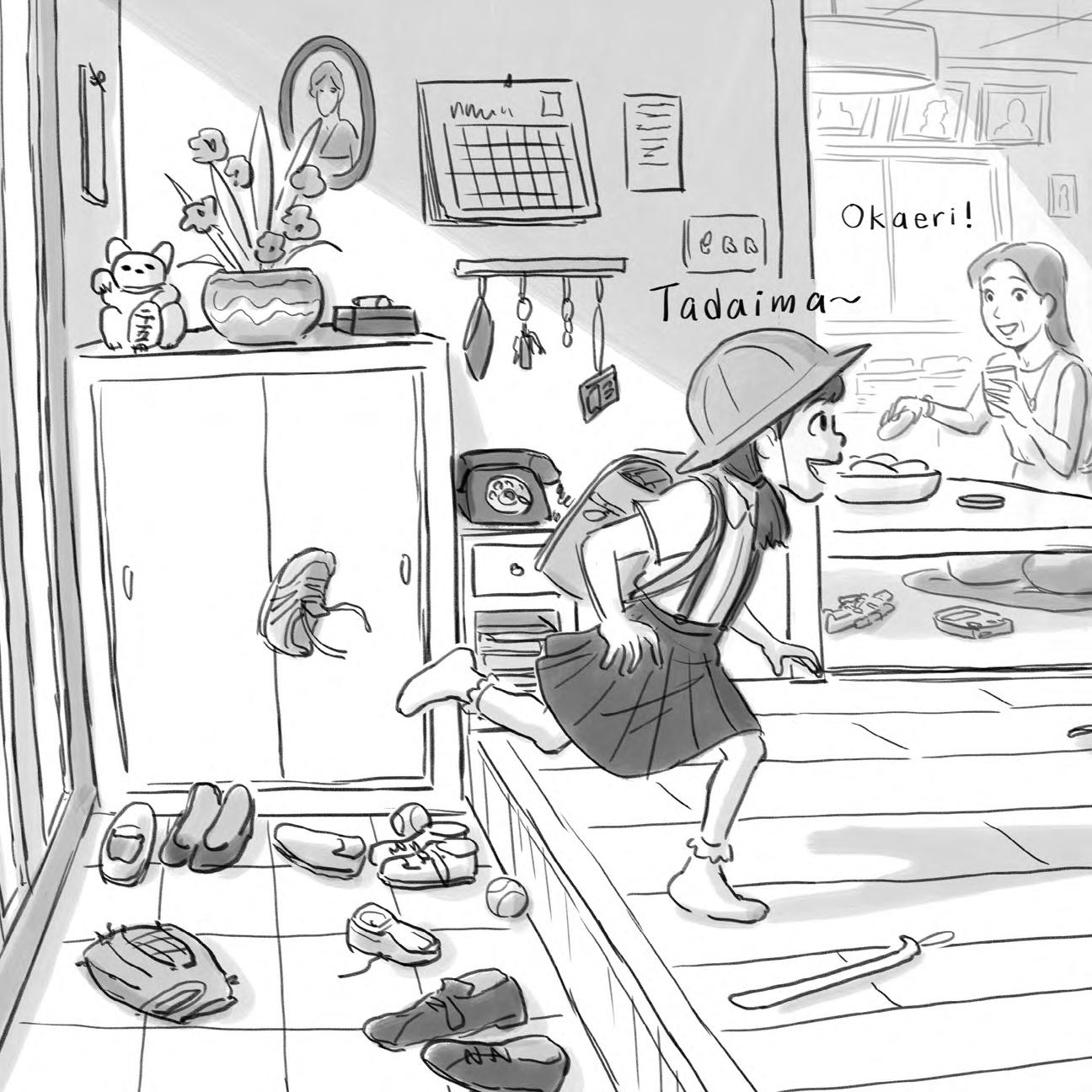

Written by Marian Sunabe
Artwork by Kenji Ono
If you have watched a J-drama (Japanese drama), you are undoubtedly familiar with the scene of a child, even an adult child, returning home after a day at school or work. As they enter the house, they call out “tadaima!” (“I’m home!”) and whoever is in the house, usually a parent, replies “ okaeri!” or “welcome home”. These two lovely phrases, tadaima and okaeri, are used daily in households throughout Japan, and have the connotations of “I’ve safely returned home” (for tadaima) and “you’ve finally come home; I have been waiting for you” (for okaeri) suggesting that someone has been fervently hoping for your safe return. I’m always moved by the loving sentiment implied in these greetings.
Is there ever a time you would not be glad that your child, or any family member, has returned home safely? Is there ever a time when you would not be glad to be welcomed home warmly?
I’ve facilitated The Open Door Parent Support Group for about seven years now, hosting dialogues with mothers and fathers who have LGBTQ young adult children, and who come from conservative Christian backgrounds themselves. While every parent’s story is a bit different, they all share an unwavering love for both their queer child and for Christ. You can imagine what angst and emotional struggle is felt by caring parents who find themselves in that place! If I’m devoted to one, am I betraying the other? How do I reconcile the two and find peace in my heart and in my family? I don’t have easy answers for anyone, but am willing to walk alongside the parents as they explore their own answers and as they provide emotional support and wise advice to one another as well.
The question “What would you like to tell your child?” was recently posed to the group, and I was deeply moved by the responses these parents shared (reprinted here with permission).
One mother, Gloria, recently saw her child marry, and has devoted herself to learning how to best support and embrace her daughter and her new wife.
“We want you to know that we love you unconditionally, just like Jesus loves us all unconditionally. We are sorry if there were any comments that we made in the past that were negative toward LGBTQ people…there is so much for us yet to learn, and we promise to listen and to be there for you. We’ve been on a journey together,
of you coming out first to us, then to family and friends. It’s been difficult at times, but God is with us and will continue to watch over us. We support you and your wife; we are family, and we will overcome any obstacles together as we abide in Jesus and put our trust in Him. We love you very much and will continue to love and support you!”
Nancy, who is many years into the journey with her daughter, articulates the sense of relief that comes when healing and reconciliation occur. It has been a tough, exhausting struggle at times, but she and her daughter have made tremendous strides. She knows what a conversation with her daughter would be like, as she now has many of them on a regular basis.
“It has been 15 years since my daughter came out to me. I was a conservative Christian who learned in church that being gay was a bad thing. God has been providing me lots of learning experiences, including through The Open Door Parents’ support group, which I’ve attended for the past three years. I learned to love my daughter in a way she deeply needed. We’ve had many hard, honest conversations, and we now have a great relationship. So, I envision our talk to be over a lunch together as we both chat about our lives. She would tell me about her latest adventures with her group of gay friends— picnics in the park, camping, playing pickleball. I would share with her about my church activities, trying new recipes, and game night with my friends. The ability to have this relaxed and “normal” interaction with my daughter is God’s priceless blessing to us both and to our family. As a result of our long journey together, I can continue to express my love for her while also learning new ways to love her as a gay woman now in her 30’s.”
Wayne, a dad who has attended the support group from the very beginning, acknowledges the pain his child has experienced in Christian environments over the years. Queer Christians often find themselves “spiritually homeless”, with many giving up the search for a safe and affirming church after being repeatedly subjected to small microaggressions, dismissive or outright condemning attitudes—essentially being eradicated by a thousand tiny cuts from their spiritual communities.
“Son, it has now been over 10 years since you came out to us. Though that seems to be a long time, there is still much we don’t understand, or perhaps more accurately, many areas we regret we are still insensitive to. Please feel free to share your heart with us, so that we can be better parents.
“I know you are not attending church right now. We can understand your position, with all the hurt and pain you’ve suffered over the years due to the hypocrisy and injustice in churches. Yet we see that God is doing miracles in your life. We pray that you will someday find forgiveness in your heart…and we pray that you will find a group of believers who will support and nourish you and love you for who you are. Bring glory to God and this will be our biggest joy!”
For Melanie, this exercise was particularly poignant, as she has been out of communication with her daughter for quite some time. Her words speak to that truth that our children have the power to try our patience, or even break our hearts, but they don’t have the power to stop us from loving them. M.Y. poetically composed her wishes for an “uninterrupted hour” with her child:
“If I could sit with you for an uninterrupted hour, I would listen deeply to how agonizingly hard and painful it must have been to live up to Christian expectations, all the while hiding who you really were. I would apologize for the hurt and harm I caused you by silently accepting what was preached about same sex relationships and for not speaking up for those in the LGBTQ+ community. I would apologize for first telling you that “I love you no matter what” when you came out, yet later telling you that I would probably not attend your wedding with another woman. I would apologize for letting fear and other voices influence me in telling you something so hurtful and untrue.
“If I could sit with you for an uninterrupted hour, I would tell you that I would most definitely attend your wedding with another woman. I would not only attend it, but I would happily celebrate your life for who you truly are! I would happily celebrate both of you and your life together.
“If I could sit with you for an hour, I would tell you that I love you unconditionally, more than you can imagine and more than I can adequately communicate. I would tell you that my greatest heartbreak is your greatest heartbreak of not feeling loved and accepted unconditionally for all of who you are. I would tell you that my regret cuts deeper knowing that I contributed to your heartbreak. I would tell you that I now know that hurt and harm occurs whether intended or not.
“If I could sit with you for an uninterrupted hour, I would tell you that I stand beside you, not only as your mom but as an ally. I would tell you what I am doing to make our family, communities, and world a safer and more inclusive place for you—a place where you would feel unconditionally loved and accepted. A place where you feel you belong.
“If I could sit with you for an uninterrupted hour, I would tell you that my greatest hope is for our relationship to be repaired—to be full of open communication and honesty, even with the difficult things. My hope is for our relationship to be filled with understanding and support, learning and growth. My hope is for a relationship where we can enjoy life’s experiences with each other and laugh together again. A relationship where you know deep in your heart that I truly love and accept you, unconditionally and always.”
For all of these parents, they wait to hear that “tadaima” so they can answer with a full throated and heartfelt “okaeri …I have been eagerly longing to welcome you back home.”
Bone of my bone and flesh of my flesh
What could separate my child from my love?
Is there anything my child could do that would diminish my love for them?
If they committed a crime
If they ran away
If they took up with the “wrong“ people
Would that be unforgivable?
If they came out as gay
If they came out as trans
If they wanted to change their name, or pronouns, or body
Would that cross the line?
If they turned away from Christianity
And became Buddhist or Hindu or Muslim or atheist
If they said I don’t love you anymore
And moved far away
And never answered my calls, texts, or letters
Would that mean I could no longer go on loving them?
Bone of my bone and flesh of my flesh
Nothing can ever separate you from my love.
Written by Nicola Patton
Mine was an individualistic upbringing and is an independence-driven, rule-based culture.
I was taught to revere family but also be wary of extended family members.
To love them but not necessarily trust them.
To hold the nuclear family close but not share everything with them.
I was taught rules over rest, perfection over play.
I was taught to listen to higher authorities without question and to guard myself around anyone outside our circle.
I was told, “No one but your family will tell you the truth.”
I was told, “Your family knows you better than you know yourself.”
Blood is thicker than water.
But what I’ve learned is that the full saying actually says the opposite:
The blood of the covenant is thicker than the water of the womb.
So a covenant supersedes biology.
I realized that the chosen family, the covenantal family, can be deeper and more meaningful than family of origin.
There is something to be said for familial obligation.
The Old Testament is full of laws and stories meant to remind the people to take care of their own.
But there are also a great number of passages that refer to the foreigner and the neighbor, the poor and the vulnerable. These are to be treated as family as well.
We could spend a lifetime just studying those passages and never be finished.
The striking ones are the stories of David and Jonathan, and Ruth and Naomi.
David and Jonathan are technically family: David married into Jonathan’s family, likely for political reasons that we won’t go into here. There is no description of how David and
Jonathan form an attachment so much is left to the imagination. It grows deep enough, however, that Jonathan is willing to undermine his father’s orders, King Saul, the first king of Israel. Jonathan not only stands up for David during one of his father’s rampages, but he also warns David and helps him escape. It’s during one of their final recorded scenes that we see the depth to which their connection has gone. Jonathan says to David,
“May the Lord seek out the enemies of David.” Jonathan made David swear again by his love for him, for he loved him as he loved his own life (1 Sam 20:16-17).
Later Jonathan confirms the worst: King Saul is out for blood. David has been waiting for the signal and we witness their final farewell:
As soon as the boy had gone, David rose from beside the stone heap and prostrated himself with his face to the ground. He bowed three times, and they kissed each other and wept with each other; David wept the more.
Then Jonathan said to David, “Go in peace, since both of us have sworn in the name of the Lord, saying, ‘The Lord shall be between me and you and between my descendants and your descendants forever.’” (1 Sam 20:41-42).
On learning of his death, David’s final tribute to Jonathan sums up their relationship:
I am distressed for you, my brother Jonathan; greatly beloved were you to me; your love to me was wonderful, passing the love of women. (2 Sam 2:26)
Ruth and Naomi are also technically family: Ruth is Naomi’s daughter-in-law. Naomi sought a way out of their country’s famine and moved to Moab with her two sons and husband. The sons later marry Moabite women, one of them being Ruth. The men of the family die and the women are left to fend for themselves so Naomi has no real choice but to return to the country of her kin and she advises her daughters-in-law to do the same. Ruth, however, will not be parted from Naomi. There is a bond between them that is stronger than marriage ties or children or countries of origin.
“Do not press me to leave you, to turn back from following you! Where you go, I will go; where you lodge, I will lodge; your people shall be my people and your God my God. Where you die, I will die, and there will I be buried. May the Lord do thus to me, and more as well, if even death parts me from you!” (Ruth 1:16-17)
Ruth insists on accompanying Naomi back to Israel and takes it upon herself to provide for them both under Naomi’s instructions. Everything Ruth does is out of survival, but also out of love for Naomi: she gathers what she can to get enough food for them both, operating in a foreign country with different customs and traditions; she places herself at the mercy of Boaz, again, a foreign man in a foreign country. She secures herself a marriage proposal and then a child - all the while taking the advice of her mother-in-law.
Family is messy. Complicated. Traumatic. Exacting. Family comes with history and generational trauma and cultural narratives and inherited griefs.
Family comes with memories. Birthdays. Holidays. Traditions. Family comes with inside jokes and exaggerated stories, with quirks and shared mannerisms and familiar safety.
Each story from the biblical text has a different ending and the characters give us much to chew on. But what strikes me is that they could easily have chosen different paths - taking the sides of their families of origin, listening blindly to those who supposedly had their best interests at heart, doing what was expected of them, what was easier.
Perhaps they could have stuck with what was familiar, what was known, even if it wasn’t what they really wanted. Perhaps that would have felt secure.
The characters made bold choices. Committing to another person who is not a blood relative creates a new family. That was a choice each of them made in a covenantal way.
I’ve found that finding that chosen family is not immediate, it’s not easy, and it’s certainly not without heartache.
But I’ve also found the safety of being known by those who have proven themselves to be trustworthy, regardless of our blood connection.
These are people who laugh until you’re all crying and sit quietly, not talking to nervously fill up the air.
These are the people who fall asleep on your couch and aren’t afraid to tell you when to go home because they’re tired.
These are people who show up when it matters.
Those who drive 30 minutes just to tell you you’re loved and safe, exactly as you are.
Those who drop everything to help you birth your child and go without sleep so you can.
These are the people who don’t bat an eye when you tell them something shocking, some deep secret you’ve held onto for years.
The kind of people who remember the mundane things about your life and are genuinely interested in the things that drive you - even if they don’t understand.
They are the kind of people who will not only put themselves in harms’ way but will take on your own family of origin, defending you and praising you to them so you don’t have to.
They are your greatest cheerleaders, your fiercest critics (because they do tell you the truth), and your anchors.
And I think these kinds of stories remain in the Bible for us to remember that blood can be shared through the umbilical cord or decided in covenant; water can be passed on in the womb or given in solidarity. Blood can give life or signal death. Water can both drown you and nourish you. But when we make a covenant of family, blood and water combined to make the strongest kind of bond.
This is a chosen family.

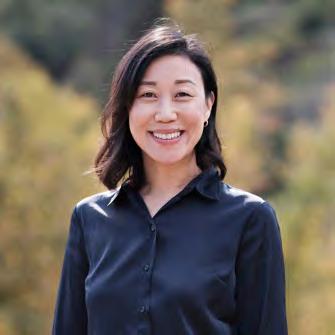
By Janette H. Ok

Janette H. Ok is Associate Professor of New Testament at Fuller Seminary and an ordained pastor at Ekko Church in Anaheim, California. Her research interests include 1 Peter, 1–3 John, the Catholic Epistles, and the formation of early Christian identity, with an emphasis on Asian American, intersectional, feminist, and social-scientific approaches to biblical interpretation. She is the author of Constructing Ethnic Identity in 1 Peter: Who You Are No Longer (2021) and coeditor of The New Testament in Color: A Multiethnic Bible Commentary (2024). Currently, she is writing a commentary on the letters of John and a book on reading the New Testament as Asian Americans. Janette is passionate about forming wise leaders for the church.
All four Gospels address the challenges of discipleship, but none of them present the costs as expensively as Luke. In Luke 14:25-33, Jesus enumerates an intentionally provocative but pragmatic list of people and possessions would-be followers must be willing to renounce in order to be his disciples. For many Asian Americans seeking to follow Jesus, the call to “hate father and mother, wife and children, brothers and sisters, yes, and even life itself” (v. 26) strikes a particularly harsh blow to their complex identity as immigrants or children of immigrants.

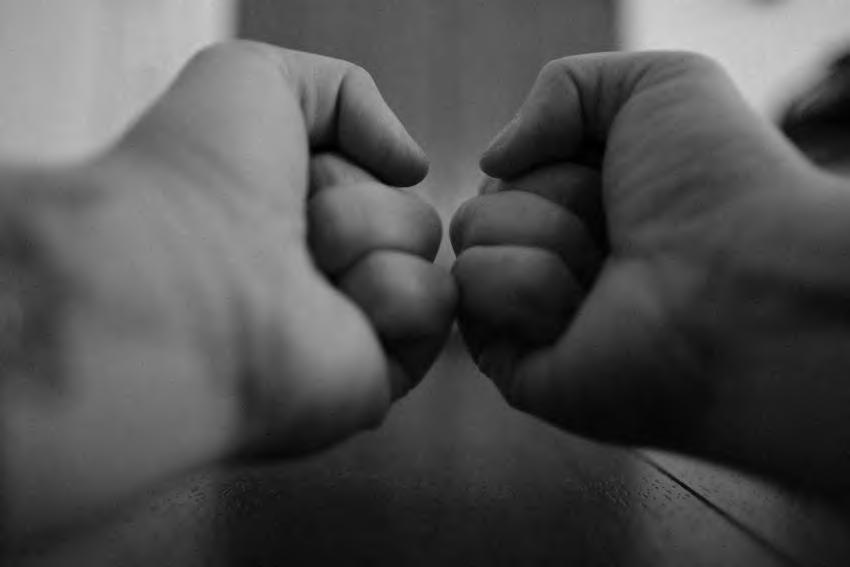
In the cultural setting of Luke’s readers, where an individual’s self-construal was defined primarily by their family relations, Jesus’s terms for discipleship would have curbed the enthusiasm of band-wagon followers unprepared for the journey ahead to Jerusalem. The verb “hate” (miseō) in Luke 14:26 does not have the affective connotations of the English expression, “I hate you.” Rather, it refers to the deprioritization and disavowal of all commitments to family that compete with or stand in the way of radical obedience to God. Jesus speaks here not as a family hater but as a realist.
Responding to the gospel will inevitably bring about division within his disciples’ households because it requires them to reorient their priorities, values, loyalties, economies, and relationships, and the basis of their self-identity in light of what God is doing in their midst through Jesus’s message and ministry (4:16-21; 9:23-24; 9:59-62; 12:51-53; 14:12-24). Unwavering devotion to kin and investment in the family’s socioeconomic security and status will conflict with the cross that Jesus requires disciples to carry (9:23; 14:27). A disciple must be prepared to cope with the distress of family conflict and even the consequences of civil disobedience, which is why they must soberly count the costs of their decision to follow Jesus (14:28-33).
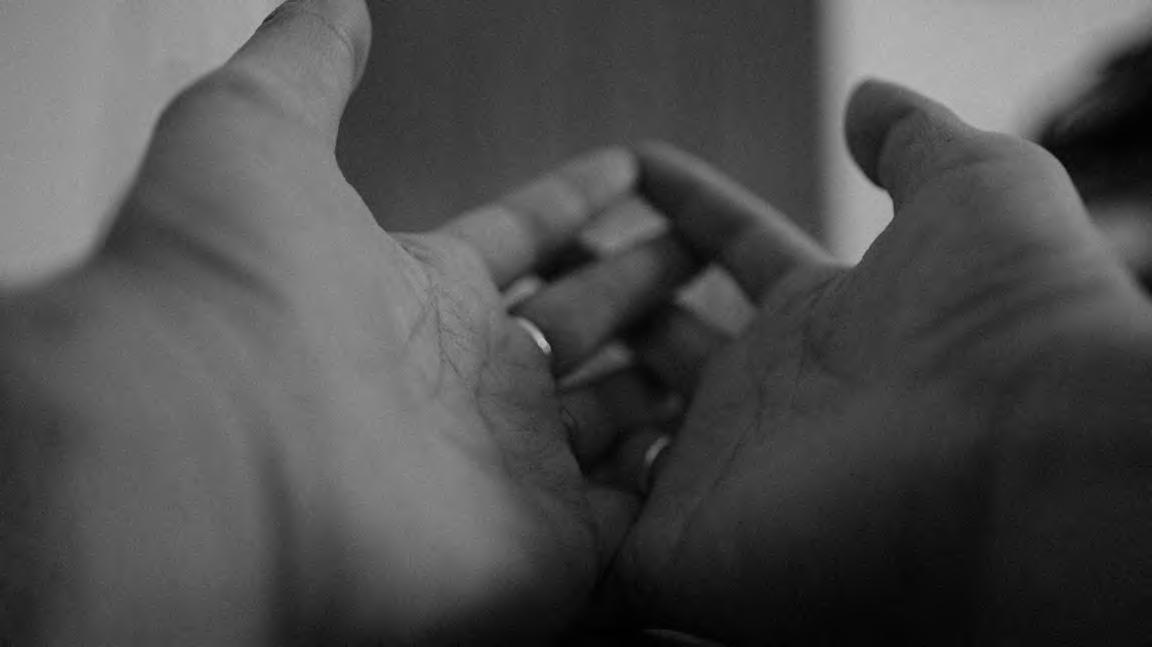
There is a pervasive immigrant romance or myth that depicts Asian Americans as unquestionably capable of attaining the American Dream by prioritizing family, education, hard work, and sacrifice. This idea fuels the paradigm of Asian Americans as the model minority.
The model minority discourse depends largely on the “language of filiality—sacrifice, obedience, hierarchy, gratitude” that is structured by an “economic logic” (Erin Khuê Ninh 2011). This economic logic embedded within the language of filiality is captured in a speech by Korean American Harvard student, Jin Kyu Park, who was the first undocumented immigrant to receive the prestigious Rhodes Scholarship: “I knew early on that my talents were merely a testament to

[my parents’] sacrifice—a product of their original dream to secure a better life for me…They were molded by my parent’s labor, shaped by their bowed legs and blistered hands. My talents are indistinguishable from their labor. They are one and the same.” Park’s sentiments reflect how familism—a way of conceptualizing and living out human relationships and responsibilities that prioritizes family before the self, interdependence, and right relationships—shapes one’s identity as an immigrant child.
Following Jesus as an Indebted Son or Daughter Indebtedness and gratitude go hand in hand for many second-generation Asian Americans. Adult children often feel compelled by guilt and desire to “re-
pay” their immigrant parents who have suffered the loss of family, homeland, or profession either by choice or by necessity. They do this by seeking out higher levels of socioeconomic success through more culturally prestigious employment than their parents could achieve and also by caring for and supporting them in their elder years.
Jesus’s call to deprioritize and disavow one’s family and socioeconomic status as the basis of their identity in Luke 14 is both very challenging and potentially liberating for Asian Americans who, ironically, are the children of those who chose to leave and even renounce their parents and homelands in order to forge a life in the United States. Jesus’s invitation disrupts the cycle of indebtedness that prevents disciples from leaving their familial debts to their parents unpaid. It beckons disciples to forsake the security of the possessions and positions they have long sought to attain for the sake of following Jesus. To carry one’s cross is not a new form of indebtedness but an embrace of the price Jesus paid on his cross that can never be repaid.
The call to discipleship is a challenge to follow Jesus despite the discord it may bring to one’s biological family. That said, Matthew’s parallel account helps clarify that hating one’s family does not mean one cannot “love” (phileō) them (Matt 10:31). What disciples do out of love for God may be perceived by their loved ones as hate, namely, the rejection of their family’s best interests, disobedience to their parents’ wishes, and failure to recognize and repay parental sacrifices. This, for the Asian American Christian, is one of the costs of discipleship—the risk that one’s love is perceived as hate and gratitude as ingratitude.

BIBLIOGRAPHY
Corona, Karina, et al. “Familism is Associated with Psychological Well-Being and Physical Health: Main Effects and Stress-Buffering Effects.” Hispanic Journal of Behavioral Sciences 39, no. 1 (2017): 46-65.
González, Justo L. Luke. Louisville, KY: Westminster John Knox, 2010.
Green, Joel B. The Gospel of Luke. NICNT. Grand Rapids, MI: Eerdmans, 1997.
Jeung, Russell M., et al. Family Sacrifices: The Worldviews and Ethics of Chinese Americans. Oxford: Oxford University Press, 2019.
Ninh, Erin Khuê. Ingratitude: The Debt-Bound Daughter in Asian American Literature. New York: New York University Press, 2011.
Ok, Janette H. “Myth of the Model Minority.” In Intersecting Realities: Race, Identity, and Culture in the Spiritual-Moral Life of Young Asian Americans, edited by Hak Joon Lee, pp. 121–133. Eugene, OR: Cascade, 2018.
Ying, Yu-Wen and Meekyung Han. “Familism and Mental Health: Variation between Asian American Children of Refugees and Immigrants.” International Journal of Applied Psychoanalytic Studies 4, no. 4 (2007): 333-348.
Yoo, Grace J. and Barbara W. Kim. “Remembering Sacrifices: Attitude and Beliefs Among Second-generation Korean Americans Regarding Family Support.” Journal of Cross-Cultural Gerontology 25, no. 2 (2010): 165-181.
This article has been republished with permission from Oxford Encyclopedias of the Bible: Digital Collection, Oxford University Press 2022, https://www. oxfordreference.com/display/10.1093/acref/9780197669402.001.0001/acref-9780197669402-e-66
Janette H. Ok
© Oxford University Press 2009. All Rights Reserved

Kevin Doi is a chaplain, professor, pastor, and spiritual director. He works at Fuller Seminary and co-leads Kairos, a small spiritual community in Fullerton.




Written By Kevin Doi
Last year while walking the Camino de Santiago pilgrimage through Spain, I had a conversation with my parents. My dead parents. The encounter occurred during a quiet morning a few days into the trip when I was alone on the trail. I just started talking to my mother and father. I’m not sure why, I just did.
I spoke to them of gratitude and regret. Gratitude for the ways they had loved me, specifics acts and interactions I didn’t expect them to remember for their ordinariness, yet memories I held closely. Regret for the things I wished I had done or said to them while they were living but now could never fulfill. I suppose the whole exchange could be explained away as an illusion or exercise of a fantastical imagination, but the experience was real. My parents somehow present and felt, listening.
Up to that point, I was not one to talk to my dead parents. Like many Asian American Christians, it’s not something I saw church people doing or churches discussing. Implicitly I picked up on the unspoken forbiddeness of Buddhist and other Eastern practices vilified as idolatry or labeled as “ancestor worship.” Later my mostly white, European-centered theological education reinforced this notion that observing Asian ancestral practices was dangerously demonic or pagan.
This deep suspicion of anything non-White Protestant has, of course, a long dubious history. In her seminal book Heathen: Religion and Race in America , author Kathryn Gin Lum connects the rise of racism and the word “heathen” with the emergence of foreign mission societies in England and the United States in the mid-eighteenth century.1 Lum argues that by naming “foreign others” as heathen and uncivilized, American Protestants placed themselves in a paternalistic position as “saviors” over much of the world, thus justifying imperialism in the name of God. Among the practices denigrated were Asian honorific rituals, interpreted by white evangelicals as deification of false gods, particularly parents and ancestors.2
One of the unfortunate casualties and legacies for Asian American Christians of this colonial enterprise is that white missionaries took away our grief rituals and robbed us of our “cloud of witnesses.”
During the Covid pandemic, I helped organize and lead a prayer vigil at Fuller Seminary where our community protested and mourned the anti-Asian hate that had resulted in numerous attacks and several deaths, especially among our elders. Staged on the steps of Payton Hall was a dinner table, embellished with candles. Plates of food were placed on the table where one of the family members was noticeably absent. Flowers and a lei-adorned picture frame were all that signaled the life missing on the empty chair. People mediated upon the memorial table as we named those we had lost.
Since that event at Fuller, I began to explore what embracing my familial and communal ancestors might look like, and to consider the embrace and veneration of our elders that have been lost and denied us by white colonialism; spiritual practices that acknowledged the wisdom of our ancestors and their life among us, even in death. Author Russell Yee in Worship on the Way: Exploring Asian North American Christian Experience argues that the Fifth Commandment calls for the honoring of our parents, including the legacy of our ancestors at every stage of life. Jesus himself testified in Mark 12:26-27, “As for the dead being raised, have you not read in the book of Moses, in the story about the bush, how God said to him, ‘I am the God of Abraham, the God of Isaac, and the God of Jacob’? He is God not of the dead but of the living.’”
A few years ago at the Okaeri bi-annual conference at JANM, I attended a workshop on Obutsudan or home altars, the Jōdo Shin Buddhist practice of ancestor commemoration.4 After a Buddhist minister presented the history of the butsudan, participants were invited to create simple artifacts of remembrance using the various art supplies in front of us. We shared about the ances-
tors we had lost and were honoring—parents, siblings, bachans and gichans, dear friends and pets—and concluded by offering our sacred artifacts at the butsudan altar at the front of the room. I was struck by how moved I was by this grief ritual, and how quickly and deeply these strangers formed a sense of community around the common experience of grief and the honoring of our ancestors.
In her book Our Unforming: De-Westernizing Spiritual Formation, Cindy Lee reflects on how the white evangelical church taught that her story as a Christian began with her own private decision to follow Jesus. But she learned from her Ahma that her faith actually began generations earlier and comes from her community.5 I too realize that my faith is not my own, but traces back to my maternal grandfather who himself became a Christian later in life. I know I am a follower of Jesus because he must have prayed for his grandchildren, with me among them. I also bear testimony that I am a minister today only because of the witness and community of Evergreen Baptist Church of LA, whose generations of pastors and ancestors, aunties and uncles, sisters and brothers, have shaped me in ways too profound to recount and a family wisdom and inheritance offered to me as my own.
In this moment of renewed Christian nationalism, white supremacy, and political tyranny, what spiritual practices of resistance and hope can our Asian American faith communities derive strength from? What holy wisdom of our elders can we embrace and call upon to meet the challenges of today? What stories from our ancestors can a new generation of young Christian activists be inspired and sustained by? In short, what will we learn from our great cloud of witnesses for such a moment as this? For we worship a God not of the dead but of the living.

1 Lum, Kathryn Gin. Heathen: Religion and Race in American History. Harvard University Press, 2022. 11.
2 Ibid., 161.
3 Yee, Russell. Worship on the Way: Exploring Asian North American Christian Experience. Judson Press, 2012. 76-77.
4 Iwamura, Jane Naomi. “Altared States: Exploring the Legacy of Japanese American Butsudan.” Pacific World: Journal of the Institute of Buddhist Studies. Vol. n.5 Third Series. Jan. 2003.
5 Lee, Cindy S. Our Unforming : De-Westernizing Spiritual Formation. Minneapolis, MN: Fortress Press, 2022.
By January Lim
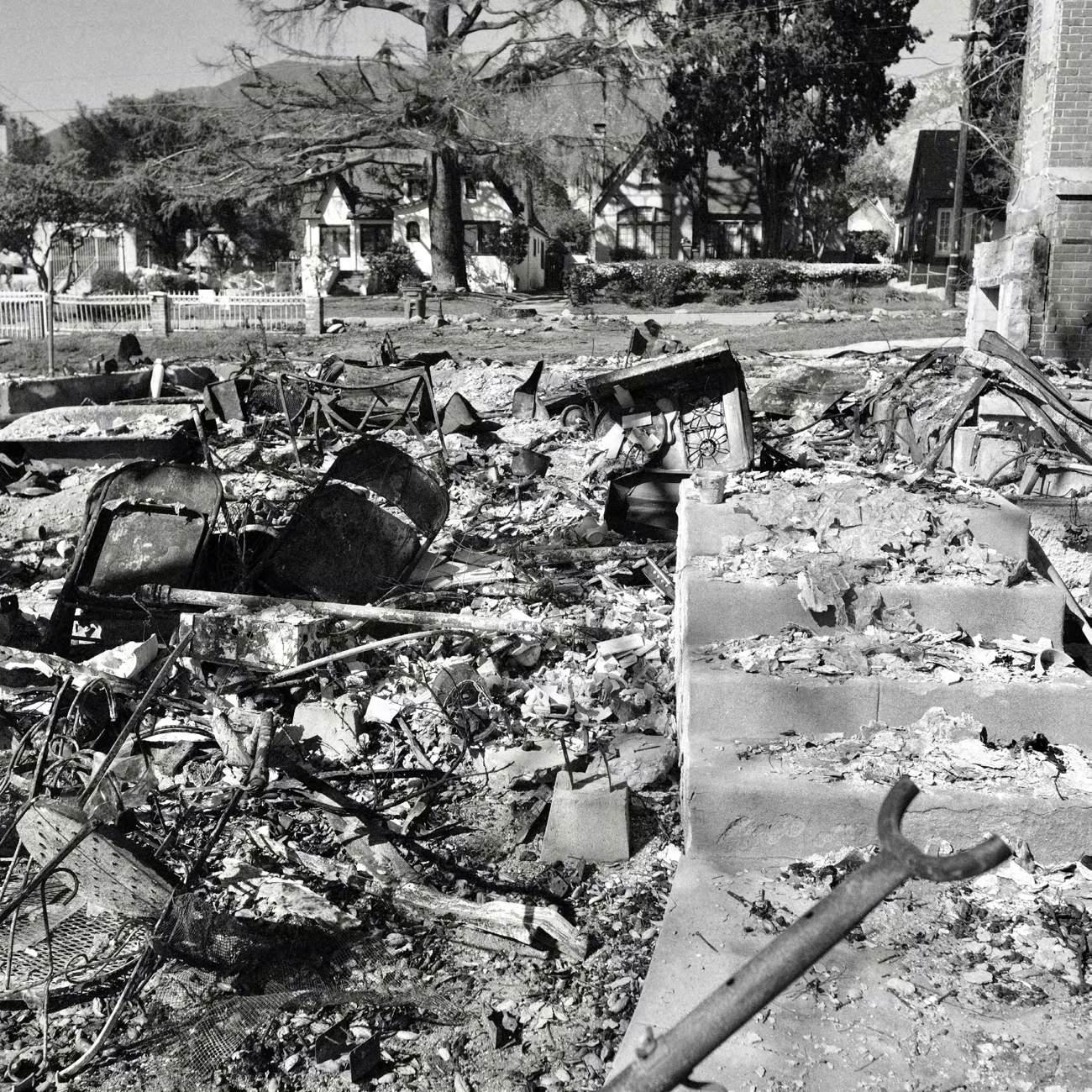
From January 7th through the 31st, Southern California went up in flames. For 24 days, over 57,636 acres burned, land primed to go ablaze due to ongoing droughts, low humidity levels, and hurricane level Santa Ana winds. Out of the handful of wildfires, the Eaton Fire in Altadena raged and reigned as one of the most disastrous. It was devastation the greater Los Angeles region and all of its inhabitants were woefully underprepared for.
Near the beginning of April, I decided to visit Altadena, to witness for myself, the damage done. There was no way to prepare myself to see the properties reduced to ash; the residences, the businesses, the entire city intersected by blocks of charred rubble. I had grabbed coffee from a local cafe two days before the wildfires began. I could barely recognize the property now, save for the scorched and blackened window frame that used to grace the wall of the entrance.
Through my camera, I observed the deep well of permanent loss. My lens focused on the stove tops that had been used to cook family meals…stairwells that led into bedrooms that no longer existed…the still standing remnants of fireplaces and doorways— entry ways into memories of sacred gatherings forever lost… I lamented. I grieved. A day that I will never forget.
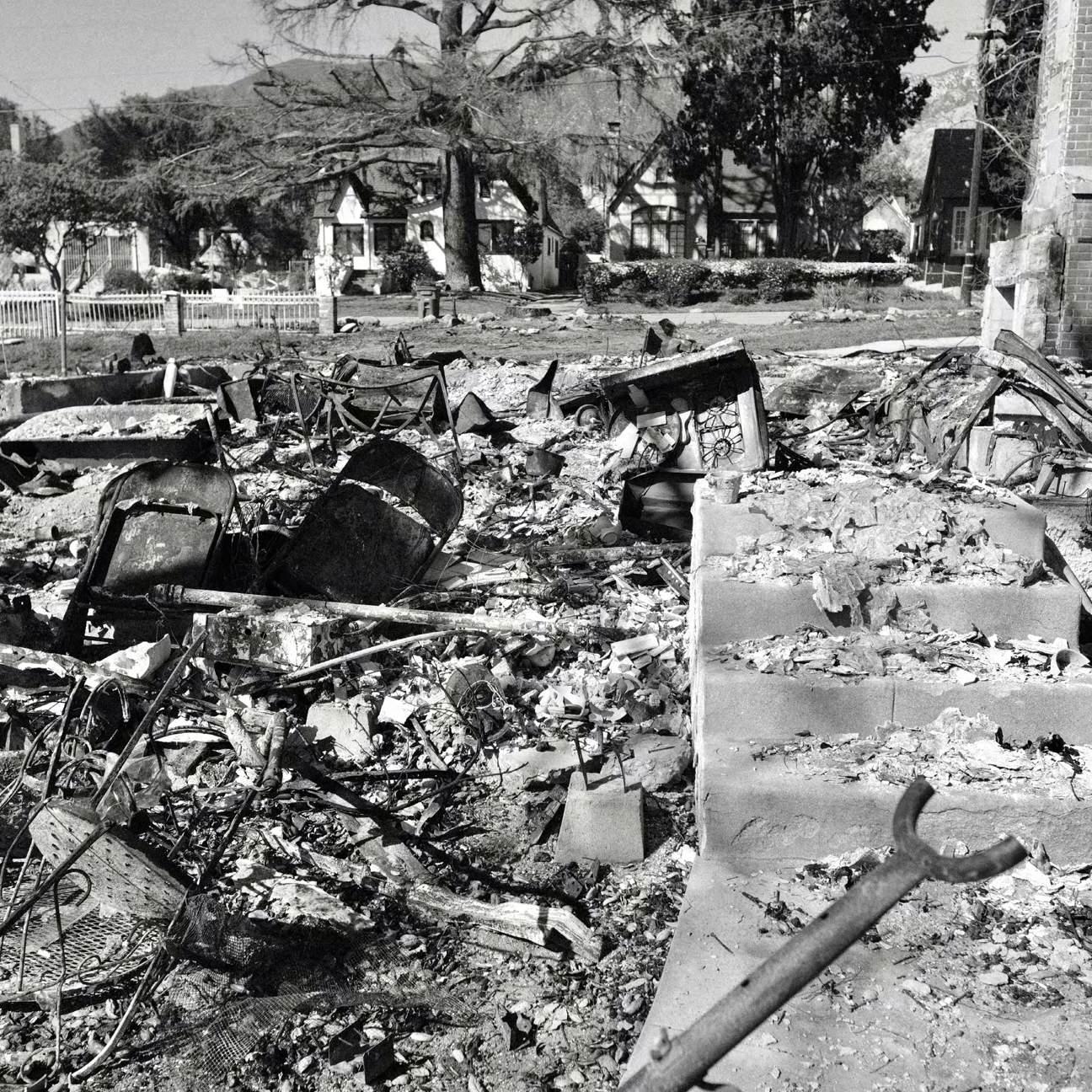




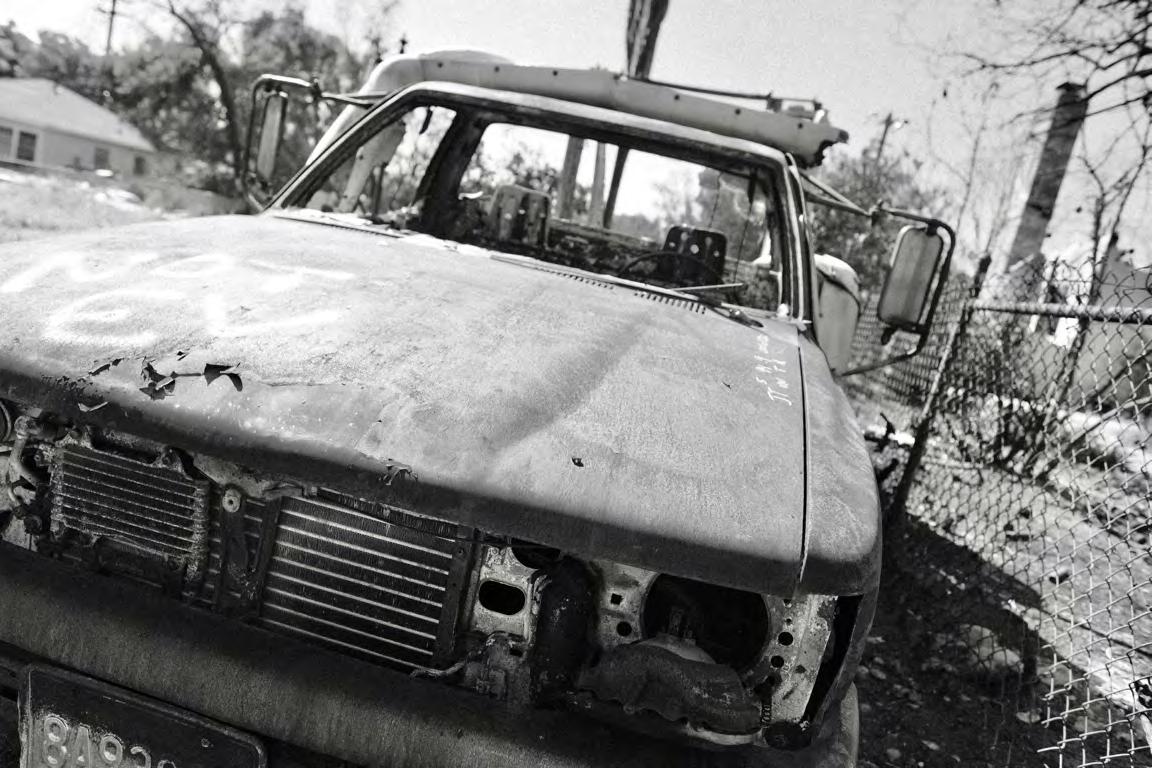


When I asked Mika Walton if I could visit her home in Altadena that by miraculous grace, had been skipped over by the raging fires, she enthusiastically invited me over. As she described each one of her fruit trees, how old it was, how long she had been waiting for the fruit to grow, how the squirrels had gotten into a whole harvest’s worth, how I had just missed the most vibrant blossoms, I could sense the love, pride and joy present in Mika’s relationship with her personal Eden. I instantly felt my own grieved heart healing.
Perhaps the survival of the Waltons garden is less about luck and divine providence, than it is the land’s way of claiming the Waltons as their family and kin. The garden, affectionately named “Poppies and Peas” after Mika’s favorite California wildflowers, has chosen to survive—to honor the devotion invested into the grounds, to respond most emphatically to the love that has been sown into the growth and development of each seed, sprout, and sprig. Poppies and Peas reminds us that we are called into dynamic, thriving, mutual relationship with nature around us; that her survival is not dependent on our sometimes neglectful, often exploitive care, but that on the contrary, our survival is dependent upon hers.
I thank God that the grounds that bear the trauma and loss of our purging and hoarding, are still willing to forgive us. Thank God for that.
Here is Mika’s personal note on tending to her beloved garden, Poppies and Peas.
I've put a lot of work into my orchard and it provides me with a sense of home in the same way that my family does. I feel grounded and peaceful when I'm in my garden. It’s become a part of who I am. When I was younger, my parents would take my sister and I to botanical gardens—I thought it was so boring. Now here I am, trying to get my own reluctant kids to be interested in gardening and plants.
I could spend hours weeding and tending to my garden; it gives me a sense of peace and calm. It brings me so much joy when I go out to and see plants thriving, fruit growing and flowers blossoming. With an orchard, you can experience all five of your senses; seeing and touching the plants, hearing the bees, smelling the flowers and eating the fruit. This whole body experience is how I think we were created to enjoy nature and experience God. It feels like a remedy to our current life spent mostly staring at our phones or computer screens. An orchard can also be a source of frustration when things don't grow or get eaten by bugs and critters, but there is always new life and growth in a garden. It's miraculous that you can plant a tiny seed and with just some water, sunshine and time, it grows into a plant.
I was worried during the wildfires that i would lose my orchard since at first I didn't know how long it would be before we were able to go back. Thankfully i was able to visit to water my trees and keep them alive. Gardens and plants, particularly native plants, are very resilient. California native plants are adapted to our dry weather and even fires, with some plant seeds even being activated by a fire. Being in the garden after an event like the wildfires brings me hope. Among the burned areas, you can see the plants that have survived or are growing back; despite death and destruction, new life emerges.
stone fruit stone fruit sweet peas



Sweet peas are one of my favorite flowers to grow. not only do they come in a variety of beautiful colors, they also smell amazing. but don't eat them, they are mildly poisonous!

When you grow fruit trees, especially stone fruit, it needs to be thinned. Which means you have to remove most of the fruit and leave just one or two per branch so that the tree can focus it's energy on those fruits so you can get bigger fruit, and not just a bunch of small fruit.
Stone fruit, like these peaches, can be tricky to grow. You not only have to deal with diseases and insects, but my squirrels love to feast on my peaches and nectarines. I put a net around the tree to keep them away.
orchard
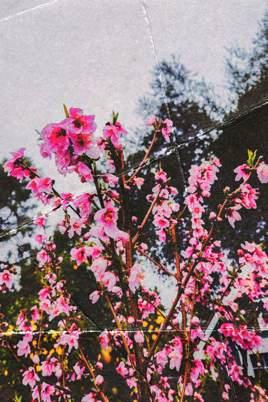
My orchard gives me my own miniature sakura or cherry blossom season, but from lots of different kinds of fruit trees.


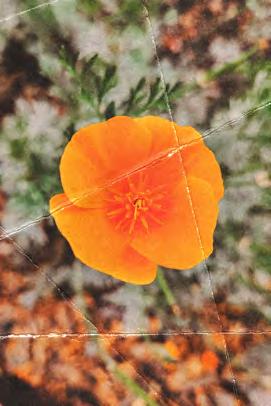

Grapefruit flowers smell amazing. When they bloom you can smell them from far away, especially in the early evening.

We planted this Ray Hartman Ceanothus tree about 11 years go when it was about a foot tall. Every spring it has these gorgeous purple blooms that the bees love so when you stand by it, it sounds like the whole tree is buzzing.
I love poppies for their bright orange faces that shine into the sun. They require no extra water in our dry climate yet pop up every spring and then scatter their seeds and spread out on their own. If you have ever touched a dried poppy seed pod, they will spring open, flinging their seeds out to ensure that they keep spreading.
I planted one rhizome of this bearded iris and many years later they have spread and now I get many flowers blooming every spring.



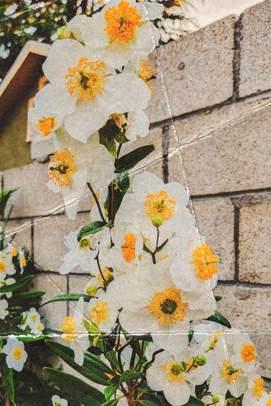
I love that this Red Baron peach tree gives you both peaches and these shocking bright pink flowers.

I must have planted these nasturtiums one year but I don't remember. And because they self-seed, they now pop up every year just on their own, with just the little rain we get during the winter. You can eat every part of this plant!
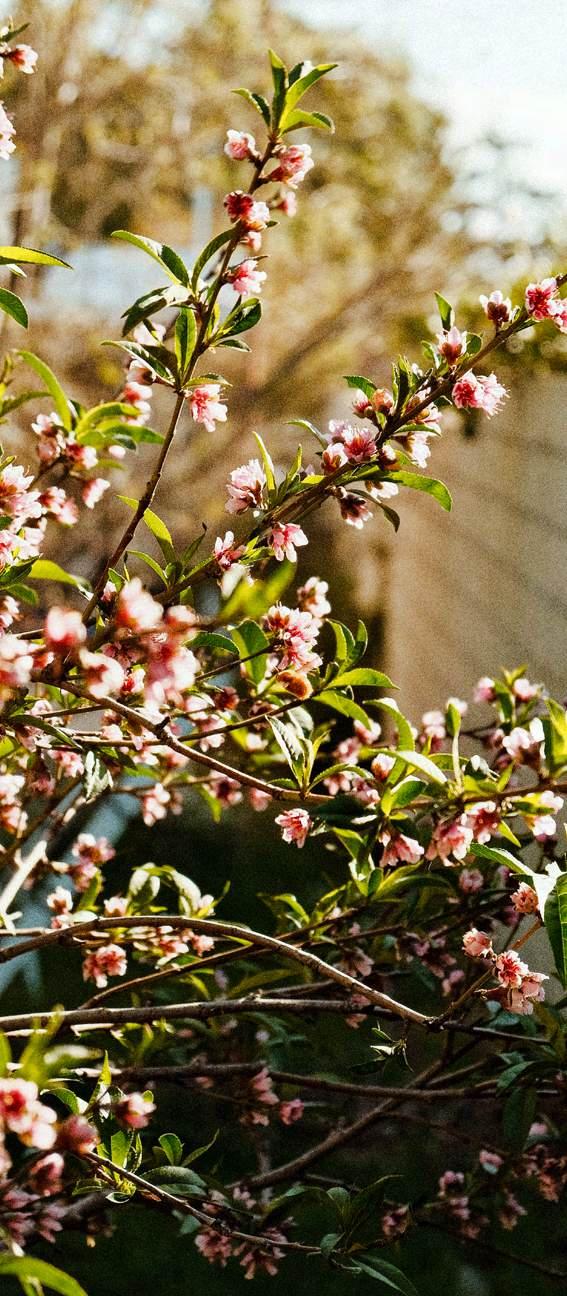

This Desert Willow tree is a CA native plant. Native plants contribute to sustainability in your garden by being adapted to the climate so not needing as much water and providing habitat and food for native birds and insects, just to name a couple benefits.


Citrus trees have been the most successful in my orchard. They are fairly low maintenance and provide an abundance of fruit that I can share with neighbors and friends.

We planted this Desert Willow when it was probably a foot tall and now it towers over our house.




I remember being born into a line of kings.
Four proud sons on my dad’s side. Five not-men on my mom’s. And me.
The last Chinese son in my family.
= I remember the moment I found out that I couldn’t have kids.
We had been fighting. She wanted them, I didn’t. We decided to try and see what God would do.
Two years later, we were still trying.
I remember going in for fertility tests.
A young doctor calling me. Being confused about my results. Re-testing.
Telling me that I had no sperm at all.
I was sterile.
I went numb. Incredulous. Haunted by the irony of it all.
Because now that I couldn’t, I wanted to.
~ I remember Going over options.
There was a procedure.
A 50/50 chance for a whole lot of money. You either got it or you don’t.
I wasn’t sure I wanted to find out.
~
I remember
picking out a sperm donor.
The surreal experience of choosing a man I had never met to be the other half of my child. Indelible traits passed down from him. Not from me.
A life-changing decision from an online catalogue.
Sometimes I felt sick about it. But I feigned courage. Rationalized it to Jess.
It was just supposed to be a back-up plan.
I remember Gethsemane.
Dressing in the dark before my operation. It was quiet. Jess was still sleeping. And I was alone.
God, I really don’t want to do this. And hearing
You don’t have to.
But you will miss out on all the great things I am going to do.
~
I remember
Coming to after the operation
The doctor’s kneeling next to me Jess’ hand in mine
And the bed feeling so small
Easing into the car, joking: Looks like I’m a limited edition after all.
Holding in my tears for the ride home.
We were now At the end of the line.
=
by jon moy
I remember recording my grandparents’ memories on video.
They recount their escape from the Communists as God’s provision and miracle. Praying and trusting God the whole way through.
My uncles say my grandparents are wrong. The order of things, the people, and where they weremistakes and misunderstandings. They had no idea who Jesus was back then.
And I remember not caring.
Because my grandparents are not remembering simple facts. They are rediscovering their story.
Sometimes, it takes years to change the way you see things.
=
I remember us choosing an embryo.
And we chose Jade.
The girl among the boys. She is the beginning and the end.
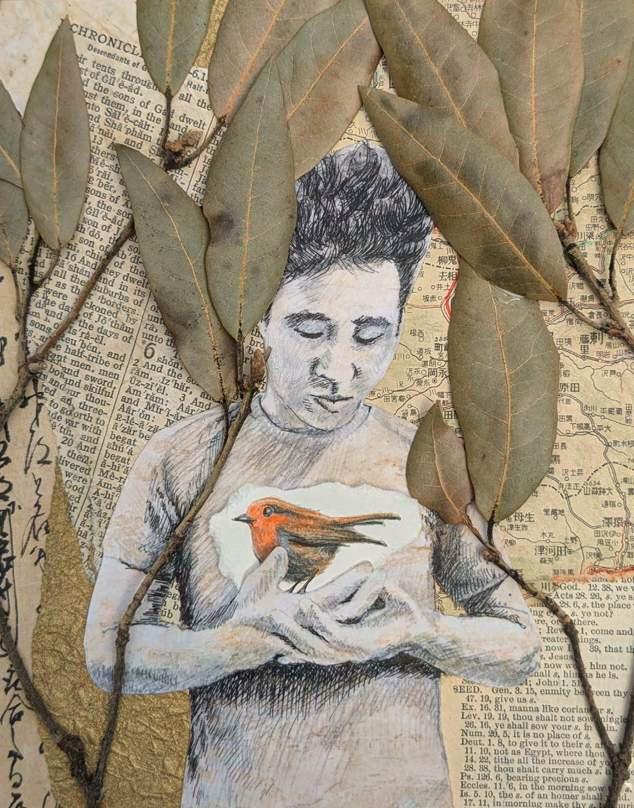
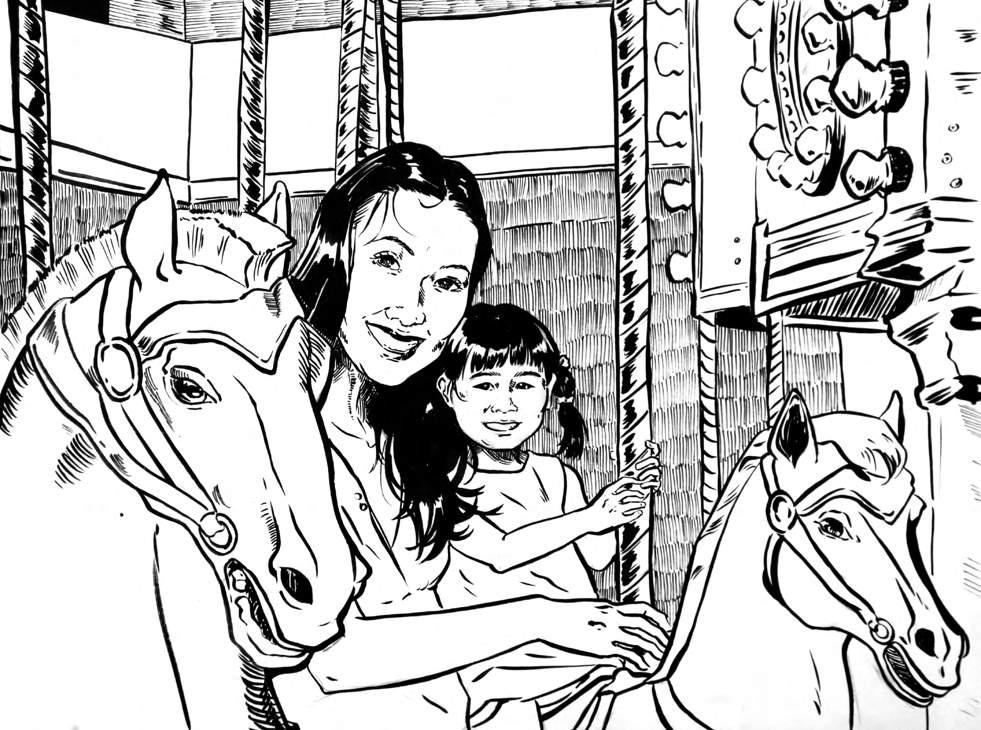
By Lovelyn Chang
When my daughter Charis was about preschool age, some of the most intimate and meaningful conversations came at the most unexpected moments. Three or four-year-olds tend to be candid, honest and unfiltered. My husband and I think back to those days and smile. When I reflect on those conversations from the past, I can’t help but think that God gifts children with profound insight and understanding.
During the first time eating out with just the two of us—our first mother daughter outing of sorts, we happened to be at Baja Fresh somewhere in West L.A., where we used to live. I asked what she wanted to order. She said, “I don’t want to eat. I just want to talk.” Her words caught me offguard, and my insides fluttered with the poignancy of the moment. I didn’t know that a three-year-old can value spending time at a restaurant just talking. Honestly, I don’t remember what we talked about that day, but those words ring true even just this week (almost two decades later) when she Facetimed from her college apartment just to chat and we ended up talking for over an hour.
Some of the most meaningful conversations occurred in the bathroom, during bath time. I explained to Charis that her name meant Grace—like when we show love to someone who makes mistakes. Her four-year-old imagination churned into motion, and she tried to visualize what it feels like to give someone grace. She looked up at me with the most serious,
stern expression, and said, “I am giving you Grace, Mommy.” Her words gave me pause. In my head, I’m the parent who often gives her grace. I am the one showing unconditional love. That is what mothers do with their children. However, that day she showed me that in her mind, she probably gets exasperated with me too. There were definitely moments in the day when she had to show me grace, like when I get mad at her for being too slow to finish her meal, or when I yell at her for some infraction.
Another bath time, I told her that Mommy still loves her even when I get angry. I wanted her to know that family members get mad or frustrated with each other every now and then, but love still covers us all. Her reply was “Oh yeah, I still love you too, even when I get angry with you.” Just as before, she showed me the child’s perspective. Children do get angry with their parents too! Yet she is announcing to me that LOVE abides despite the normal expressions of anger.
In stereotypical Asian households, we actually don’t say the words “I love you” very much. We just cook and do chores, and consider love done in action. However, there was a matter of a few days or weeks back in 2009 or 2010 when Charis kept trying to tell me how much she loved me. She would stretch her four-year-old arms wide and say, “I love you this much!” But after looking at how short her arms were, she realized her body wasn’t long enough to adequately measure her affection. In her preschool mind, she tried to think of the longest thing that would capture her me-
aning better. She thought of the freeway commute that we did from West L.A., where we used to live, to San Gabriel every day, where I worked and where her grandma lived. Or perhaps she was thinking of the additional commute to meet with her dad, who at that time worked in Brentwood. We had to connect from the 10 freeway to the 405, and that felt long to her (and to just about anyone who makes that drive). With the light bulb idea, she happily exclaimed, “I love you until the freeway!” In her imagination, that super long ride more accurately expressed the length of her love.
I think back to what was going on in her little mind at that time, for her to want to tell of her love for me. I’m not sure, actually. I’m not so sure she recalls either, even if I ask her now. What I do recall is that that was one of the toughest years of my work life, when I took on a new assignment, and felt extremely challenged in my career. Those were days when my self-confidence suffered new lows. I felt like I was performing poorly as a teacher, even though I had more than ten years’ experience behind me. The stress of moving to a new house also added to the professional challenges. God knew how poorly I felt about myself, and used my four-yearold to speak volumes of his love and grace towards me. Those were days when I needed to be reminded of the treasures I have at home, with my daughter blessing me with “I love you this much! Or “I love you until the freeway!”

“Ohana
Disney buffs we are, the words of Lilo ring very true about family in a biblical way. Being a part of God’s family has allowed me and my family a lifelong journey project on earth to work to find and meet our spiritual family members. I am thankful for opportunities beginning with my Chinese paternal grandmother introducing me to God’s family in Seattle. This grandmother even helped me when I could no longer understand the Chinese sermons. After an honest dialogue, she encouraged me to find a community where I could grow in my understanding of being a part of God’s family. In my heart, I knew that she was saddened by me leaving. In my lifetime I have been part of six wonderful families (Chinese Baptist, Japanese Presby, Glendale FMC, Chinese Congregational, Evergreen Baptist (Unified), and currently Baptist Church of Los Angeles). I try to keep in touch with key leaders and members and have been blessed to engage with them as part of my extended Jesus family. Some have even supported my mission endeavors. Besides attending church, I have encountered more of my Christian family by attending networking events like the JEMS Mount Hermon camps, Urbana mission conferences, and other gatherings to meet and find connections.
In the early 2000s, the second week of March became our “death week”. It starts with the birthday of Bruce’s mom, the passing of my mom on the 9th, the passing of Bruce’s dad and my uncle on the 11th, and lastly my father on the 12th. During those times, we met and found surrogate “parents” who came alongside us and cared for us like their own children. I have gained parenting partners, and even surrogate “grandparents, aunties, and uncles” for my daughter when needed (we cannot say thanks enough for those in our congregation like Yuki Ihara and Chiyo Kobayashi, who regularly doted on said daughter). Not a season of life went on for our daughter without the regular question of “How are we related to…” and the answer was always Jesus.
By Melanie Mar Chow Artwork by January Lim

Jesus is always about looking for those who are missing from his family. If we ask how we can help, there is always an opportunity to help his family members reconnect. Some are better and more persistent in seeking the missing. But the welcome is always ready and waiting for people to return.
My challenge in life is to encourage others. I should also regularly pray and ask God to remind us of our role in assisting others to make connections with God's family. I’m grateful for the opportunity to be instrumental as a family member. I was blessed to learn how to help a family who has lost their home in the Altadena fire or to intercede each morning from my warm bed for another sibling in Christ for their current challenge. There many amazing stories of people reconnecting, to God’s glory.
The most unexpected one happened while attending Urbana 2018. I was standing and waiting with a random brother in Christ in the rafters of the Kansas City auditorium while we were supposed to be serving communion. While waiting for further instructions on whether we should move to serve others, he introduced himself and told me he was from the East Coast. I figured we had nothing in common, but he then mentioned that as an InterVarsity staffer, he recently began staffing after several years of serving in China at an orphanage. Always interested in finding connections to the family of God, I asked him about the orphanage he served because we had received our daughter by adoption in China. The next thing I knew was that he was describing the room that families received their children in and the description fit the same room we sat in 20+ years from that time. I learned that he had served at the same orphanage where our daughter began her life before leaving China.
No matter how people connect, these stories give God glory. Hebrews 7:25 reminds us of the work of Jesus to complete His search for his family and the desire to spend eternity with them. “Therefore he is able to save completely those who come to God through him because he always lives to intercede for them.” Until it is time to meet our Maker, there is always enough time to meet new family members, no matter where we find ourselves. With more boldness, maybe you and I will meet new family of God connections at random places. You never know when in line at Disneyland or waiting to get water at the next 5k pit stop will allow a connection with a family member and an opportunity to glorify God.
By Julie Ono
When I was around 12, I already knew that I wanted to be a mom one day. I decided I wanted four kids, two boys and two girls. I imagined a peaceful family where everyone loved each other and was always kind. My kids would never say “shut up” or call one another “stupid”. To say I was a little naive is an understatement!
Our oldest, Megumi, was almost 2 ½ when our son, Reyden, was born. We did all the right things to prepare her. We read lots of books to her about being a big sister, involved her in a lot of the preparations at home and even had a big sister present ready for her when she came to the hospital to meet her baby brother. I also read and re-read a great book called “Siblings Without Rivalry: How to Help Your Children Live Together So You Can Live Too”. No matter how ready we thought we were, nothing could have prepared us for Reyden. He was so LOUD and constantly full of energy. They couldn’t have been more different and they fought all the time. Nothing in that book helped!
When Megumi was almost 6, we told her that she was going to be a big sister again. She cried! She didn’t want another Reyden. Reyden had the opposite response and couldn’t wait to be a big brother. A month after the announcement, we had to sit them down again. We were going to have TWO babies. Megumi cried again! Two more Reydens! Reyden, of course, couldn’t have been more thrilled. Two months later, we sat them down again. They were going to have a brother. Megumi cried again! And… a sister. She stopped crying and smiled just slightly. Maybe this wouldn’t be as bad as she thought. And for me, I would be getting my dream of having two boys and two girls.
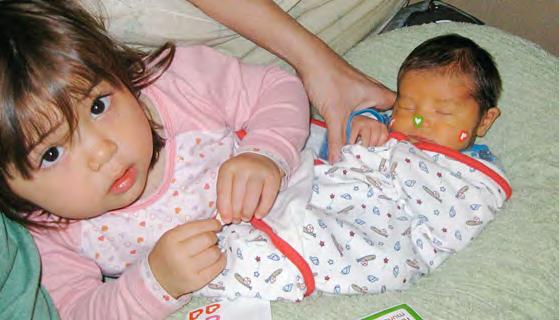
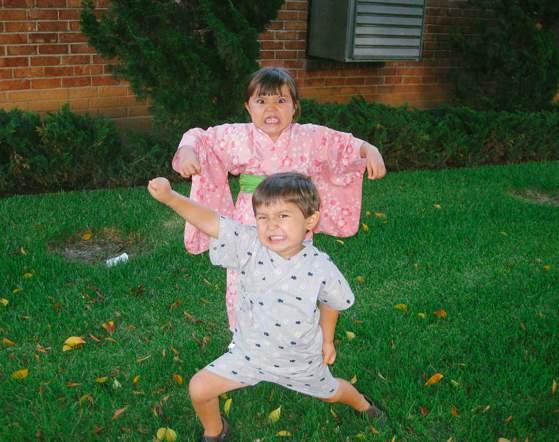
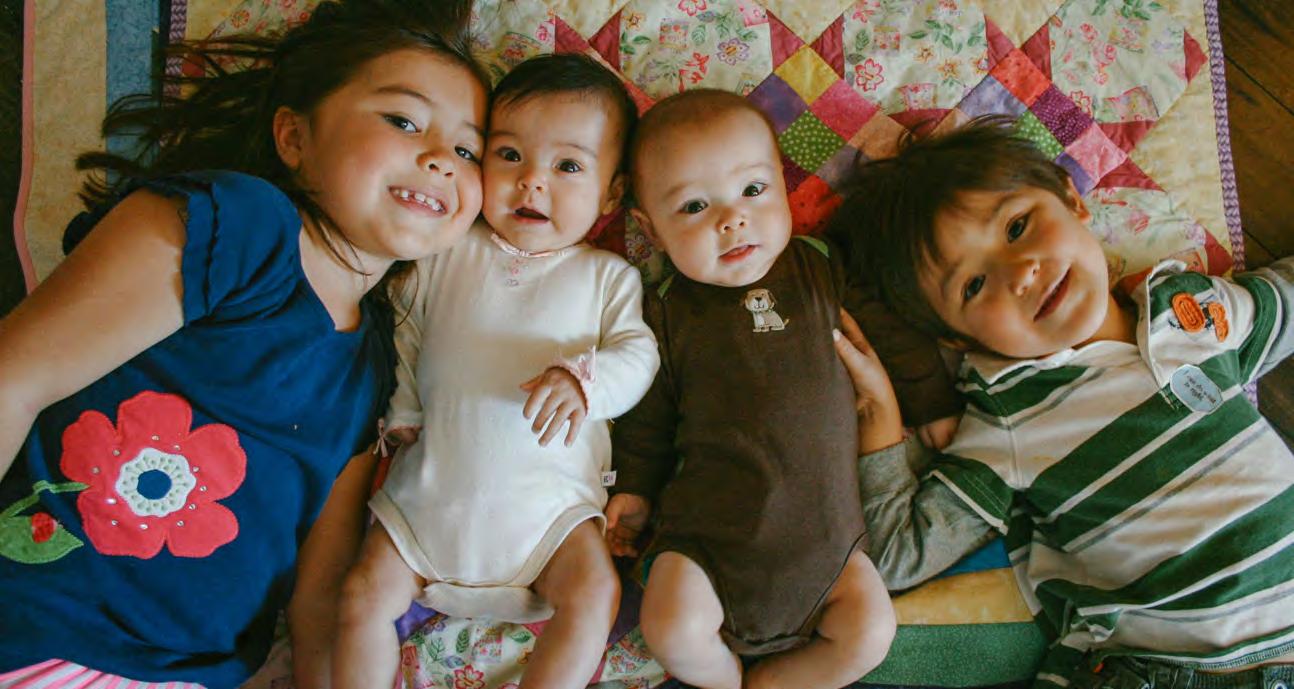
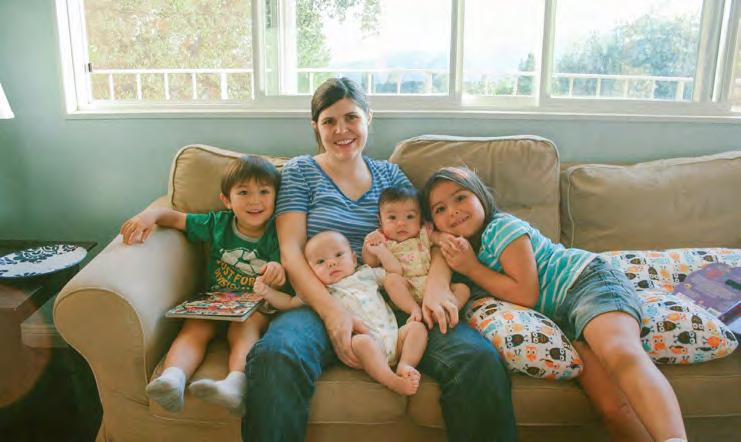

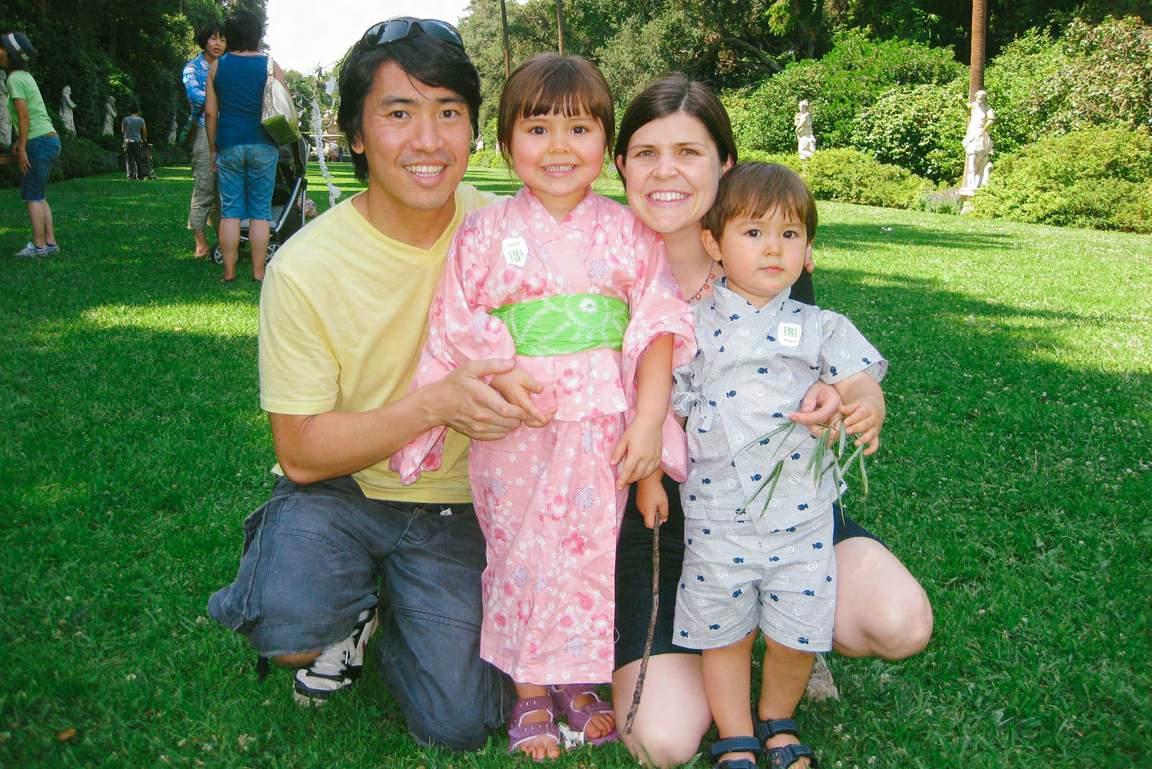
Going from two to four kids overnight was crazy. Our twins were premature and I was in the hospital for a month before they were born. We had an incredible village of friends and family who rallied around us. We also bought our first home and Kenji started a new job! After 6 weeks in the NICU for Erika and 9 weeks for Koen, they were finally both home with us. That was a defining moment of joy for me, having our entire family under the same roof again. And then reality set in. Caring for two babies and two older kids was all consuming. I was so overwhelmed with caring for everyone and trying to manage all the relational dynamics in the house. Each kid had their own needs and personality and I felt like I was always playing peacemaker.
As the kids grew, it became more evident that Reyden’s behaviors weren’t typical. He was the cutest, friendliest, smartest kid, but also emotionally volatile and unpredictable. One minute he would be happily playing and the next he’d be screaming and hitting. Reyden’s elementary and middle school years were extremely challenging. He went through multiple diagnoses and extreme behavior challenges. We spent a lot of time and money trying to get him properly diagnosed so we could better understand and get him the support that he needed. All of that didn’t bode well in his relationships with his siblings. They felt angry at how he treated them and that they had to be “understanding” all the time. It was confusing and hard to live with someone who you wanted to play with but were also afraid of. It was heartbreaking observing all this family trauma as a mother and being powerless to fix it. No matter how hard I tried, I couldn’t bring peace

to my children. I cried a lot. So many painful moments happened between my kids that I didn’t think their relationships would ever be able to heal. I was losing hope that the four of them would be able to have positive connections with each other into adulthood. I prayed for Reyden, that we’d find answers and help for him, and also that God would heal my kids’ relationships with each other. It was a dark time for me with God, questioning his presence and love as I felt my family was crumbling around me.
Four years ago, in the middle of the pandemic, Reyden was diagnosed on the autism spectrum. It was such a relief for all of us to see him finally get the support he needed all those years. I feel like it was also a turning moment for our other kids towards their brother. They have developed more compassion and understanding for what he goes through. They still feel all the pain of what’s happened between them, but they don’t feel as angry towards him, and know it wasn’t “on purpose”. It seems like there is a little less resentment too. Reyden’s behaviors are more stable now as he’s learned how to manage his triggers and use better coping strategies. It’s not perfect by any means, but there is a little more peace in our household. Praise God!
Sibling relationships are complicated. And the more siblings there are, the more layers there are! And then you add other factors like neurodivergence or chronic conditions and it gets even harder to navi-
“FOR THE FIRST TIME, I FELT HOPE FOR THE FUTURE. MAYBE THEY WILL BE OK WITH EACH OTHER AS ADULTS. MAYBE THEY WILL ACTUALLY ENJOY AND APPRECIATE EACH OTHER.”
gate. As a mother, I have learned that I really don’t have any control. Of course, my kids call each other stupid and yell shut up daily. There is conflict over who ate the last of the ice cream, who left their dirty clothes in the bathroom and why someone embarrassed someone else in front of friends. There is always fighting. I have learned that doesn’t reflect on me as a mother. All I can do is love and support each of my kids as they learn how to navigate their relationships with each other, which are constantly changing. We are embarking on a huge milestone this Fall as Megumi goes off to college. It will be interesting to see how this dynamic changes how they relate to each other.
One Sunday last year, Megumi and I drove two cars to church since I had to stay after service for a meeting. All the kids left church together and decided to go to Costco for lunch. I think that was the first time that all of them had done that without us and Megumi sent me this picture. It touched me so much to see them all together on their own, choosing to spend time together. For the first time, I felt hope for the future. Maybe they will be ok with each other as adults. Maybe they will actually enjoy and appreciate each other. Maybe they will be able to have lifelong relationships with each other. And I will be there for them as they continue to grow and change.

By Mide Kolawole
I never learned the language. The thick, heavy syllables have never naturally left my lips— but into my mouth, I have taken language with no words. Rice and stews and sweets things so special, I happily waited hours to eat. The few times I tried to recreate the magic of my family meals, the taste was good, but different. “This isn’t like my dad’s.”
But I feel connected to something greater than me in the way that my back starts to ache as I stir and (try) to make smooth swallow— in the way I share the food with the person I love the most even though it takes hours.
I never met my grandmother. But I miss her every day. She died before I was even a thought in my parents’ mind, before they even met but she has always been present. She’s there— on my birth certificate, in the way my forehead curves. She’s part of my dad’s mystery, his quiet. “This isn't like my mom’s.”
She’s there. In the absence, in the way I learned to do my hair by myself. She is my dream, my gateway and alternate universe. I imagine how things could have been. Even more real, I believe she might understand me better than anyone else, looking down from sky and time.
I’ve never touched the ground my father was raised on. I have no love of country—wonder if that’s something people can actually feel. Sometimes, I sense that this is why I can’t shake my loneliness and the feeling that I am always somewhere I don’t truly belong. Sometimes, I get sick thinking about traveling there. Of experiencing at best, the shame— at worst, the violence of being too white, too queer, too American. But my deeper parts know that I’m only what my family has made me.
I’ve traveled thousands of miles to ask questions of myself. I’ve loved someone I shouldn’t have and refused to let them go. I’ve wrestled with my pride and sense of superiority— kept things quiet and hidden until they’ve exploded. My head fills with boiling water at perceived wrongdoing. On Sunday mornings, I always want to be at church. I’m still searching.
Idile mi, my clan, showed me the way. Lived this life before me. Nothing can take me from them.
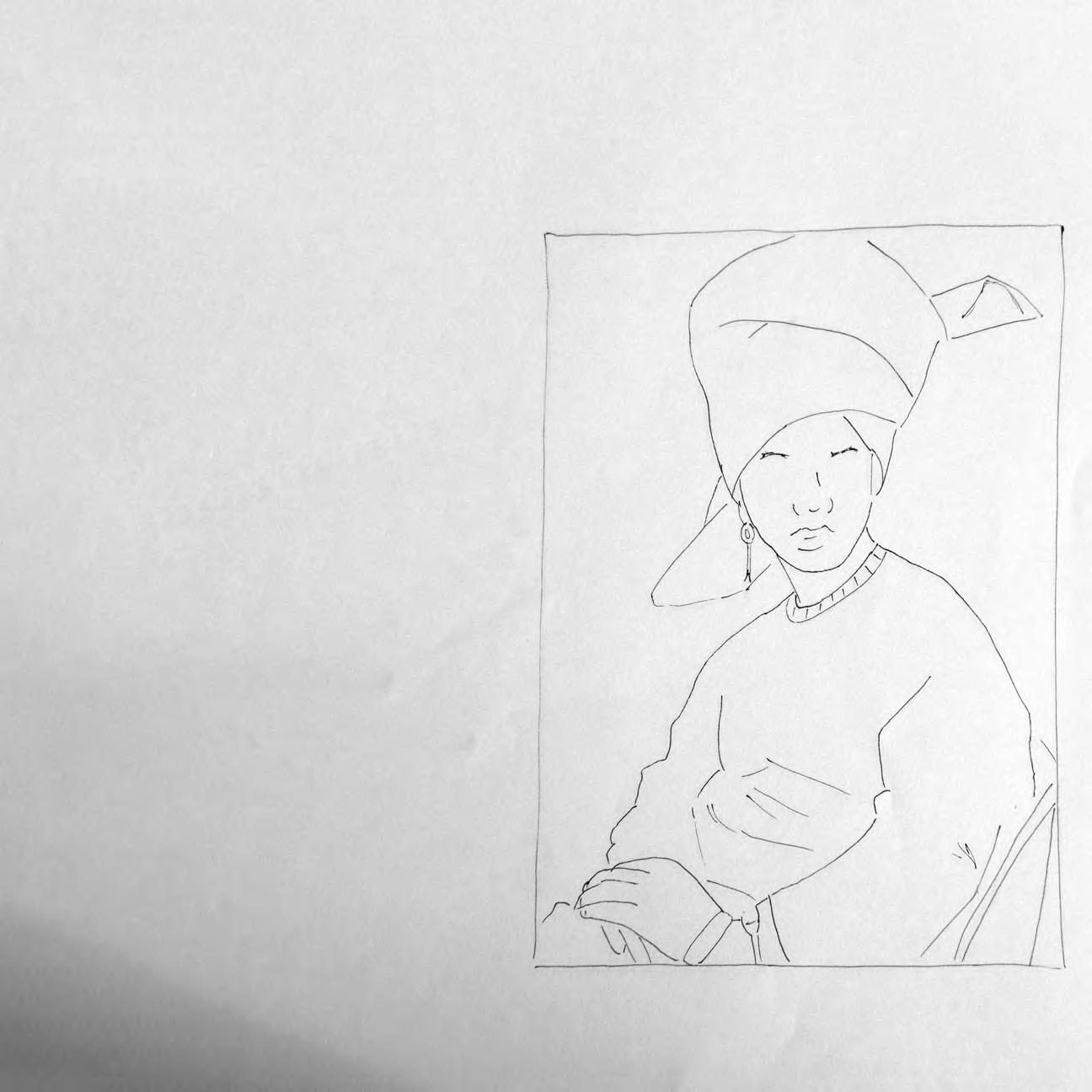

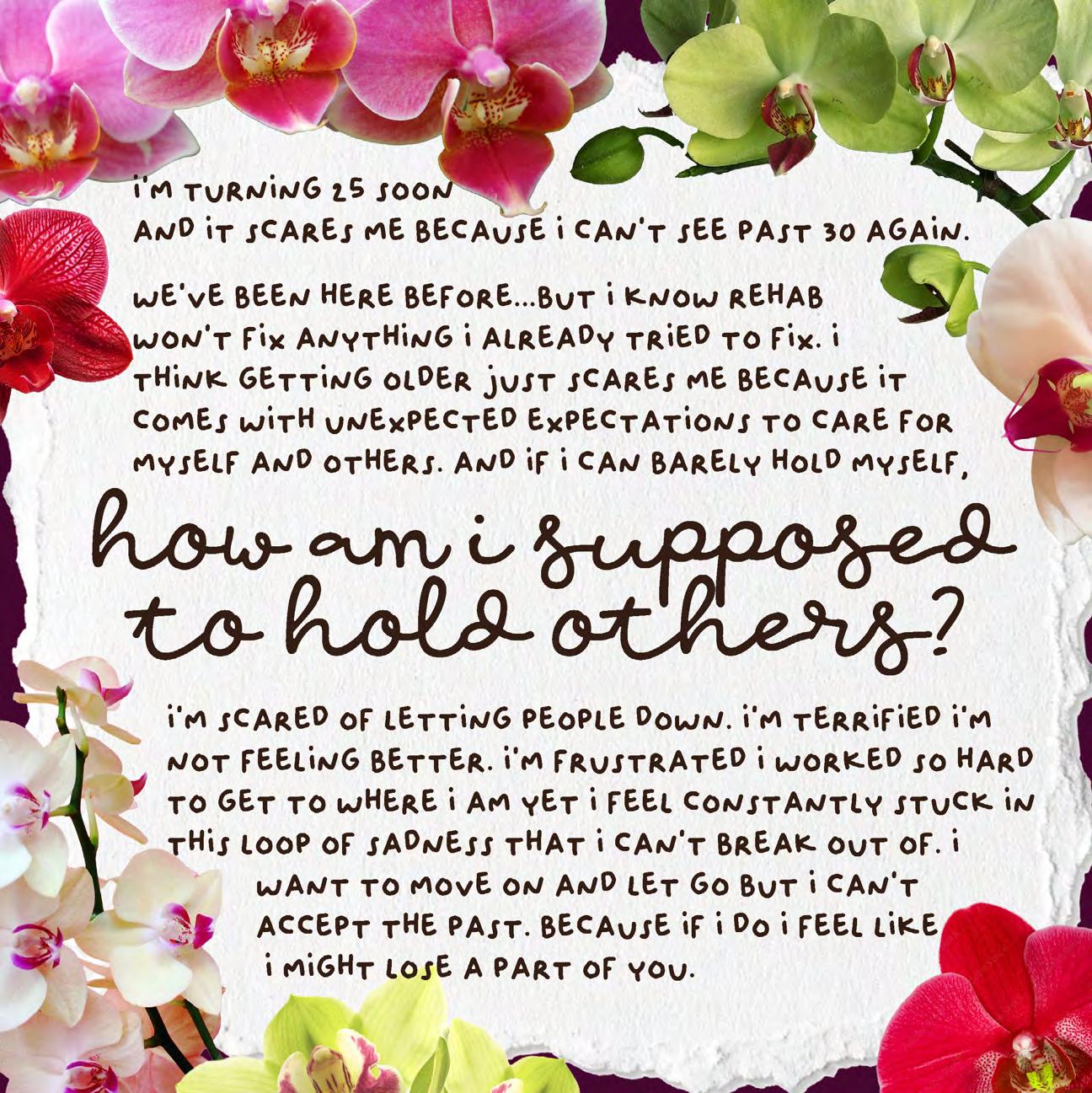

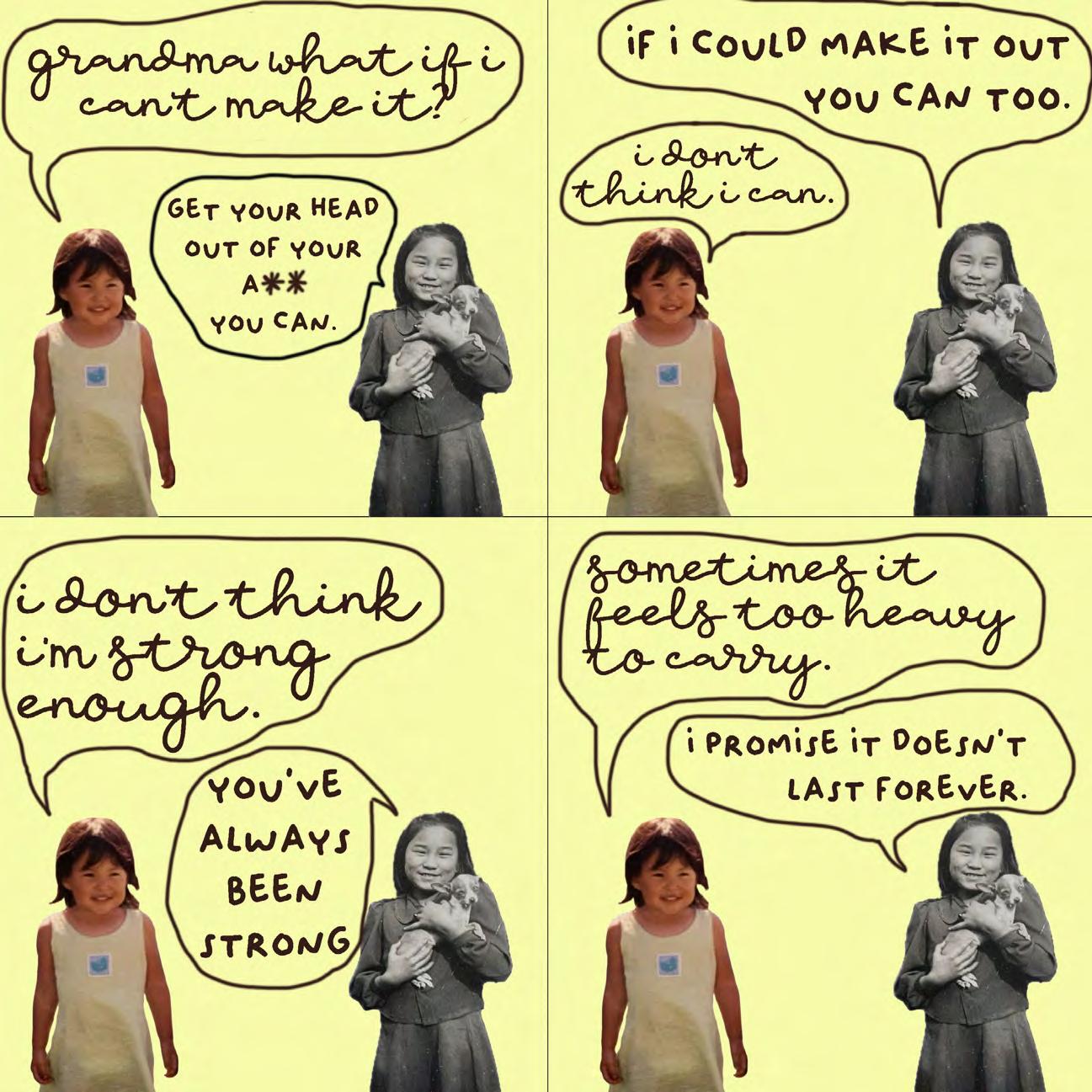

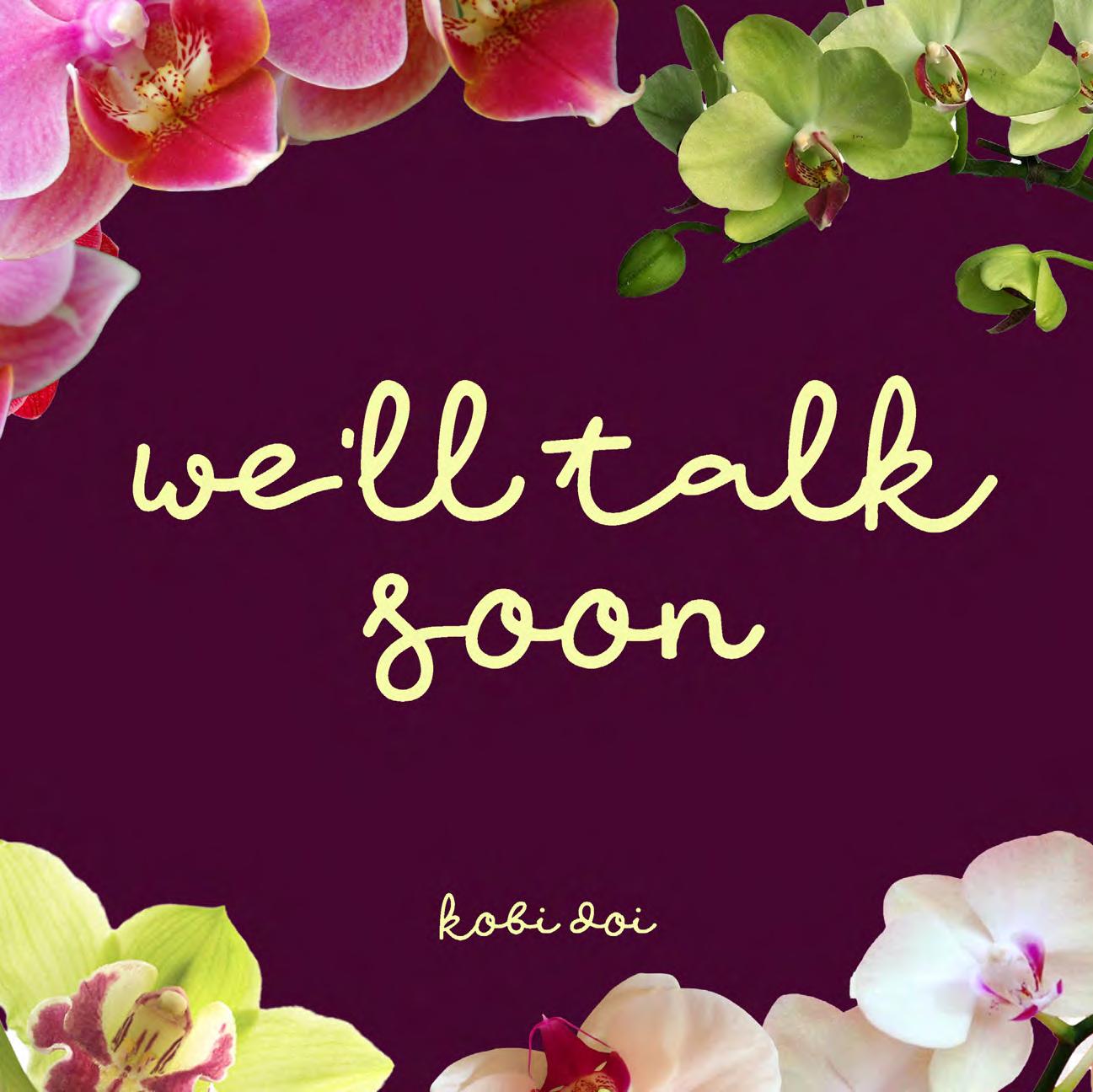
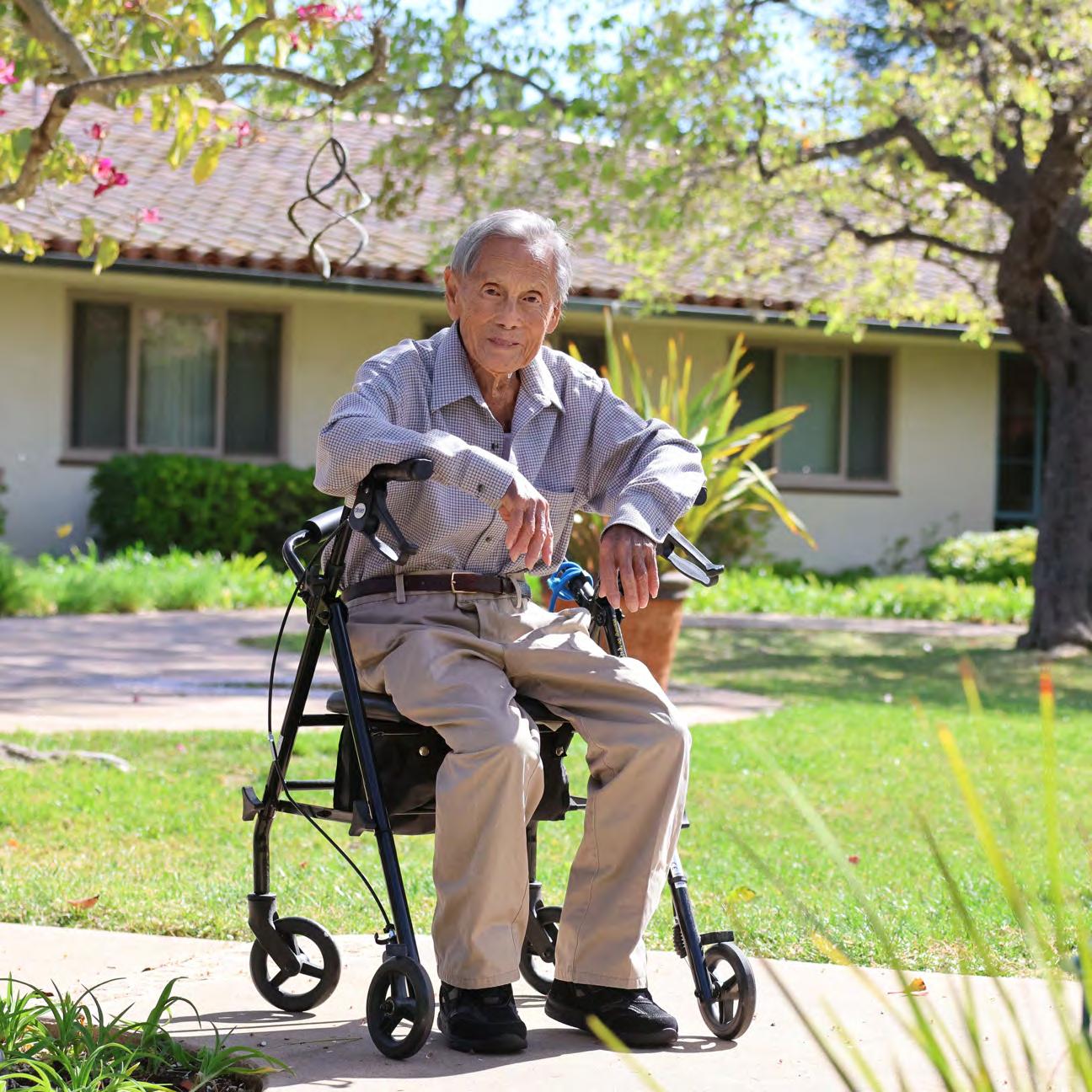
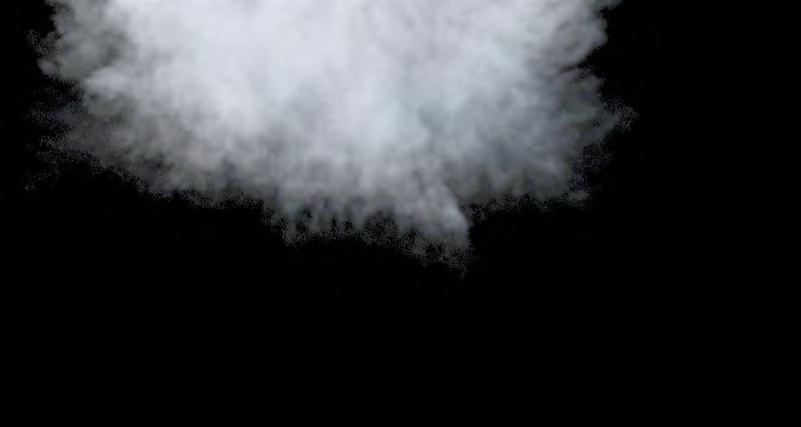
By Bruce Chow
“We are putting your dad on morphine today,” the nurse said on the phone. I felt a sudden chill run through me. This was it, the end stage of his cancer that I knew would happen but didn’t know when. I took the afternoon off from work and headed to Santa Barbara 100 miles away. When I arrived at his room at the senior living home, Dad was sitting up in his walker while the home attendant was cheerfully clipping his fingernails. His body was thin, down to his last 90 pounds. His feet were swollen for some reason. He could still walk, but the trip around the bed got him out of breath. His skin was dark and easily bruised. His fingers were still nimble but now very bony. He could still write, still use the computer, but it tired him easily, and his vision was now too poor to read easily. Back pain and coughing up blood kept him from sleeping. That’s what the morphine was for.
“The files for the bank accounts and records are there in the cabinet,” he said and then stopped to catch his breath.
“Yes. I’ll take care of all of that,” I said.
I hesitated because I had a really important question for him but struggled for the right words. Long pause. Finally, “Dad, they’re giving you morphine. You know what that means, right?”
“Yes,” he said, without even blinking.
“Dad, this is the end stage of your cancer. This is it. You are dying.”
“Yes, that’s right,” again without any hesitation or sign of regret.
Pause…. ”Dad, your buddy, Lawrence and you have been discussing Jesus a lot lately.”
“That’s right.”
“What have you been getting out of all of that conversation?”
I asked, hoping to get more than just a couple words from him.
“I can choose the things of Satan or I can choose to do the things that are right and choose Jesus.”
“Dad, that’s right, but you know that eternal life is a gift that you can’t work for. You have to just accept it from Jesus.”
“Yes. I had a dream,” he said, “or I think it was one, maybe a vision
last night. Satan offered me anything I wanted, including health if I followed him. Jesus was also there but silently watching. I turned and chose Jesus and asked him to hold my hand and never let go.”
On hearing this, I was stunned and relieved at the same time, but before I could say anything else, the conversation shifted. “I need you to go to Panda Express to pick up a broccoli beef rice bowl for me.”
Some things about Dad never change, like ordering me around as he did when I was a kid. (“Son yes, child no,” I thought to myself.) The feeling of resentment dissipated as quickly as it arose. What mattered most was savoring what would likely be my last intelligent and lucid conversation with Dad. I needed to remember him in this way.


Then he repeated some rants about unresolved issues of the past, which I patiently waited through until he had to catch his breath again. This was my chance to speak…
“Dad, thanks for being my father……” He looked at me in a contented way but had no words. “Can I pray for you?” I asked.
“Yes,” he replied, and I prayed for him out loud, resting my hand on his emaciated arm. This was the first time I ever prayed out loud for him in his hearing. He seemed so peaceful as if it was a routine thing to do.
“I’ll see you on the other side of eternity, Dad.” I felt a sadness that this was the end. He knew it. I knew it. “Goodbye, Dad.” I turned to leave for home.

My father passed away peacefully a week later, his pain successfully controlled by the morphine. As I stood at the door of his room the day he died, Lawrence came by. Visibly shaken by the fresh news, he spoke, “Awhile back, your dad thanked me for introducing him to Jesus.”
Greatly comforted, I said, “Lawrence, you were an answer to over 50 years of my prayers.”
“Yeah, but I really miss your dad.”
We both do.

Written By Mitch Valine
Sakai
Love is the inhale, grief is the exhale. I didn’t know where we were going—what you were stepping out of and what I was stepping into. Welcomed by my new friend, Grief, I started running. I quickly realized that she and I always run at the same pace. She tapped me on the shoulder when I saw a greeting card with the message “I love you to the moon and back” written on the front. She whispered my name when I bought a bag of your favorite cara cara oranges. She stopped me in my tracks when not one, but three flocks of wild geese flew over me. One was large and flew way above me, their cries were faint. The second flew just above the trees. “Listen”, they sang as they led the last group which flew so low I could have reached up and touched them. It doesn’t matter where we are or where we’re running to. The call of the wild geese always finds us and leads us home to the love we haven’t lost.
It has been two months since you passed, Mom. Everything is still new. The bruises are still tender. Every day without you is a day I burn in solitude, watching the days develop like film. Buried in the ocean, under the sun, is every last moment unacknowledged, dissolved into regret. I was too scared to hold you until now. I’m sorry I loved you as if I had more time with you. I will be here for the last moment, even when you can’t speak. I will hold your hands like the earth holds its roots. I am your garden.
For what it was, it was beautiful. You asked me what song reminded me of you most. Raspberry Beret by Prince. You laughed. “Why?” I’m in love with the joy that song always brought you, how you’d start singing and dancing when it played on the radio. We had plenty to apologize for, but your unapologetic joy is what I remember most. I remember the night in Altadena the sunset was so colorful and we got into your car driving around looking for the best spot to watch it. I was in my pajamas, and I was worried about finishing my homework, but you knew how important it was to catch the sky. You laughed the way people laugh when they are so overwhelmed with gratitude and excitement that it cannot be expressed through words. I remember waking up early to the calls of a flock of parrots sitting in our neighbor’s tree. The sun was not yet high enough to clear the thick, low-hanging clouds. We watched their exodus from the wild oak, giggling at the obnoxious interruption of our morning, and went back to bed.
As I held your hand while we reconciled the past, acknowledging our traumas, making up for the times we couldn't hold each other, talking about our love language, music, I asked you if death was scary. You said no: it’s the exhale after the inhale. That’s what you do when you’re not sure—take it day-by-day, moment-by-moment. Inhale and exhale. Though I have to remember you for longer than I’ve known you, not one moment will pass without me missing you.
A funny thing about death is that it brings us closer to life. In the tail end of winter, the memory of you is a warm summer evening. I imagine Grief as our neighbor who plays the trumpet on his porch on evenings like these. I hear the music and catch glimpses of your smile, hiding just behind the mist of the sprinklers. The mountains flare neon pink. The jacarandas are dancing, and I hear the wild geese migrate back home.






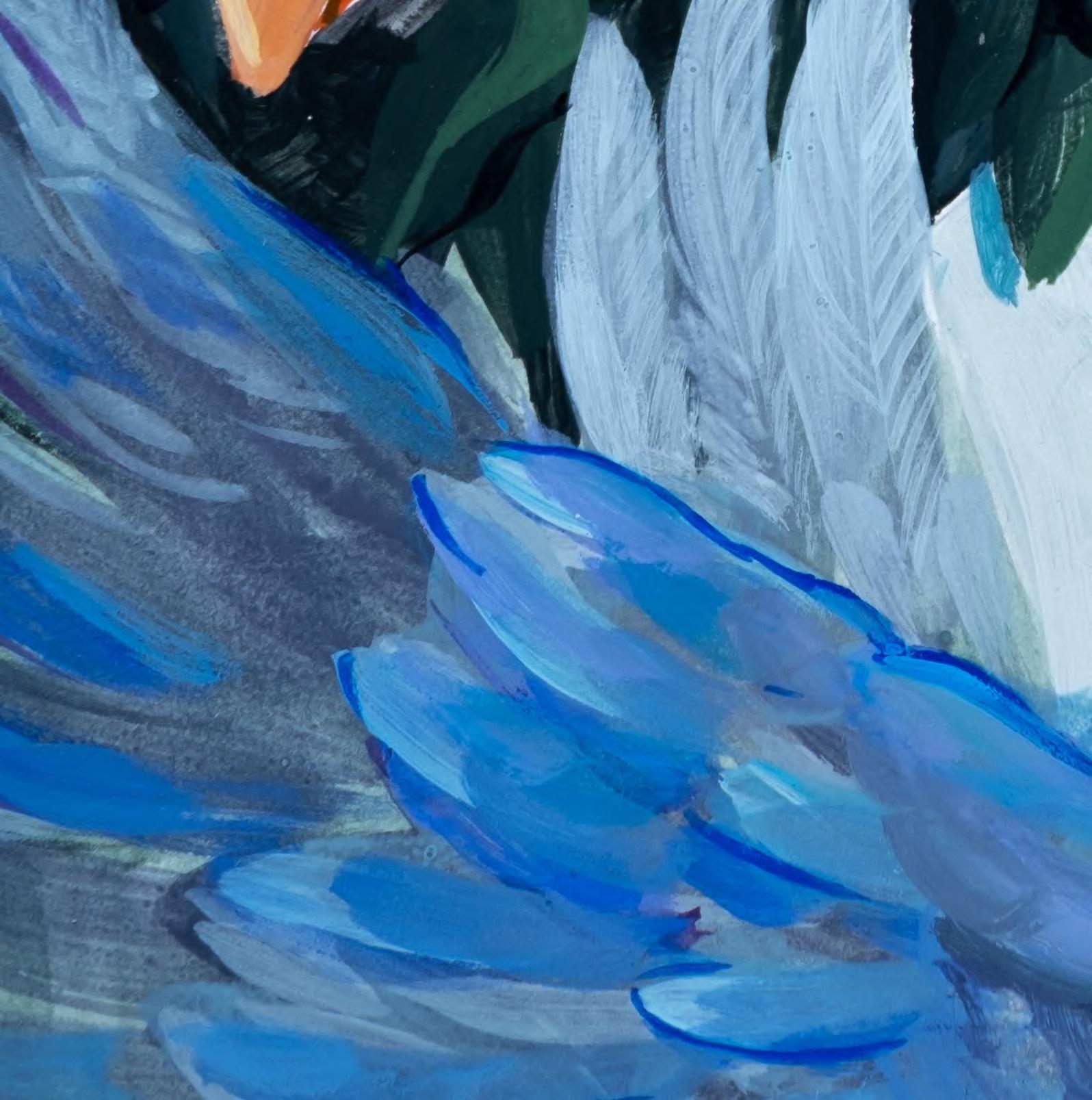







to be continued...


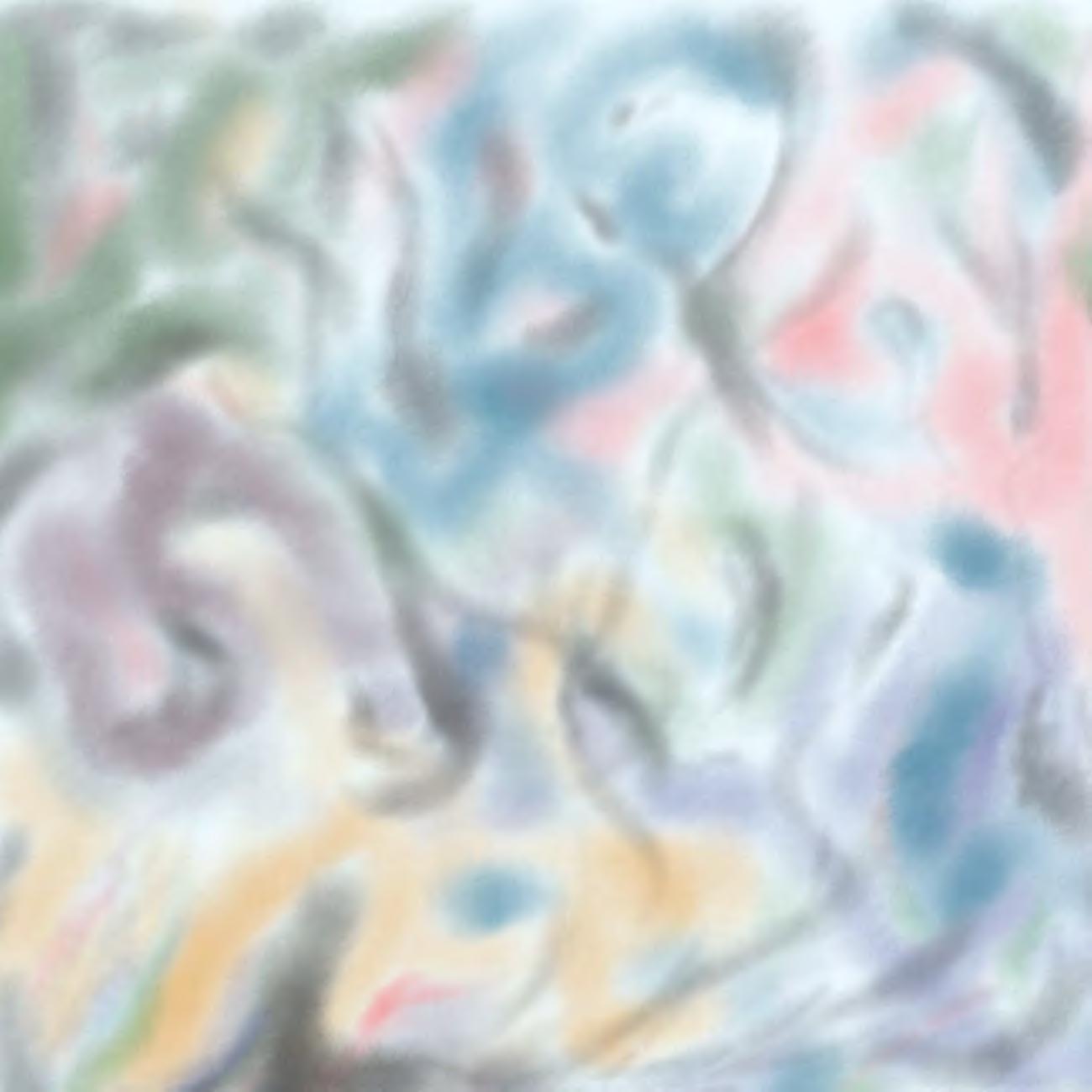
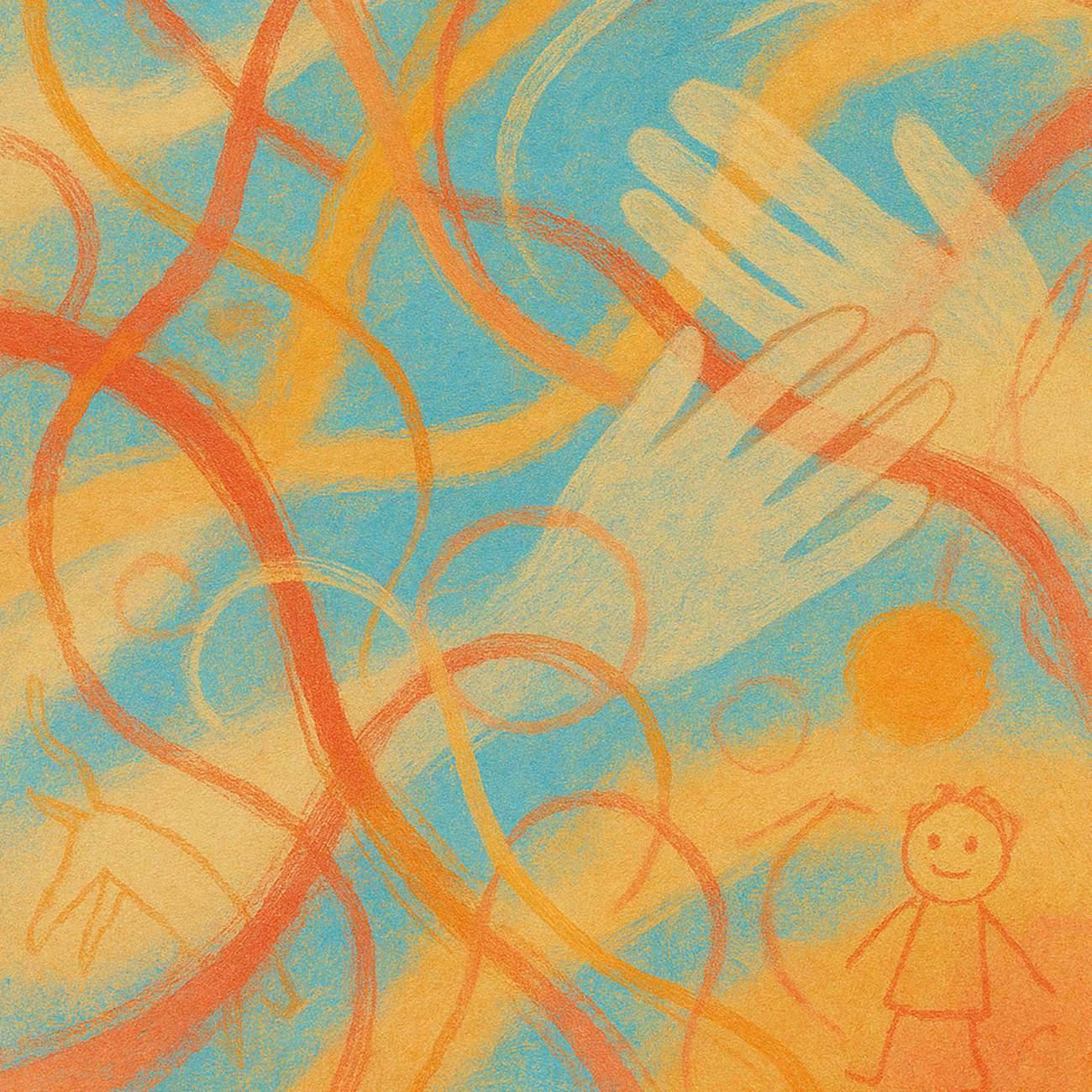
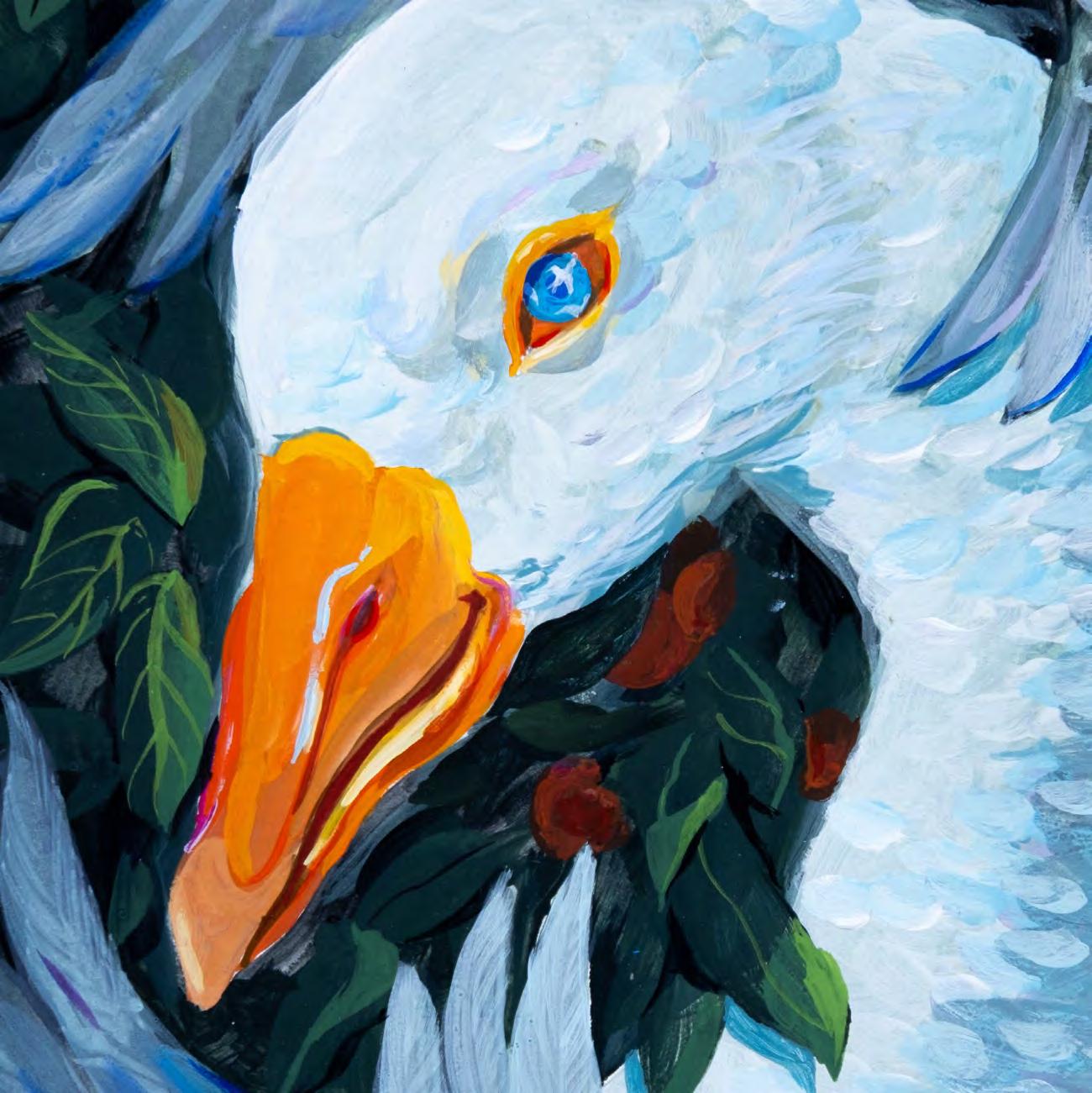

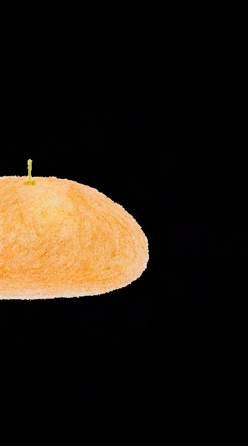

“ThemusicIchooseorwritehas
ce.Spaceforjoy,forprotest, healing.Spaceforquestions Spaceforpeopletoshow makesitfeel holding.It has to make spafor lament, for we’re still carrying. as they are. And family. It holds me the truth. It doesn’t conversations. And it






